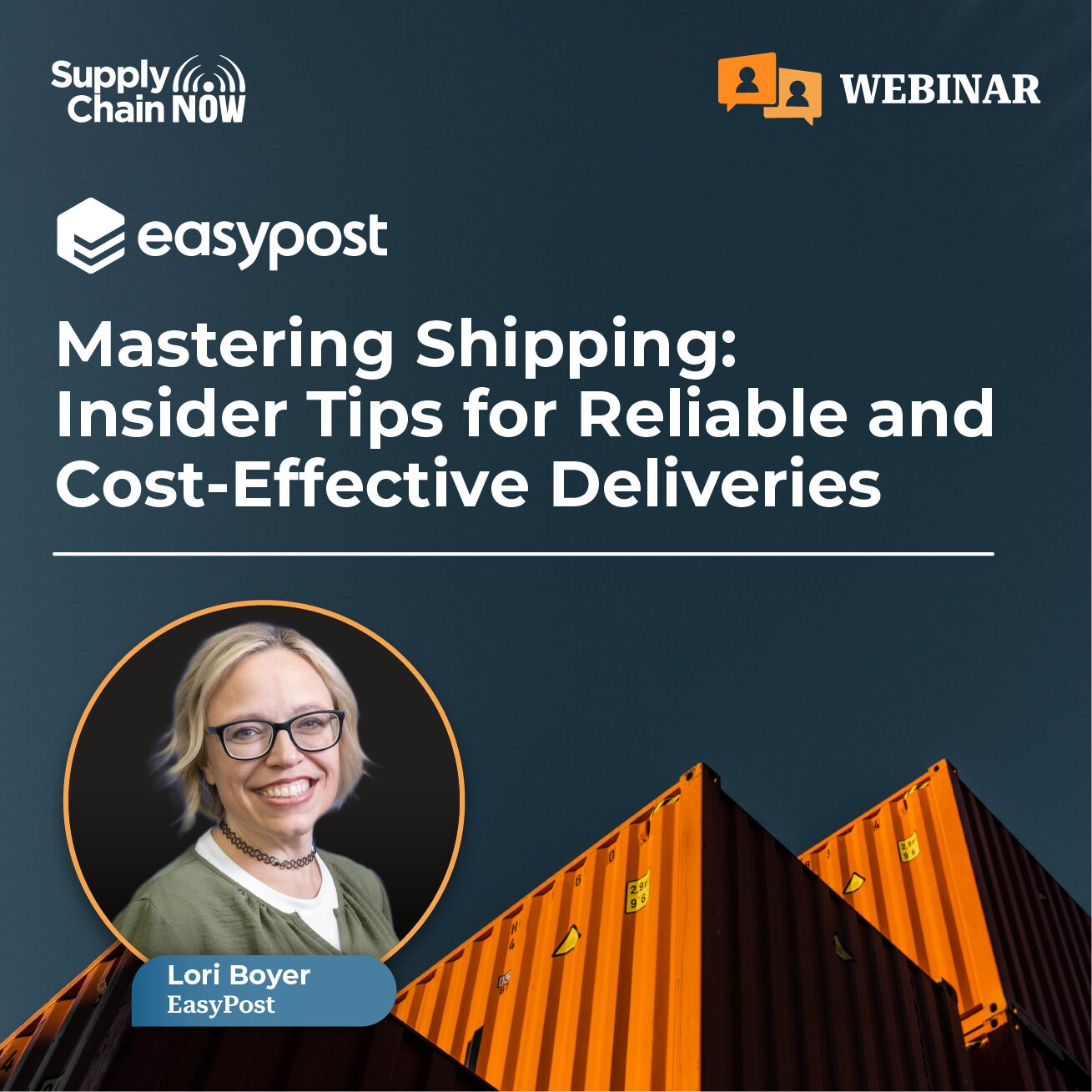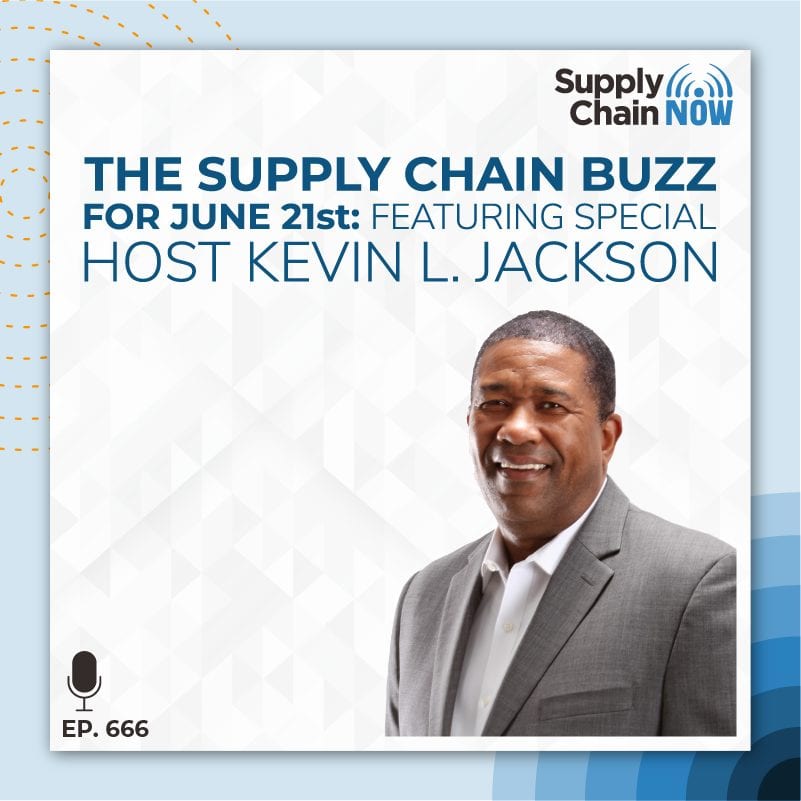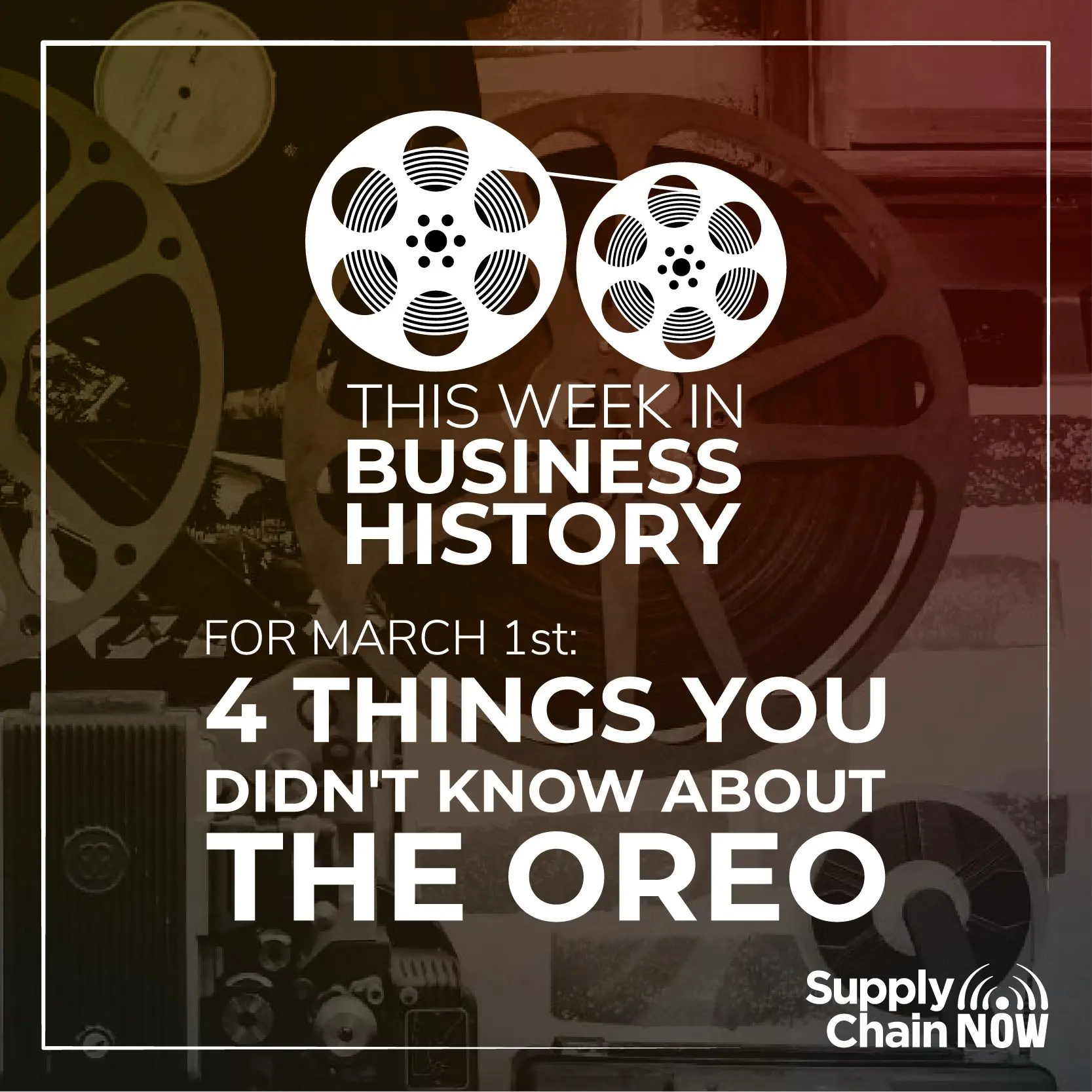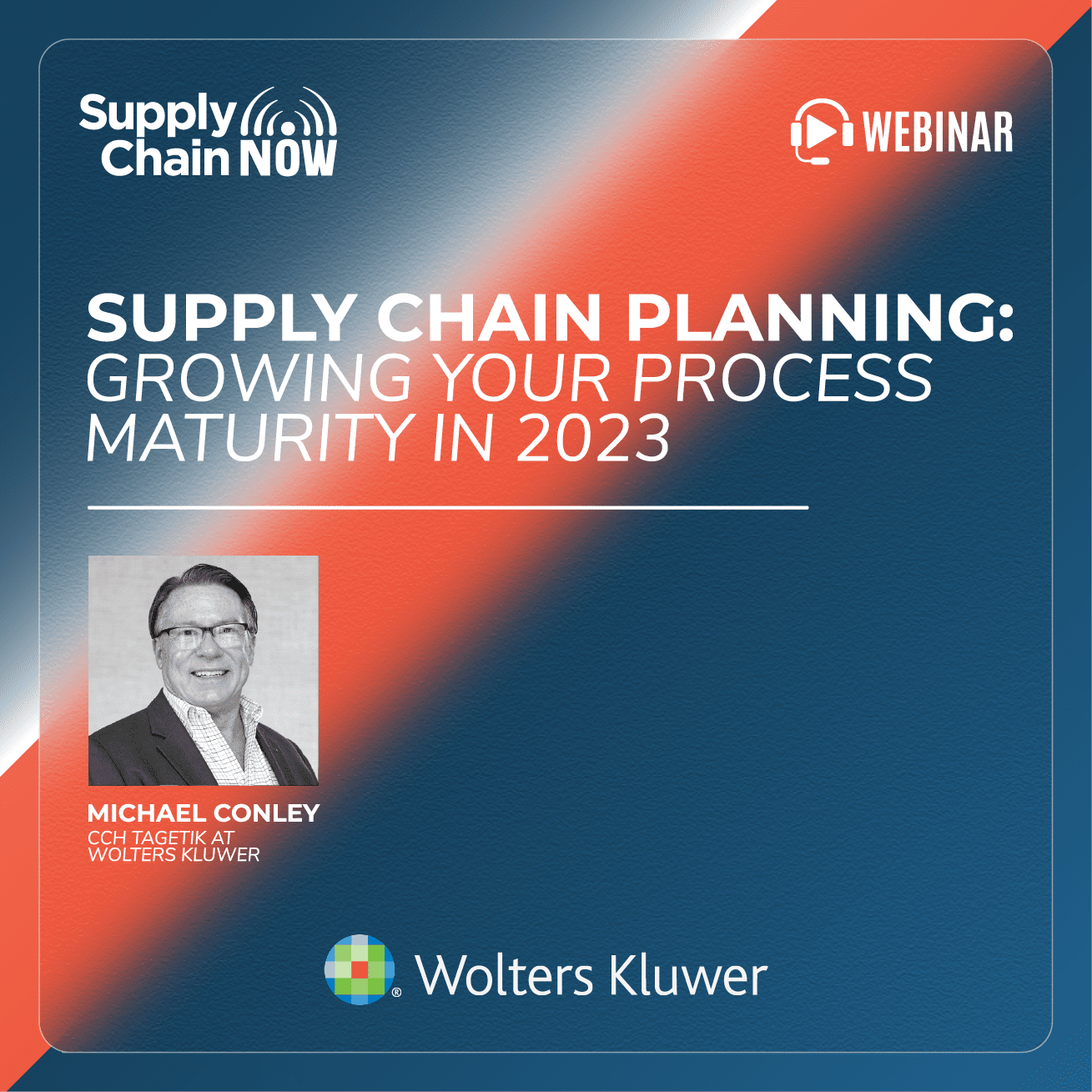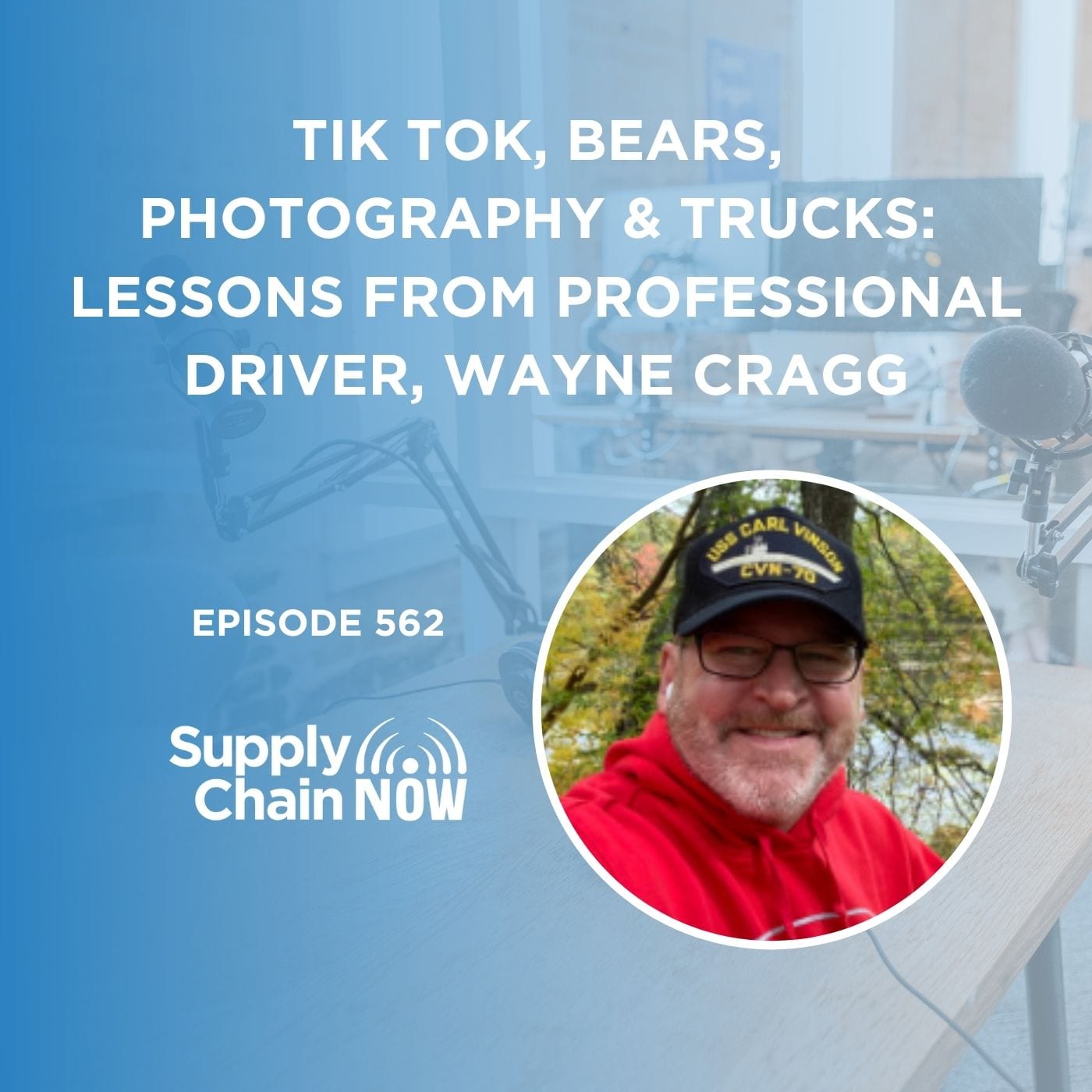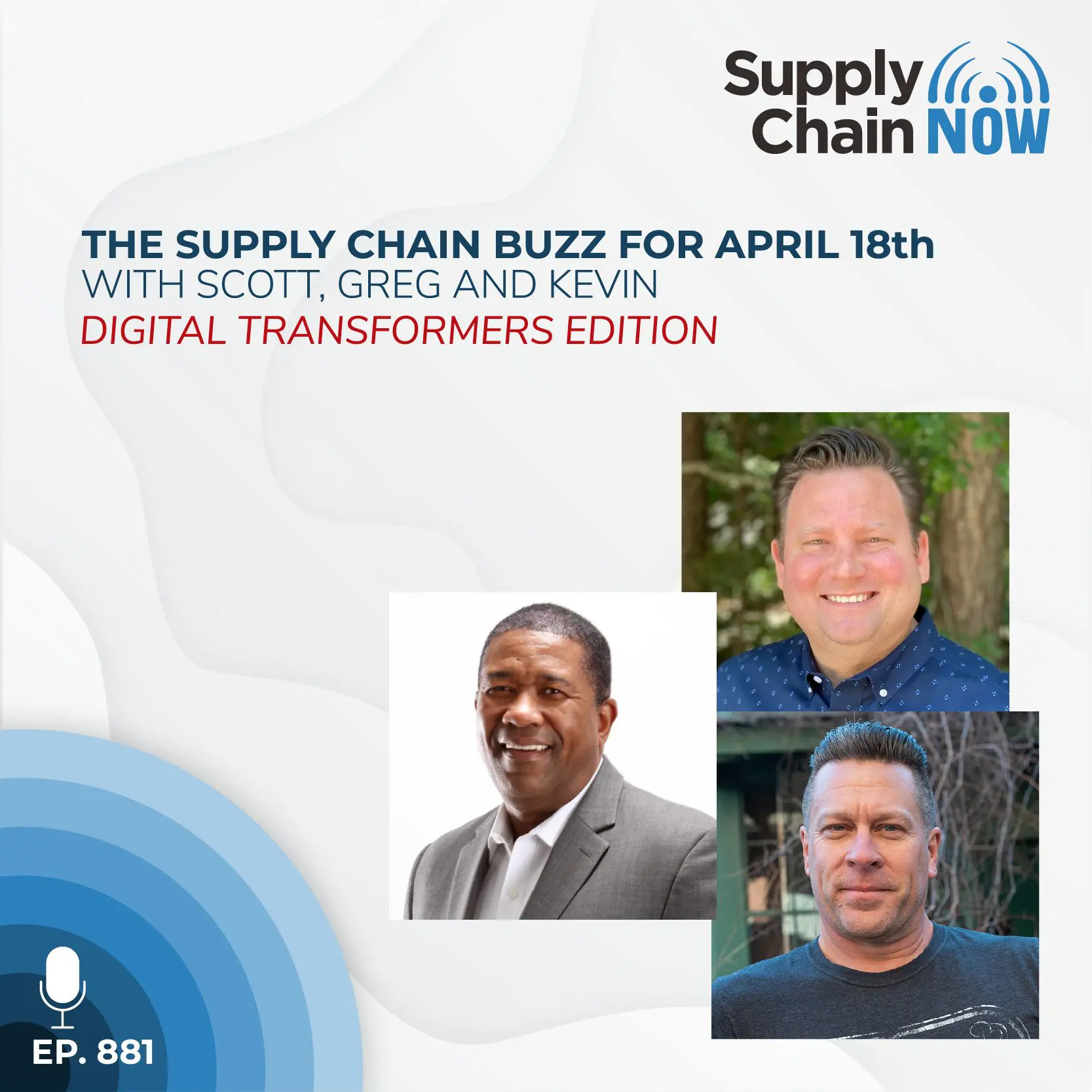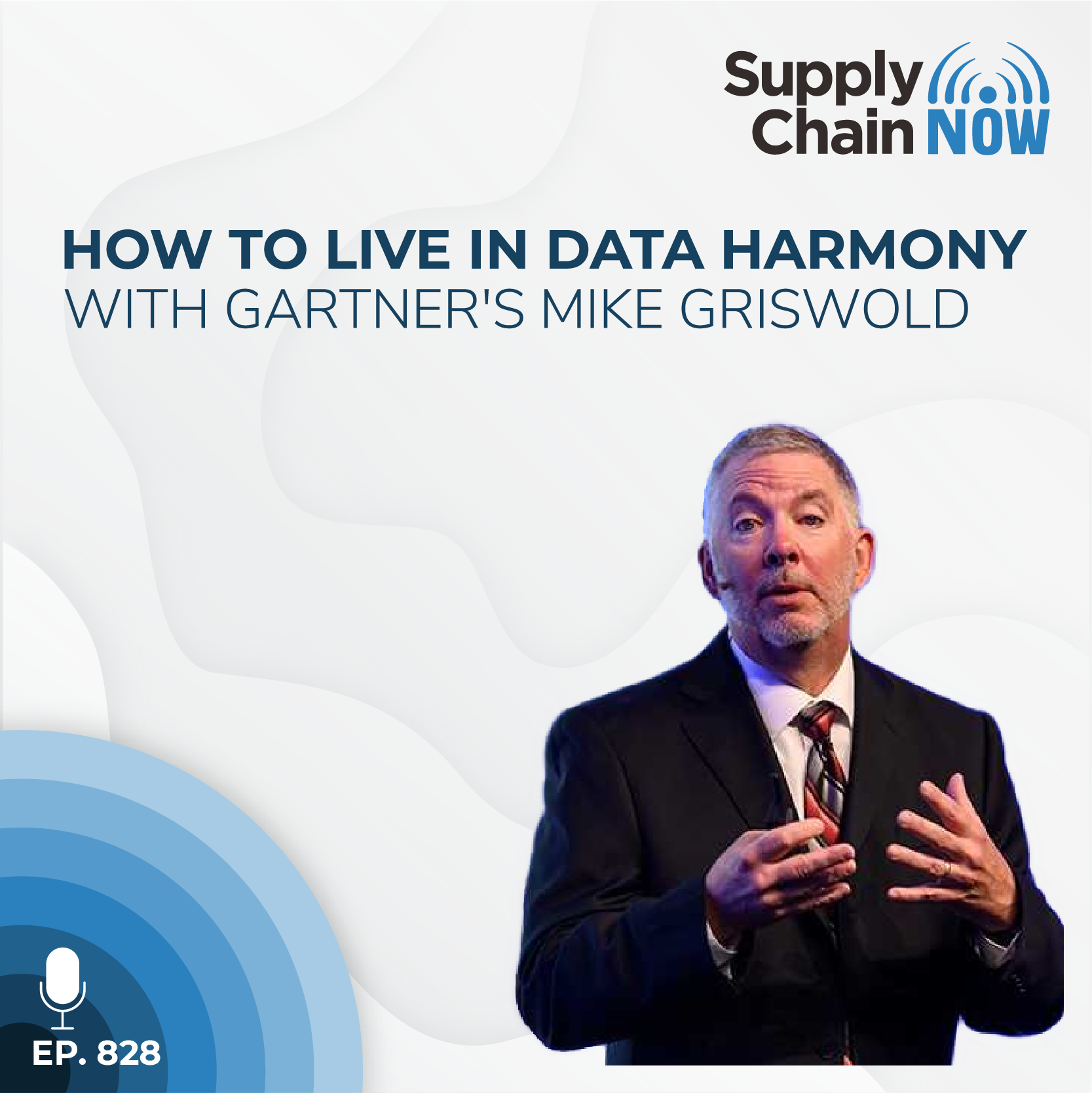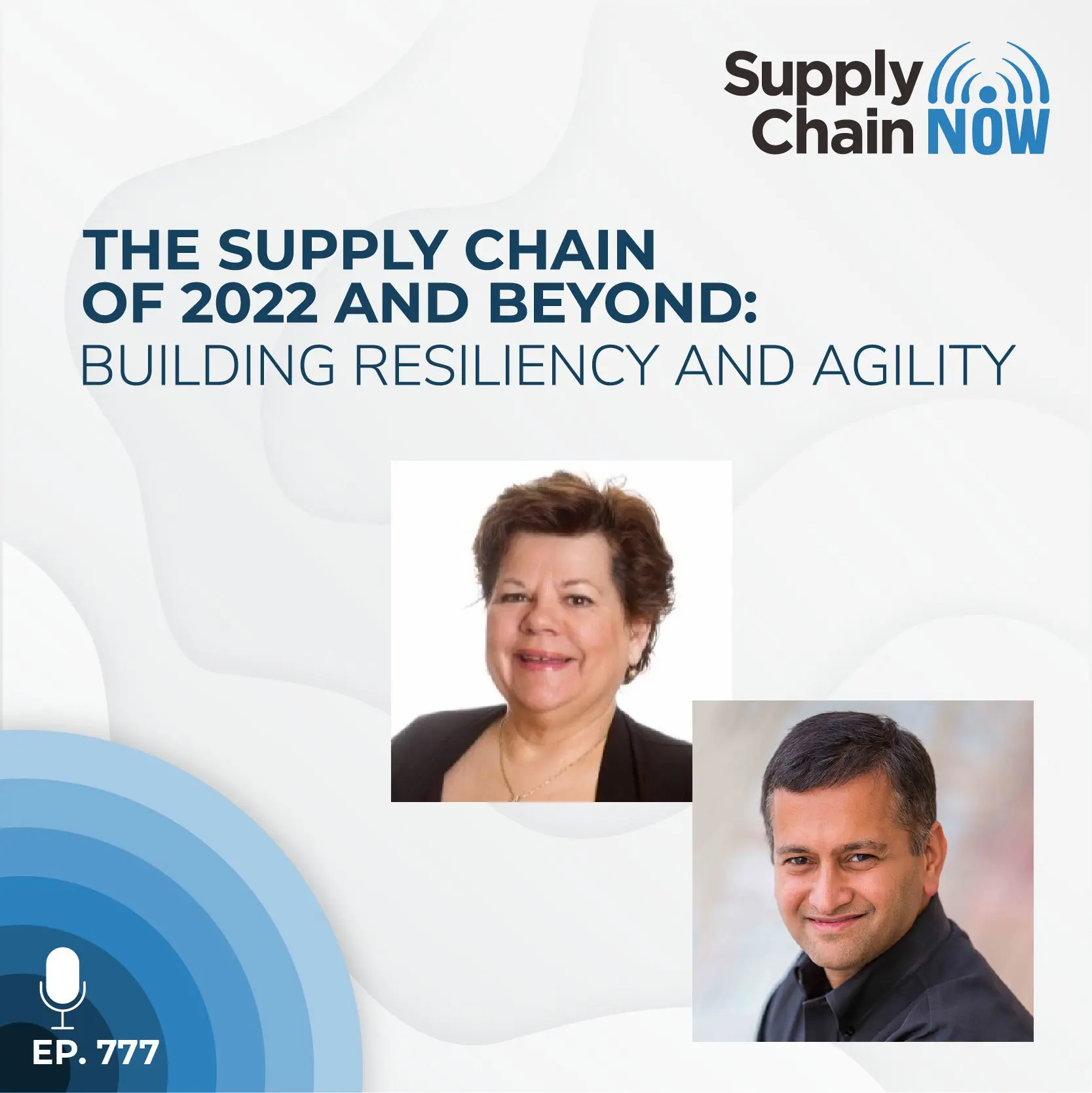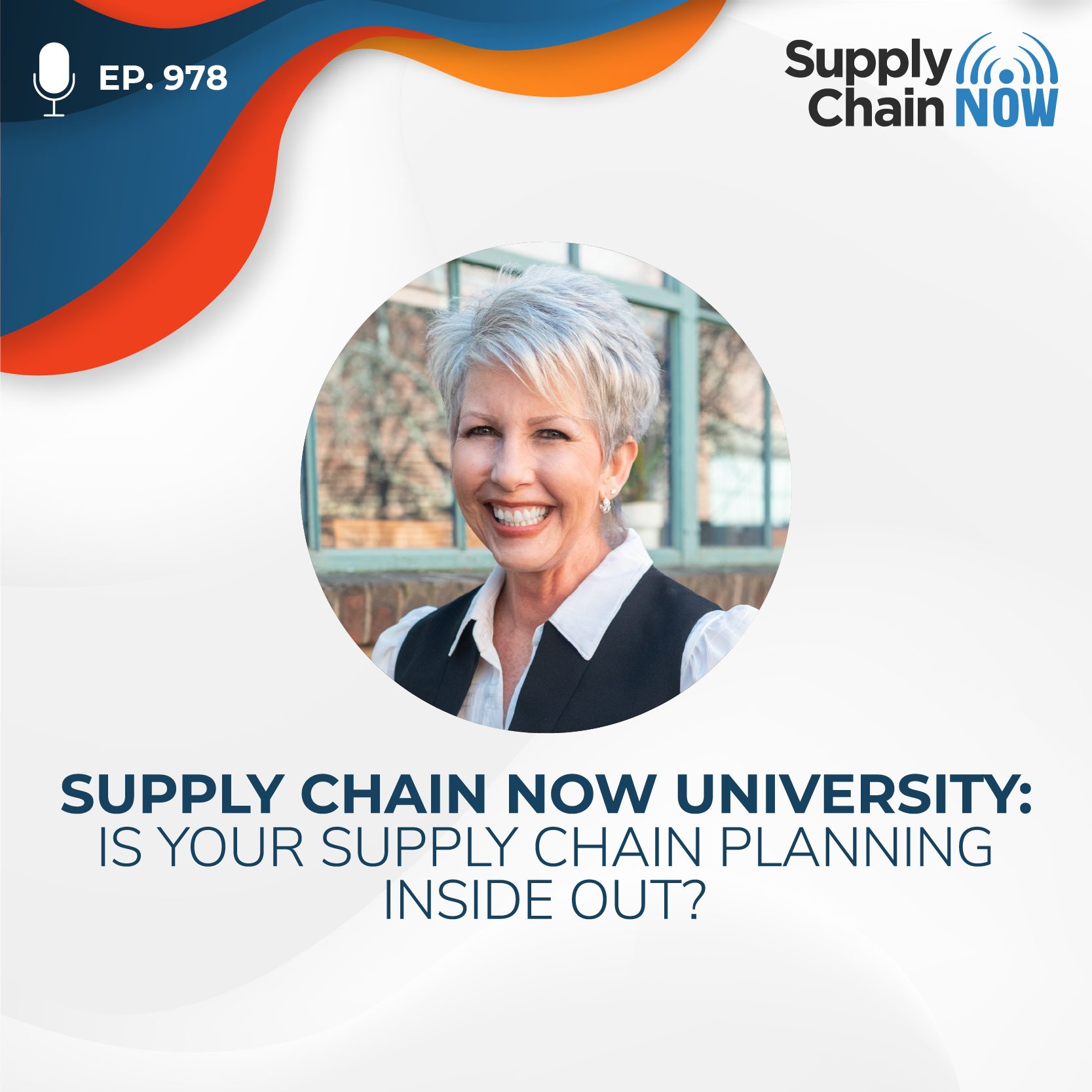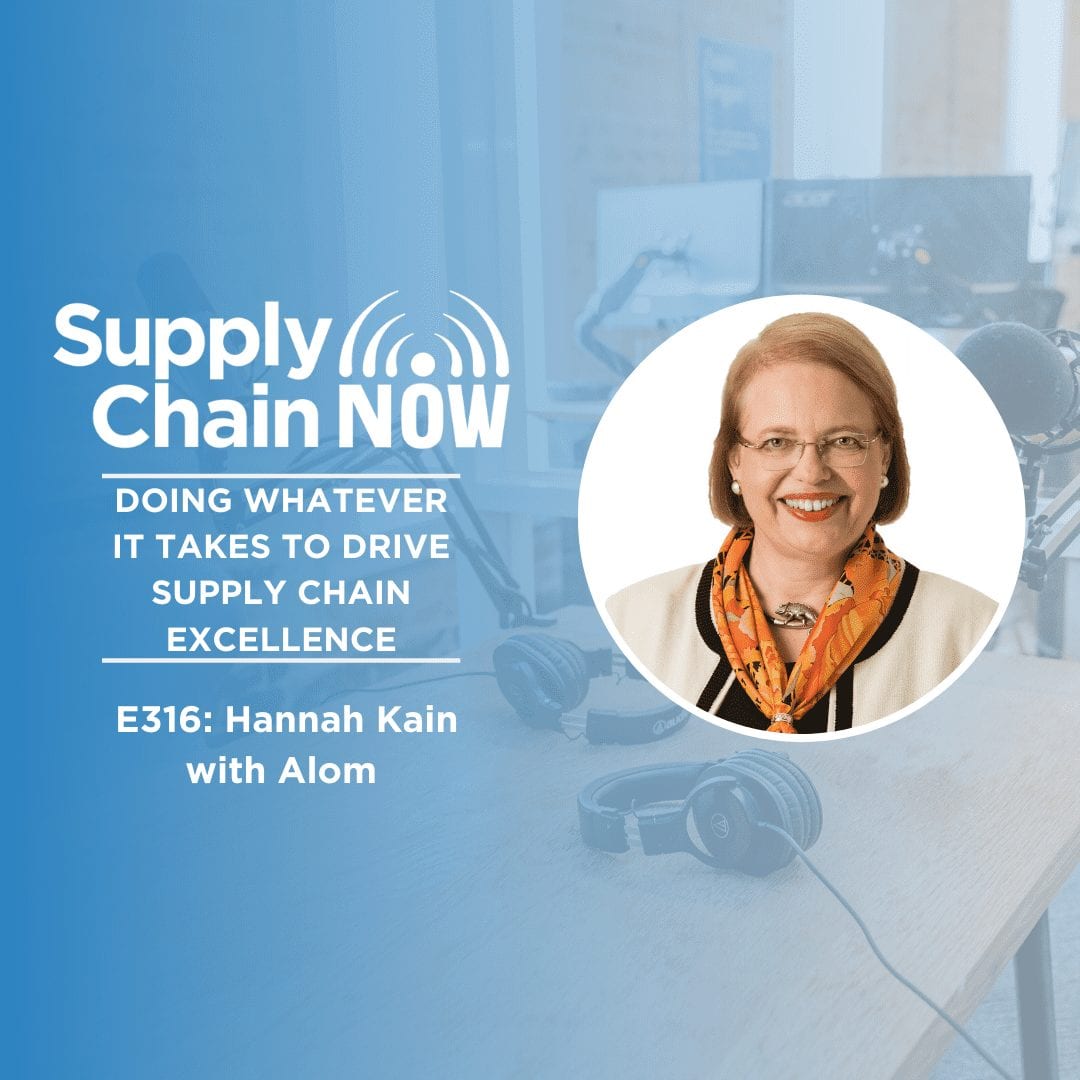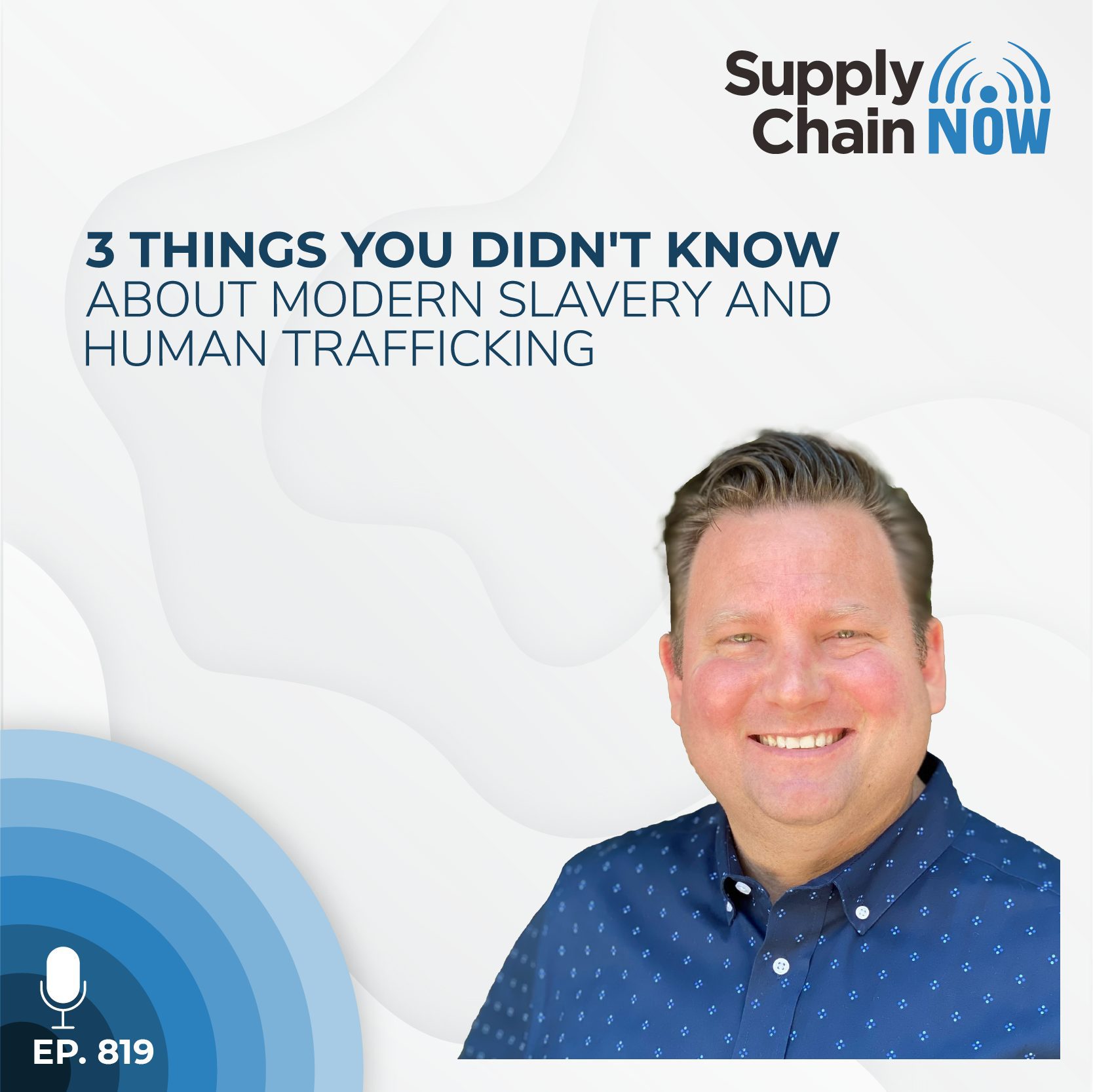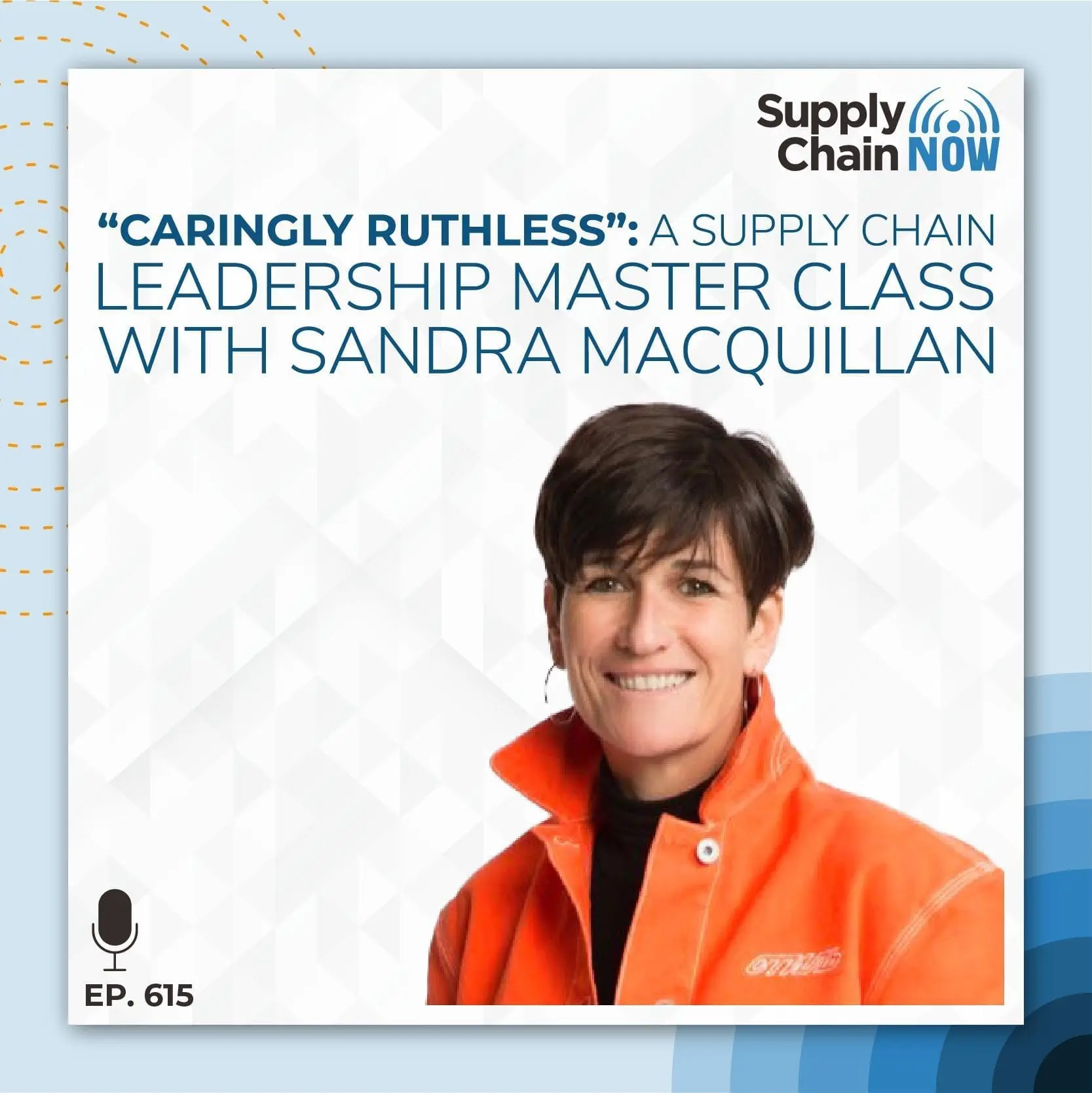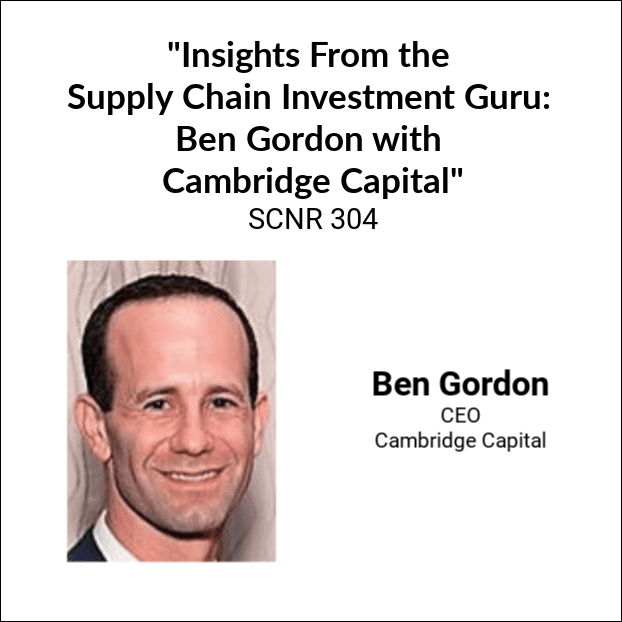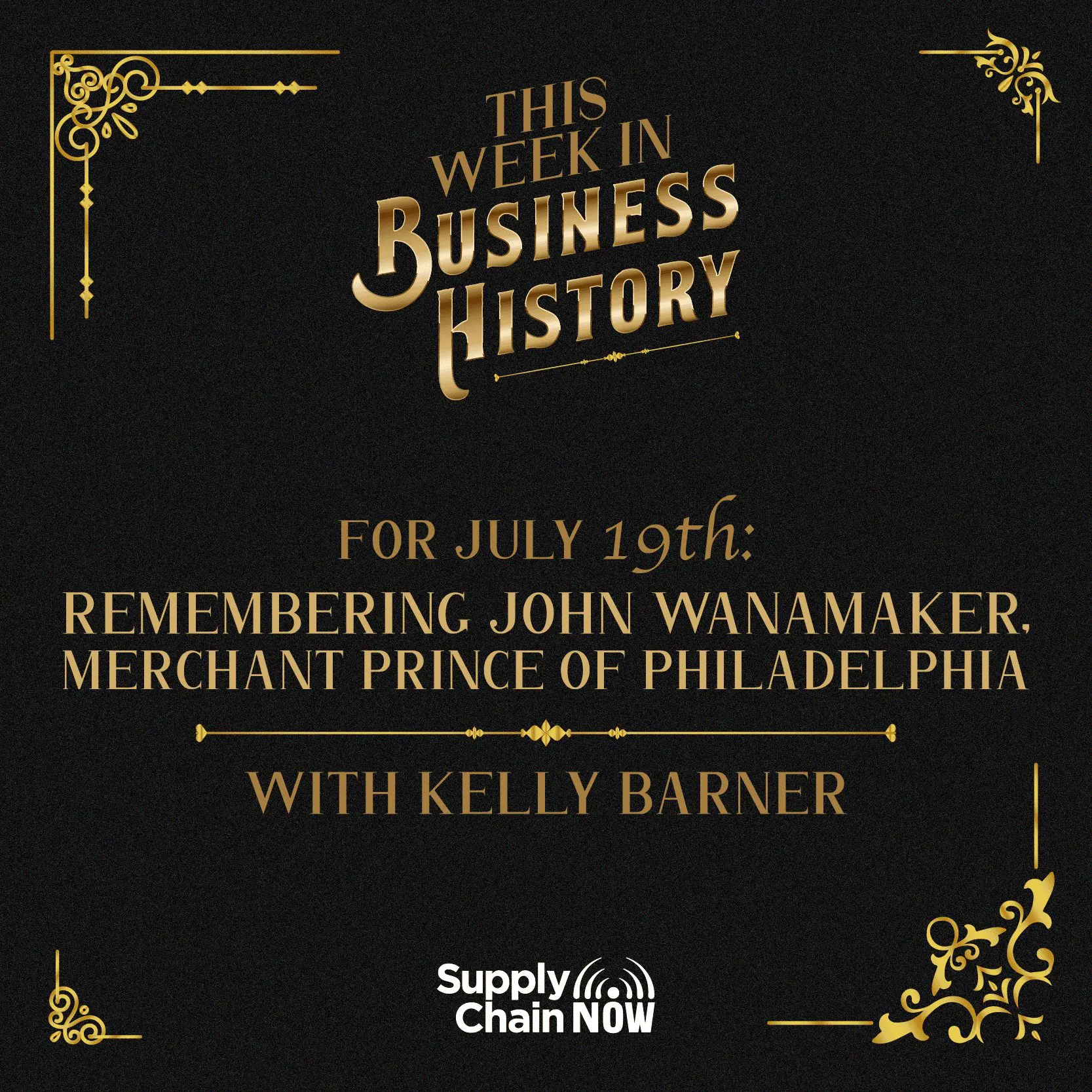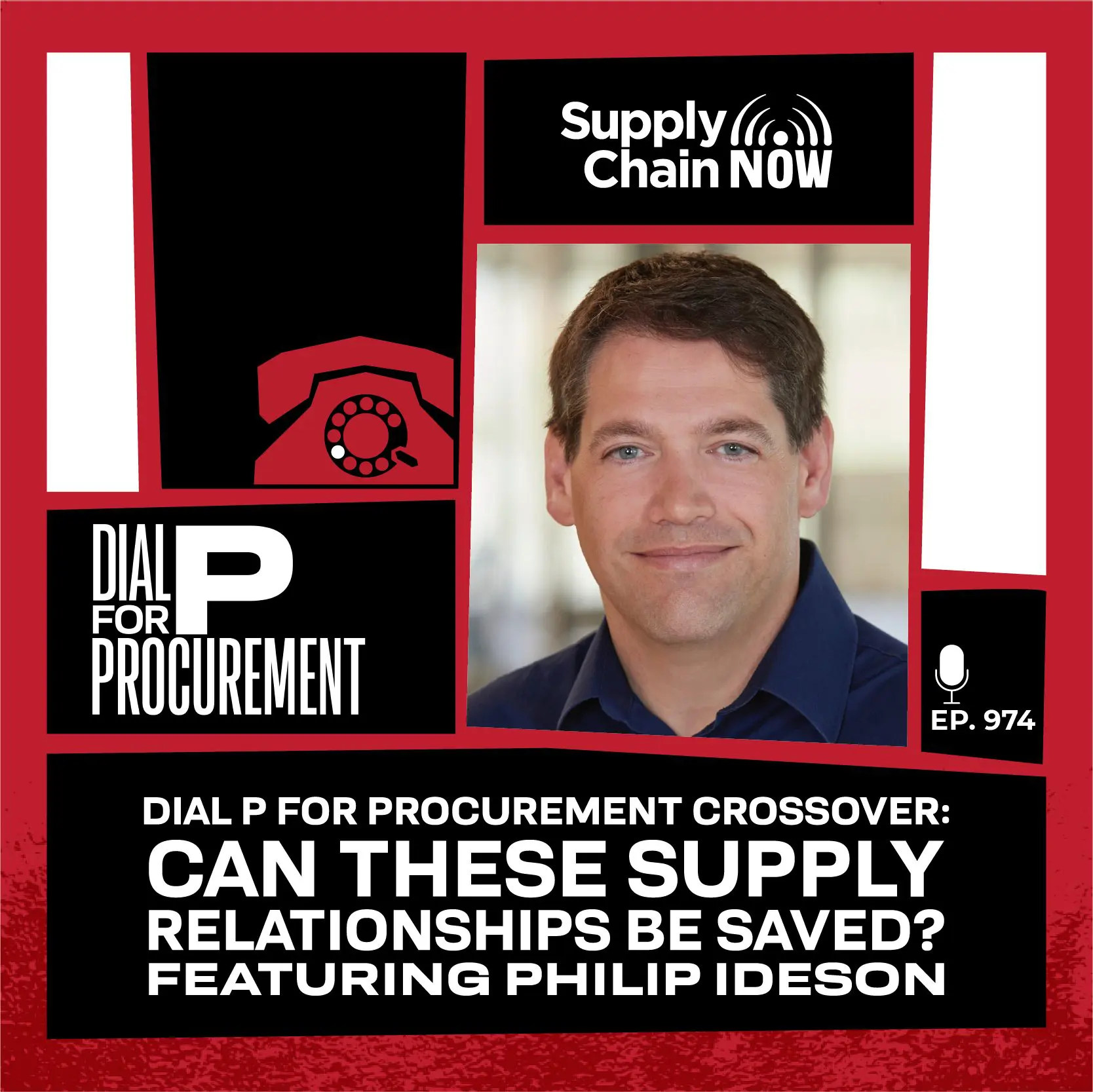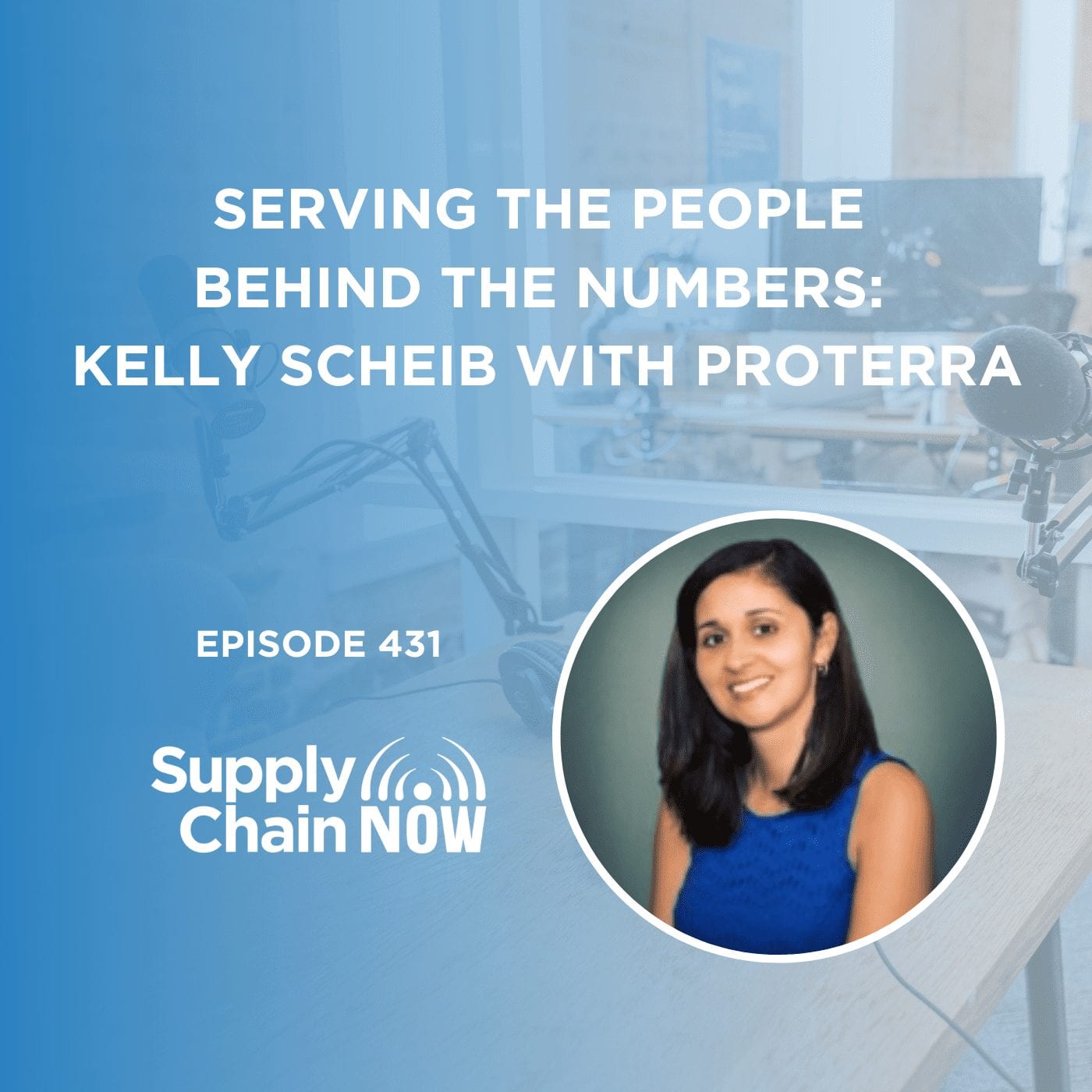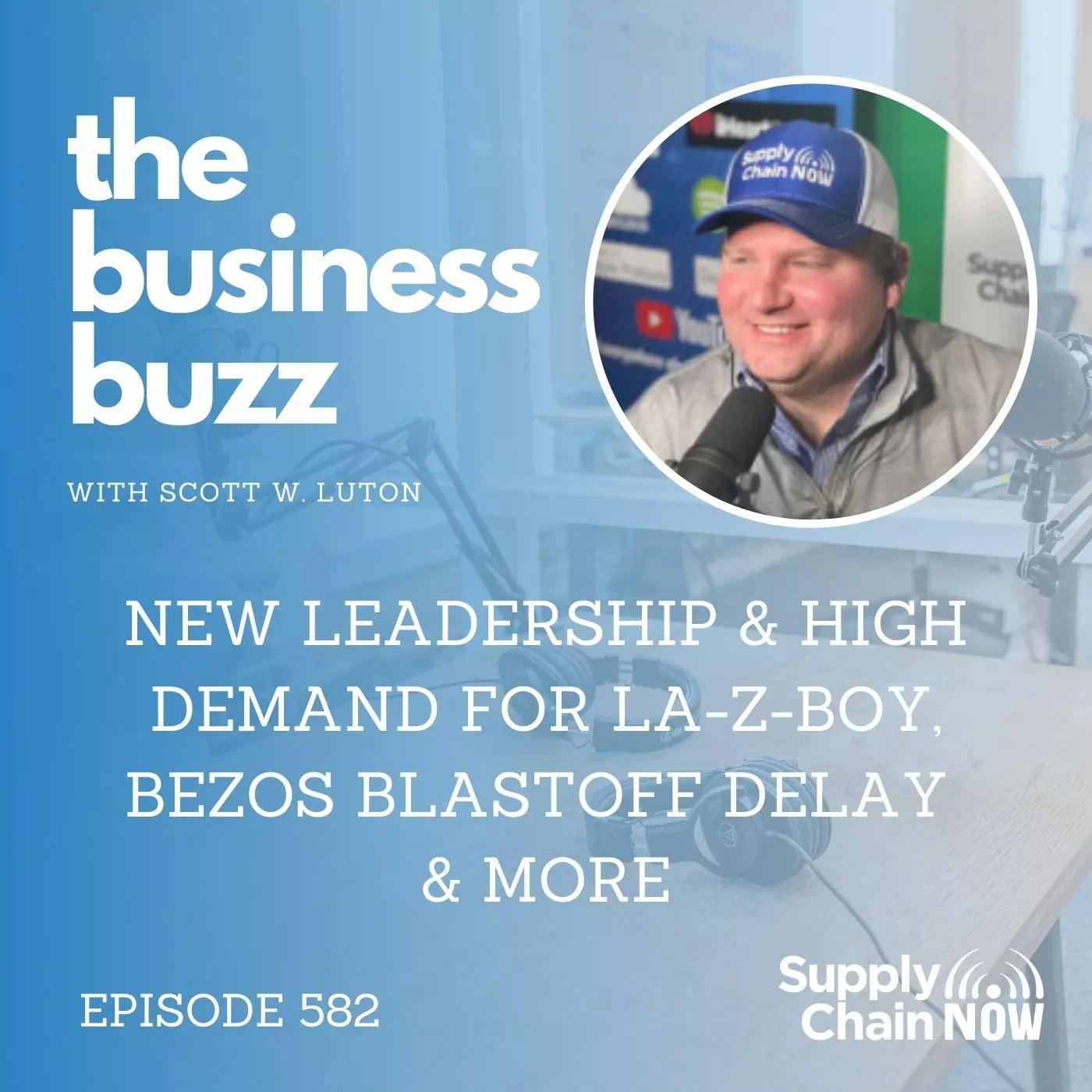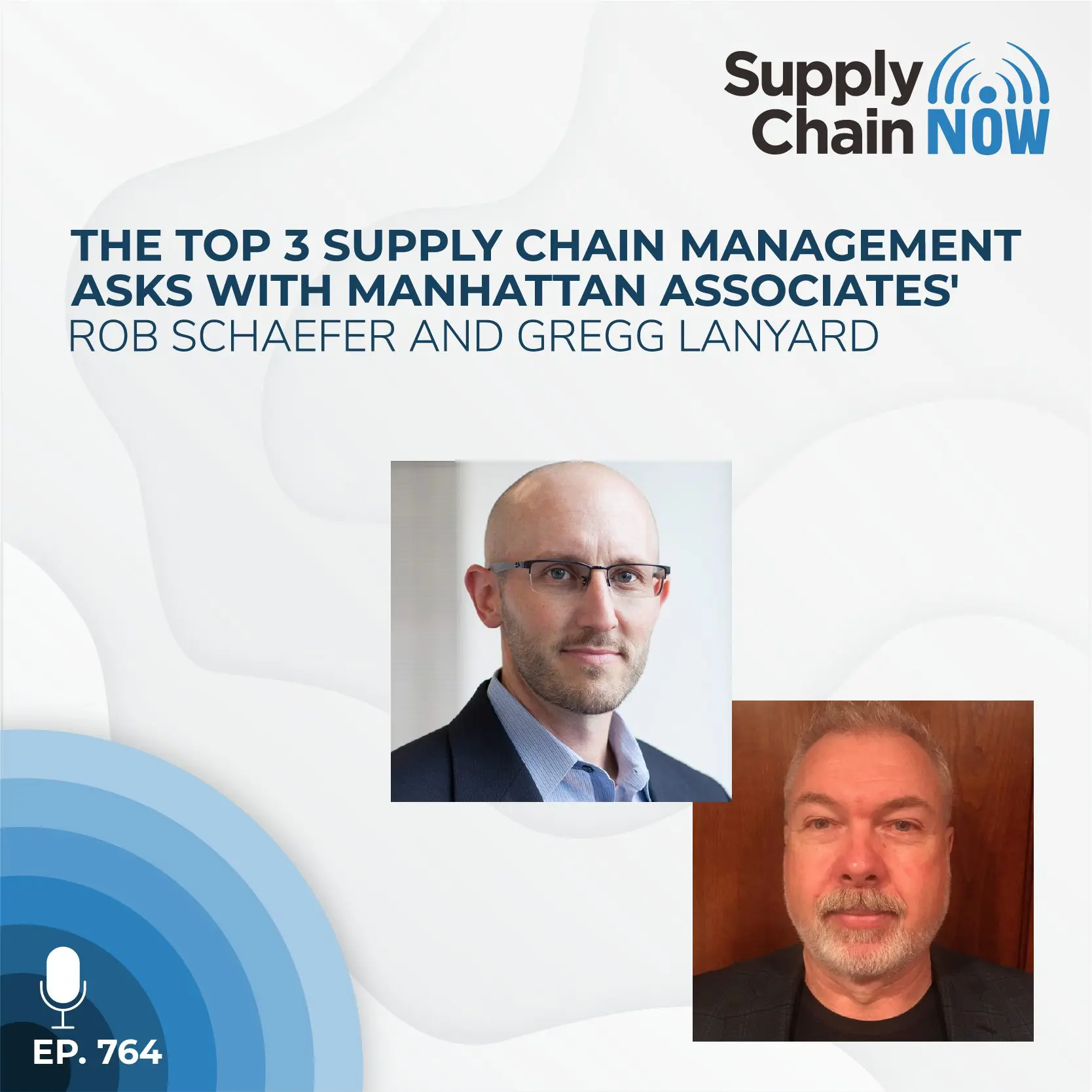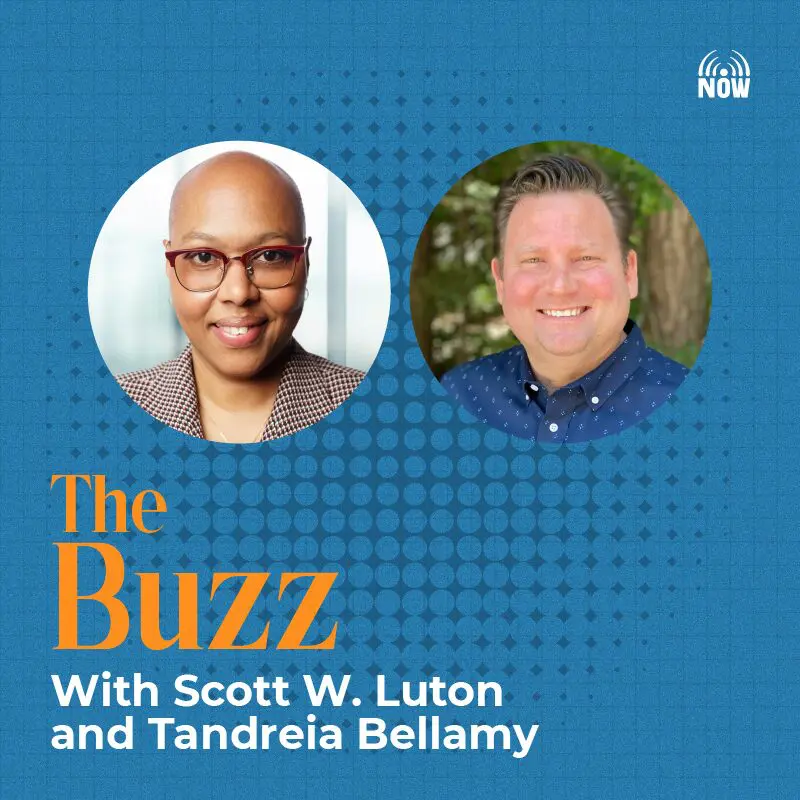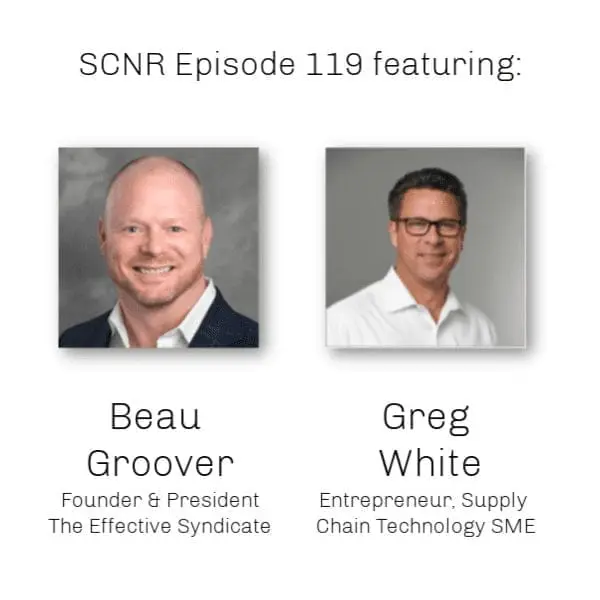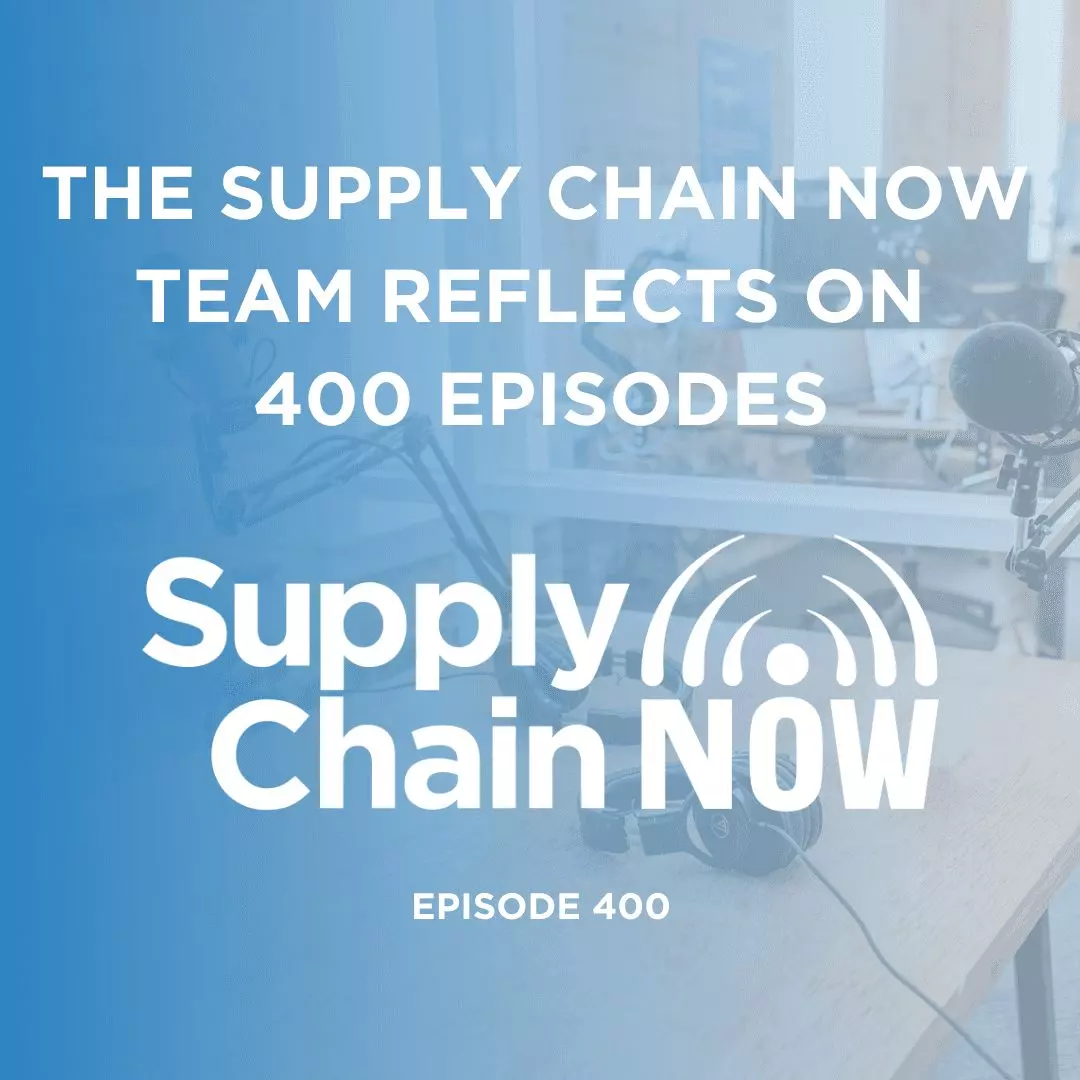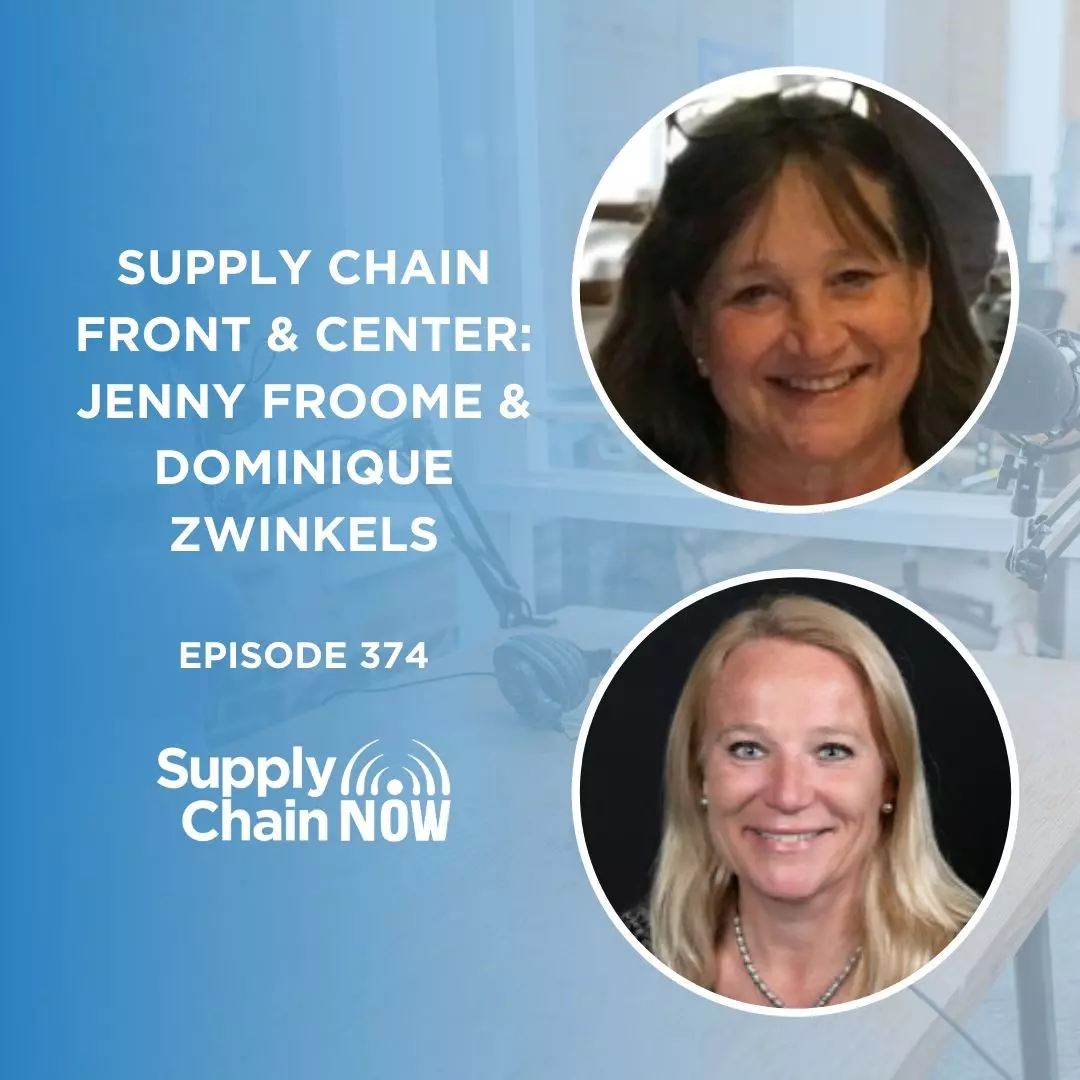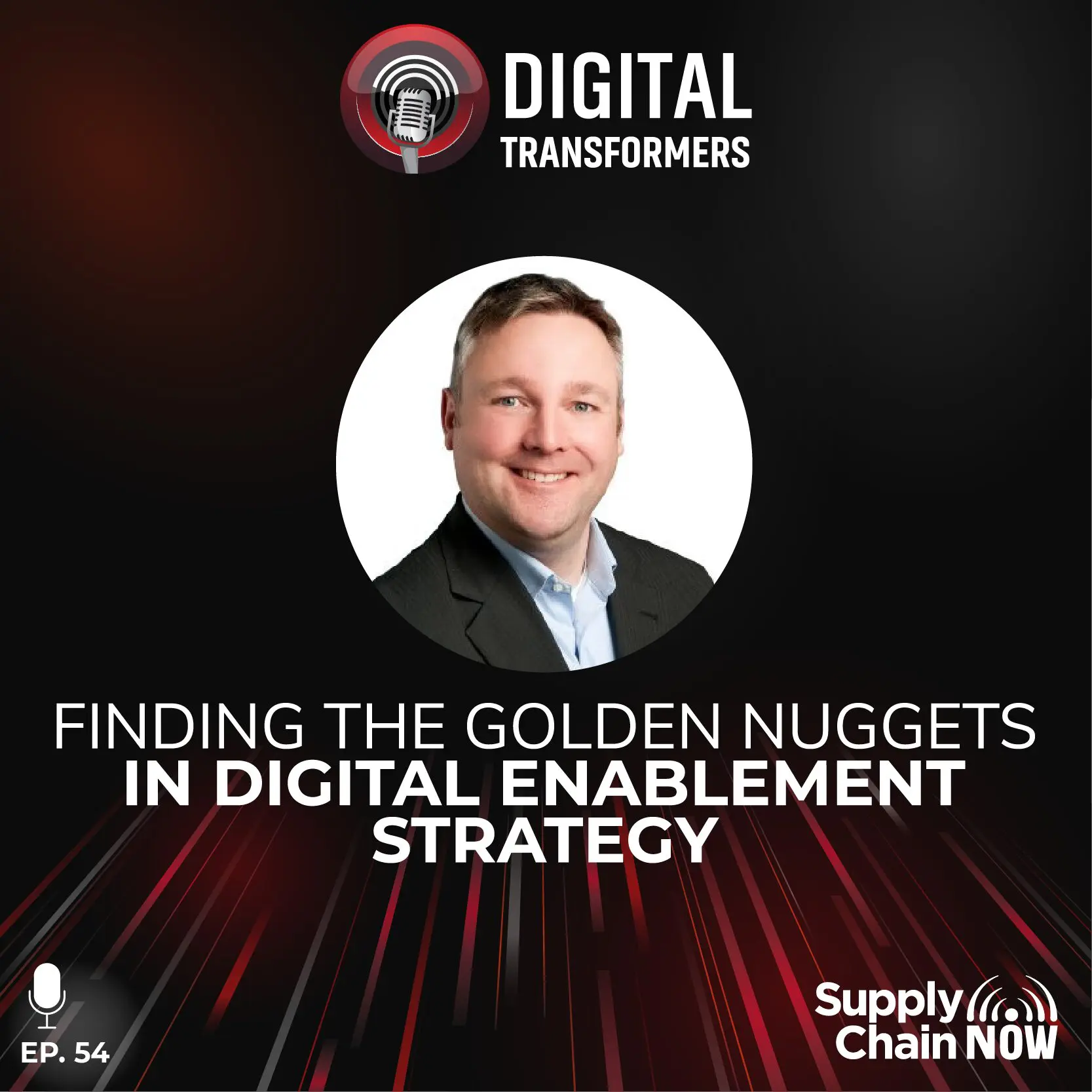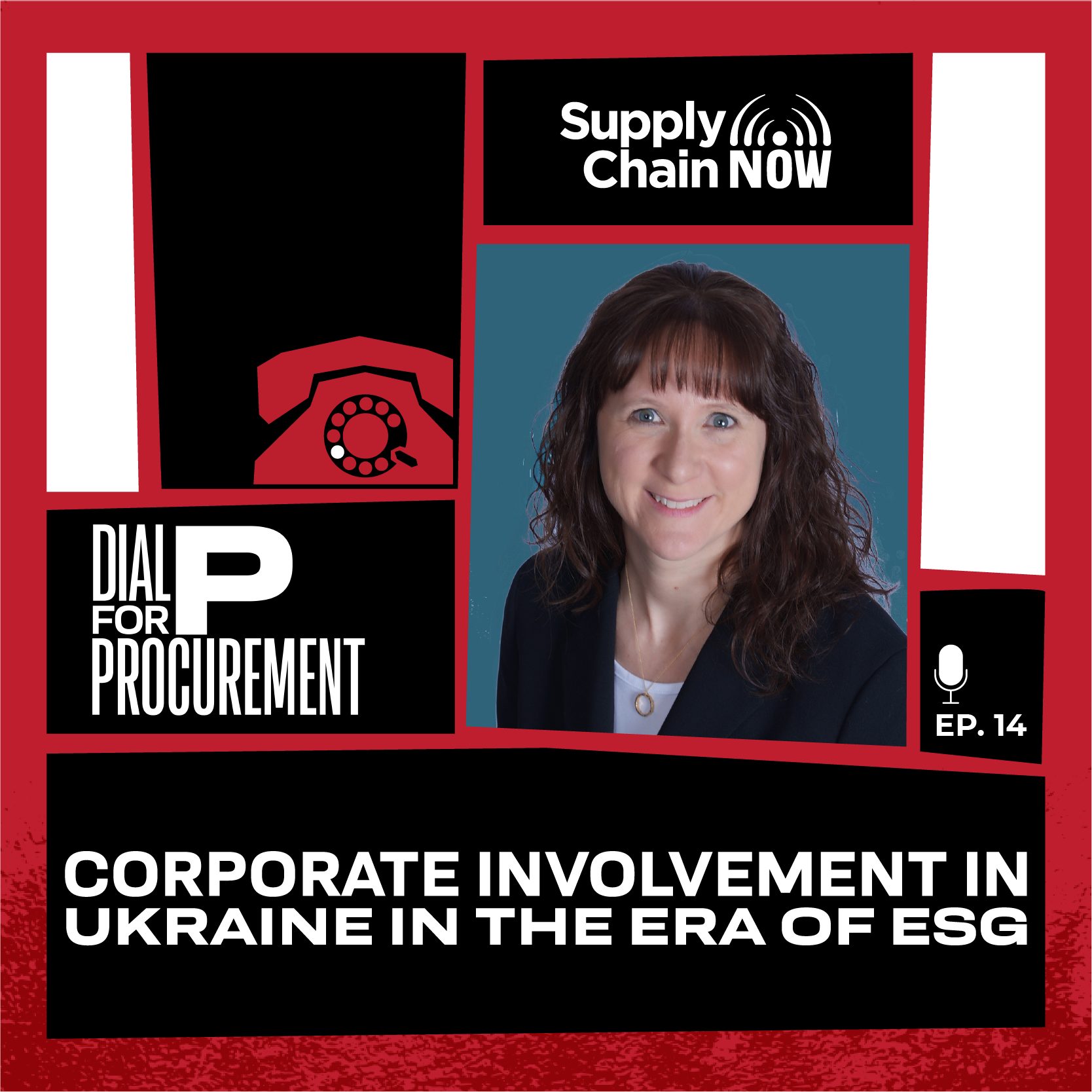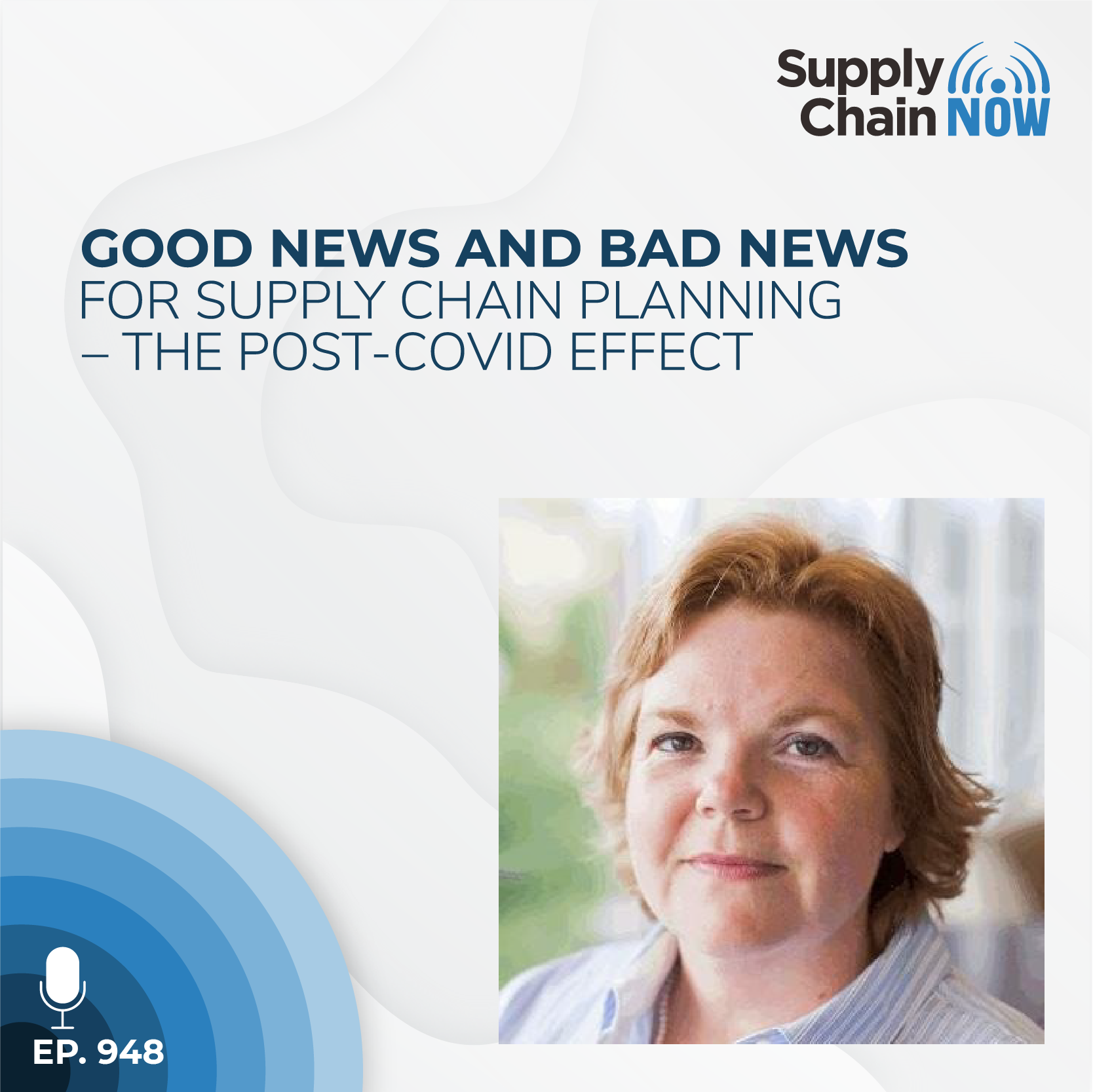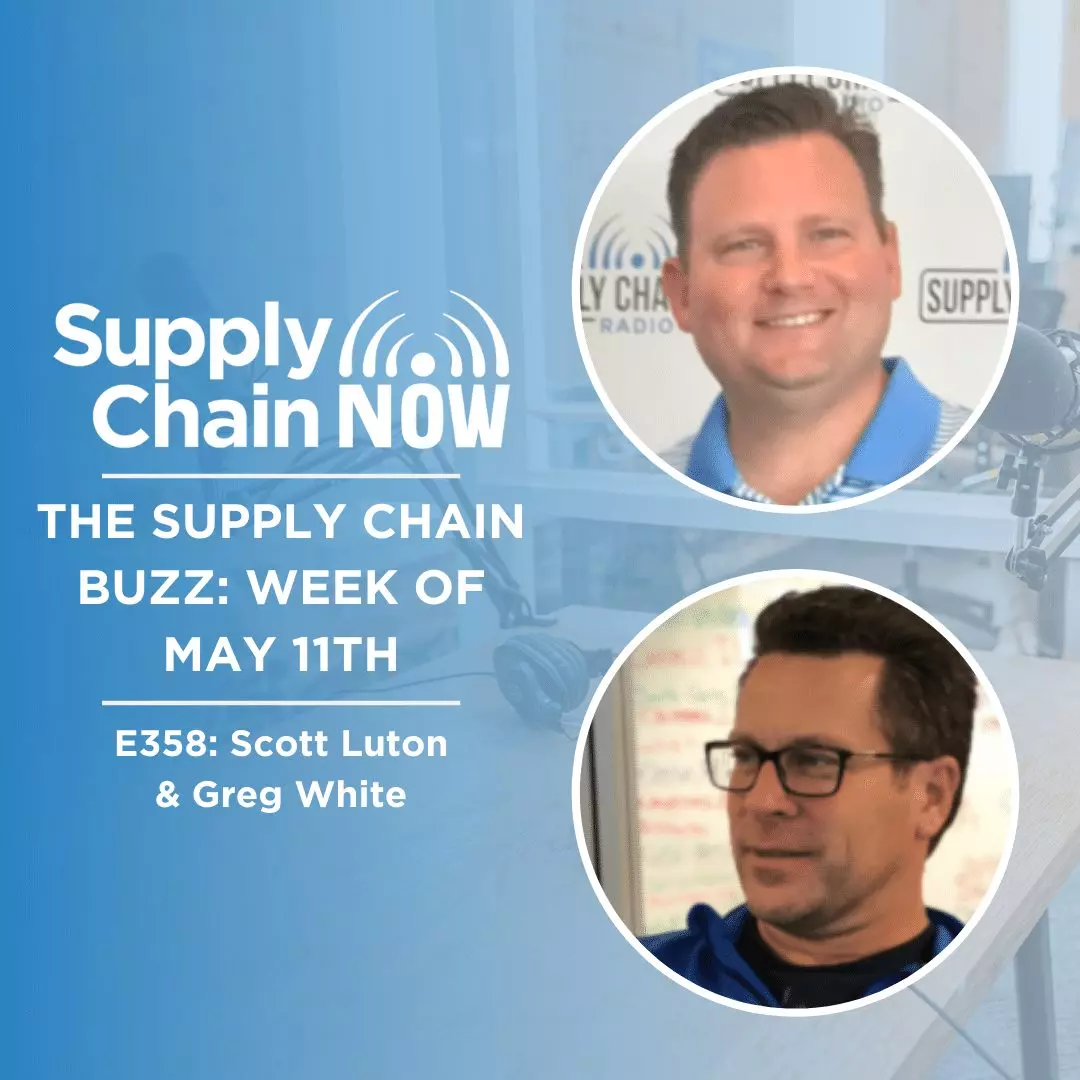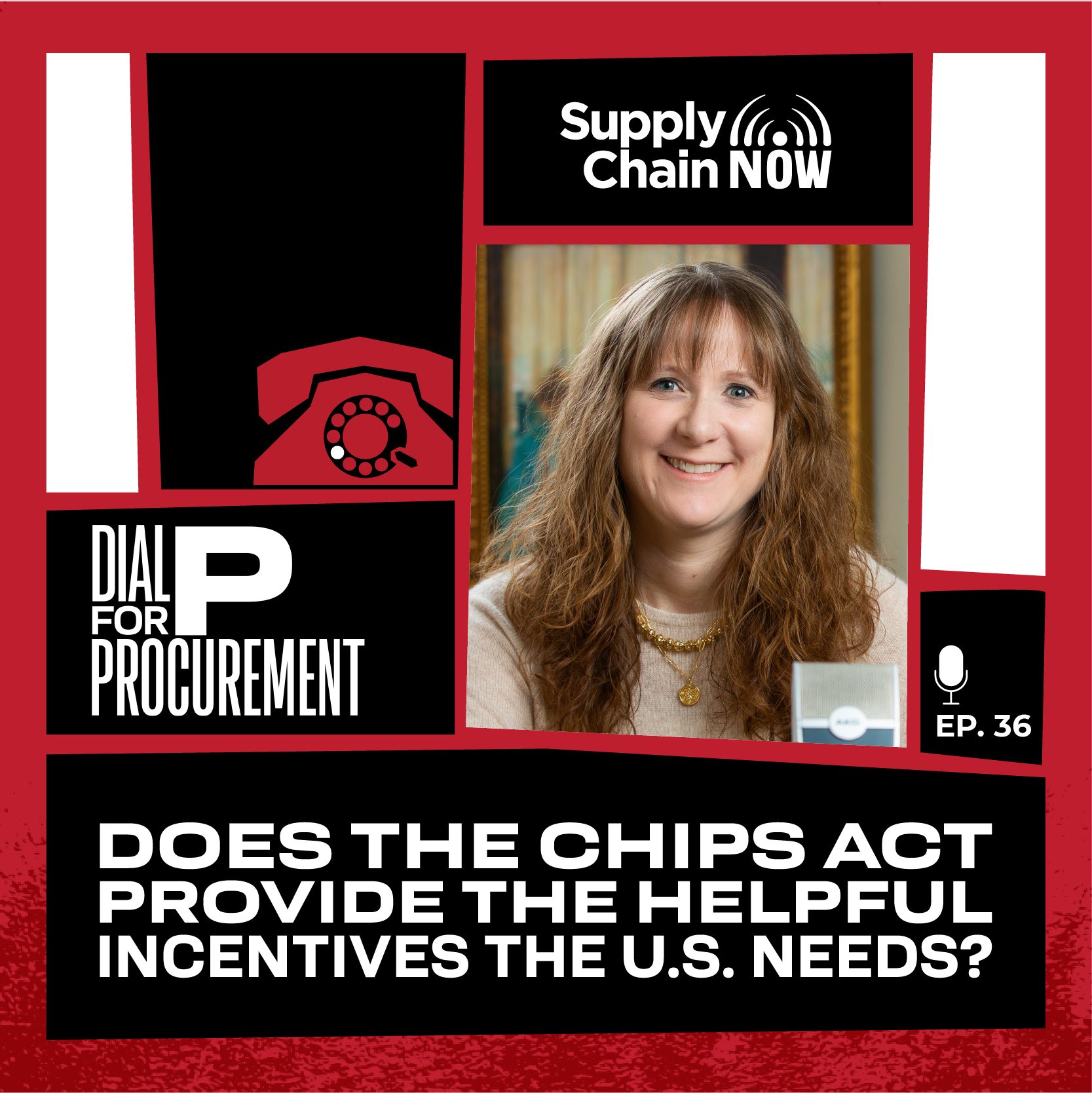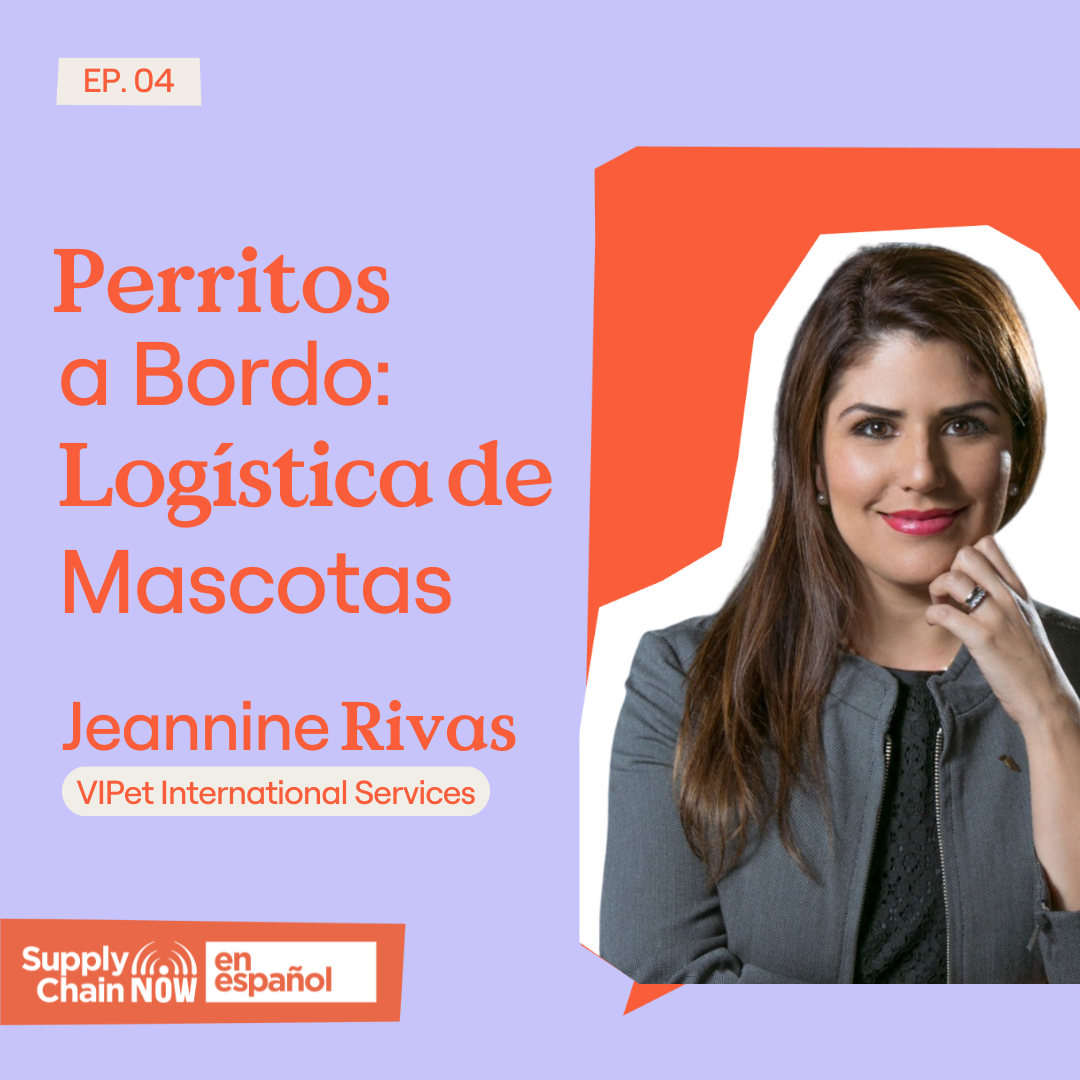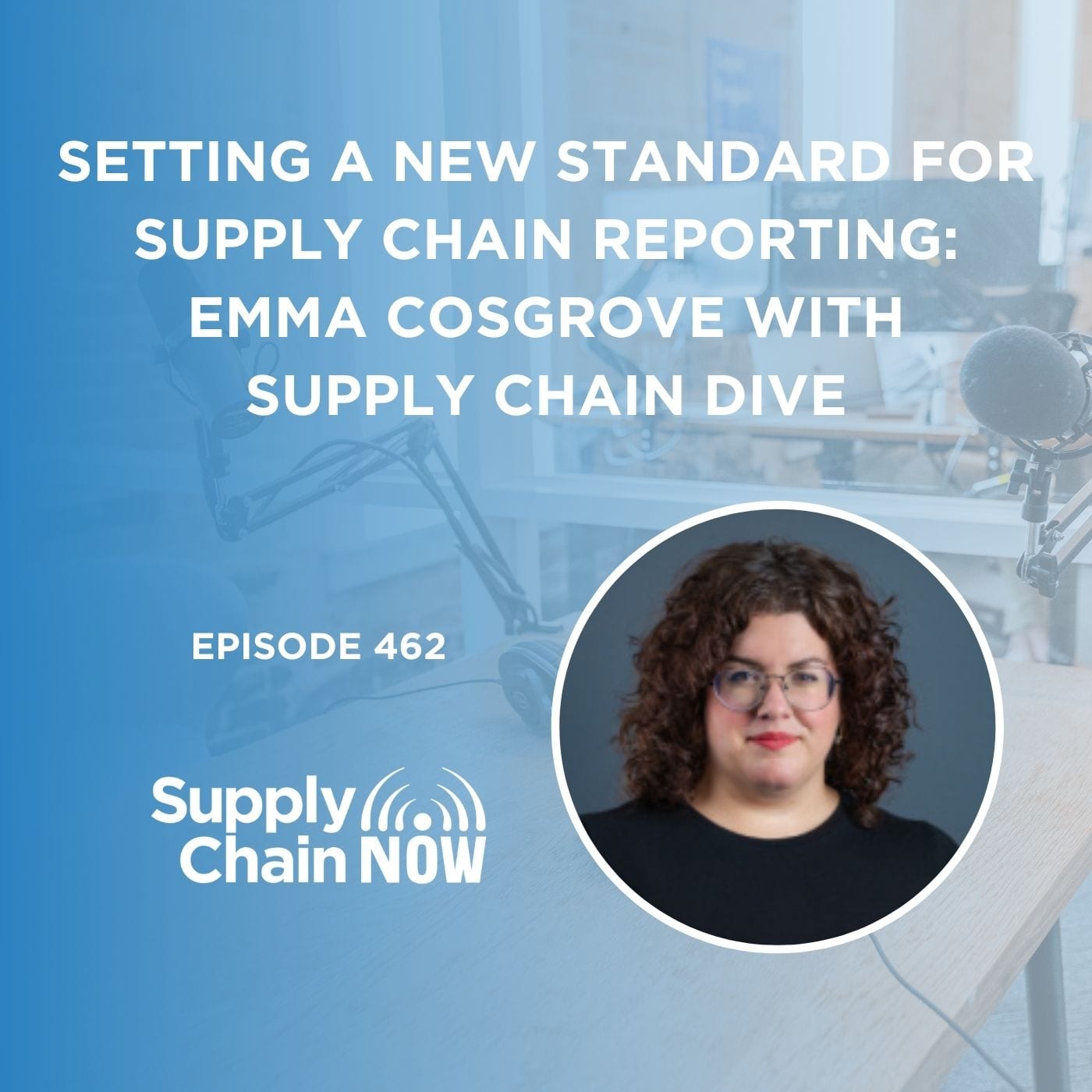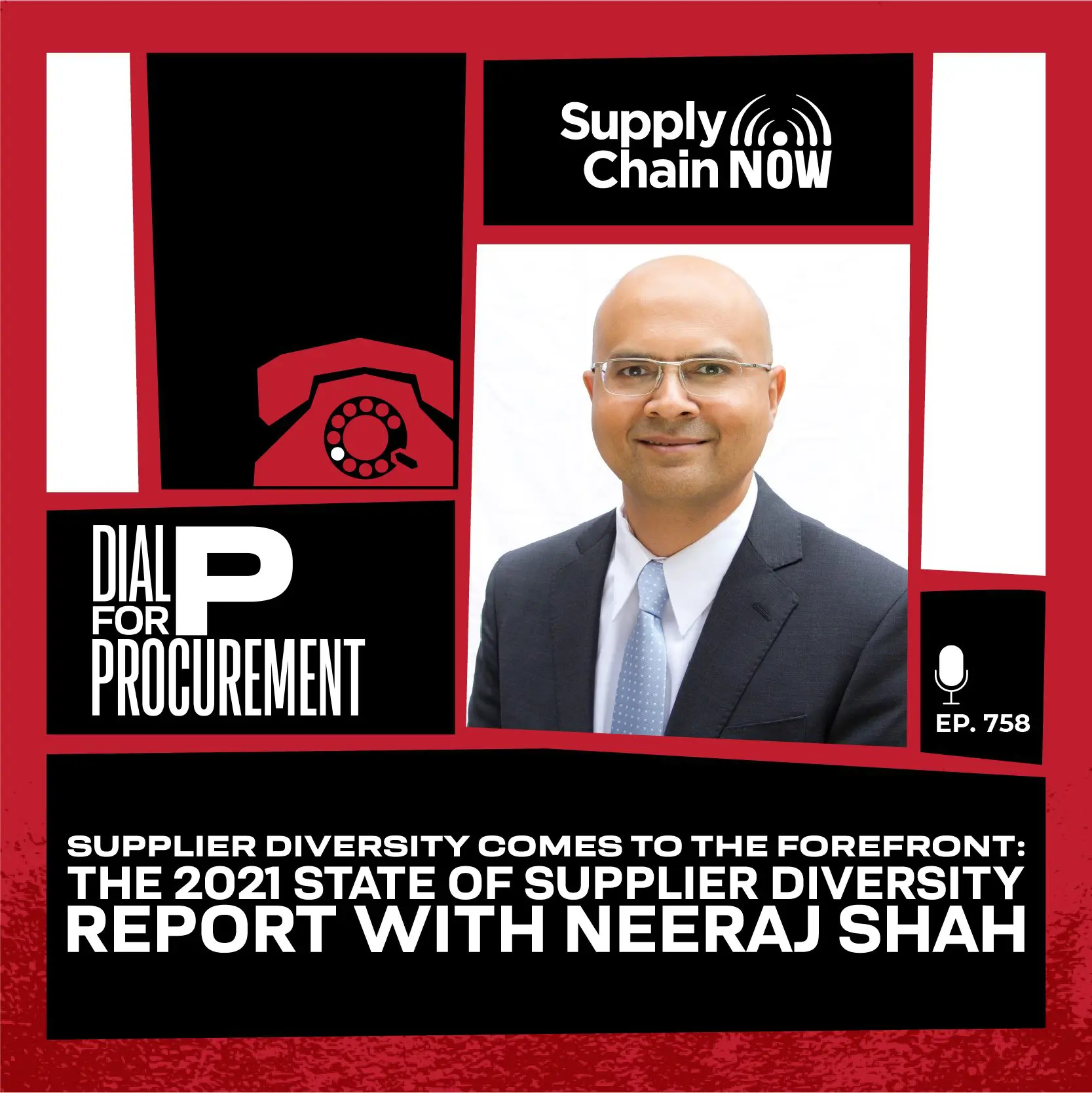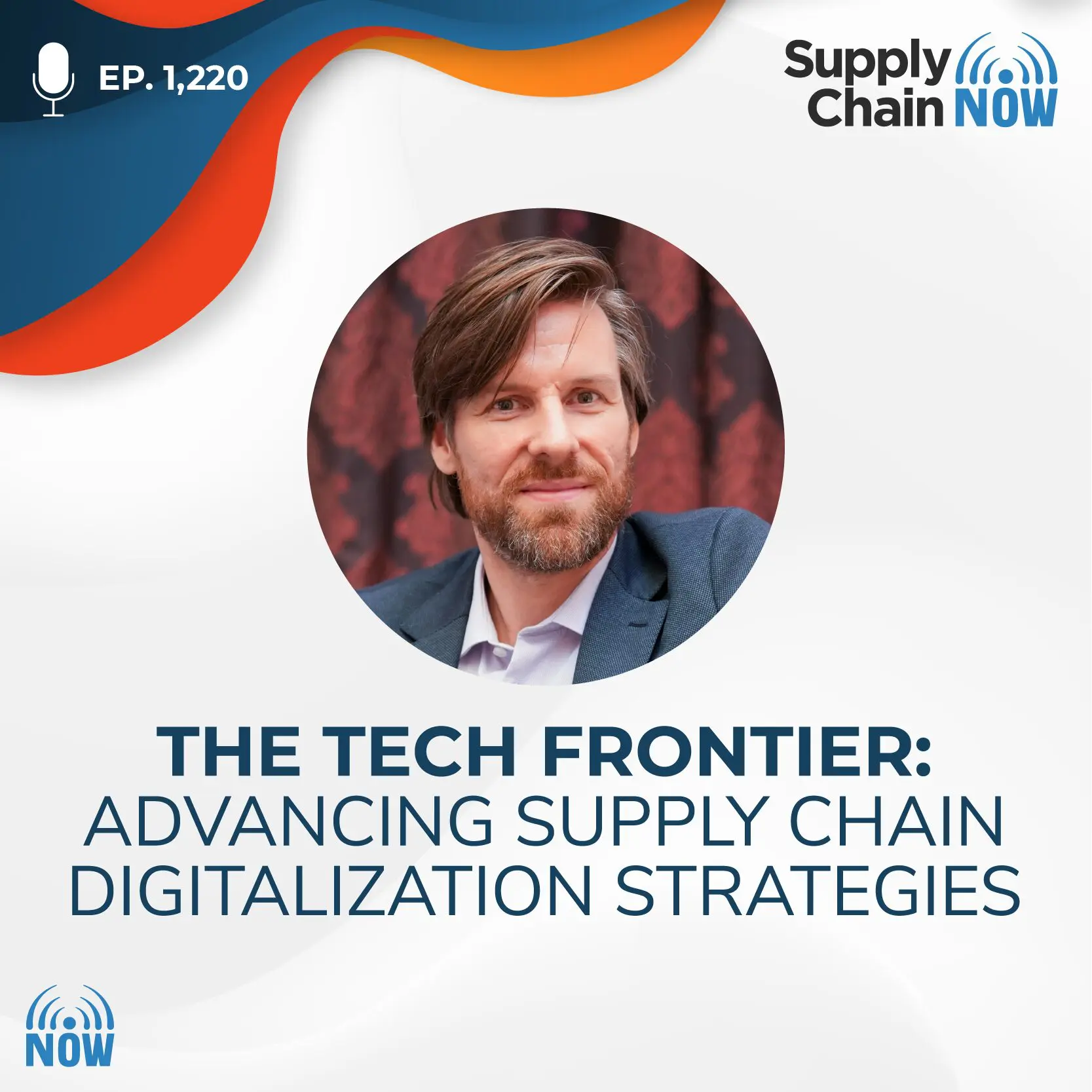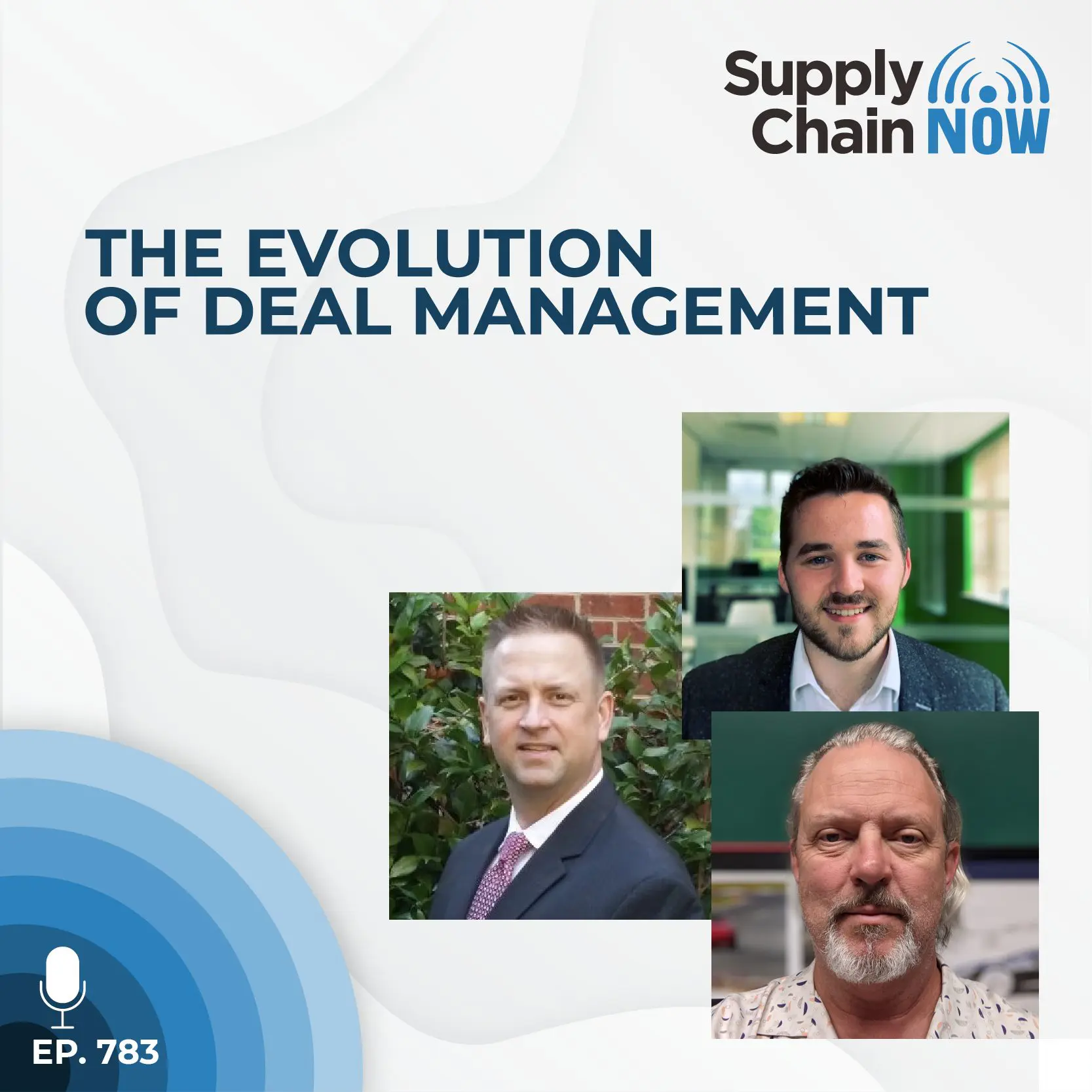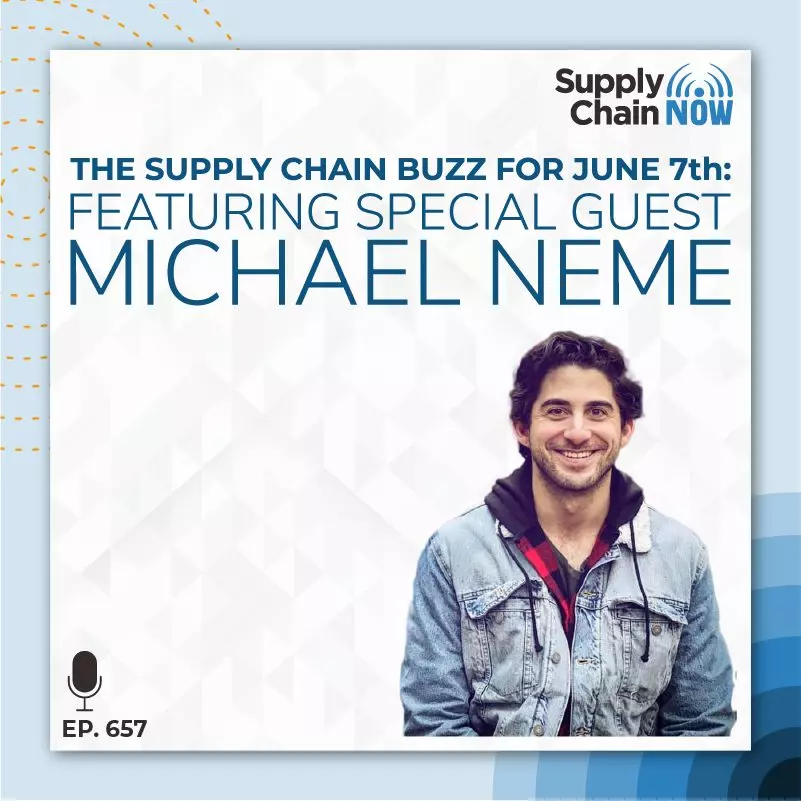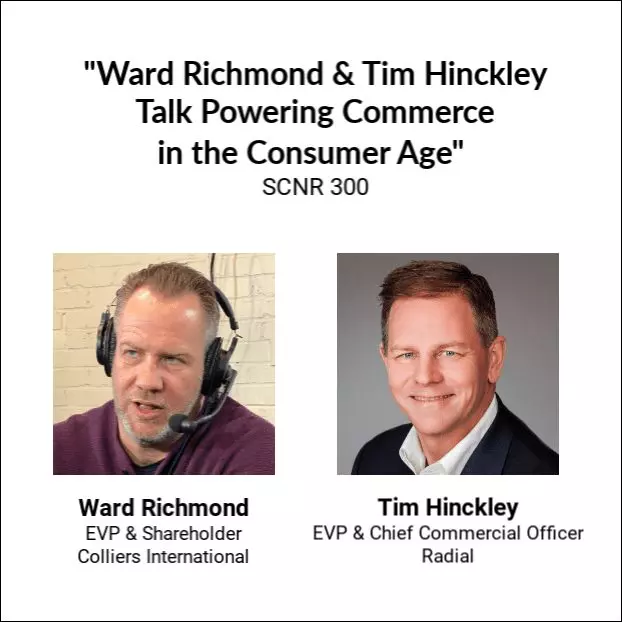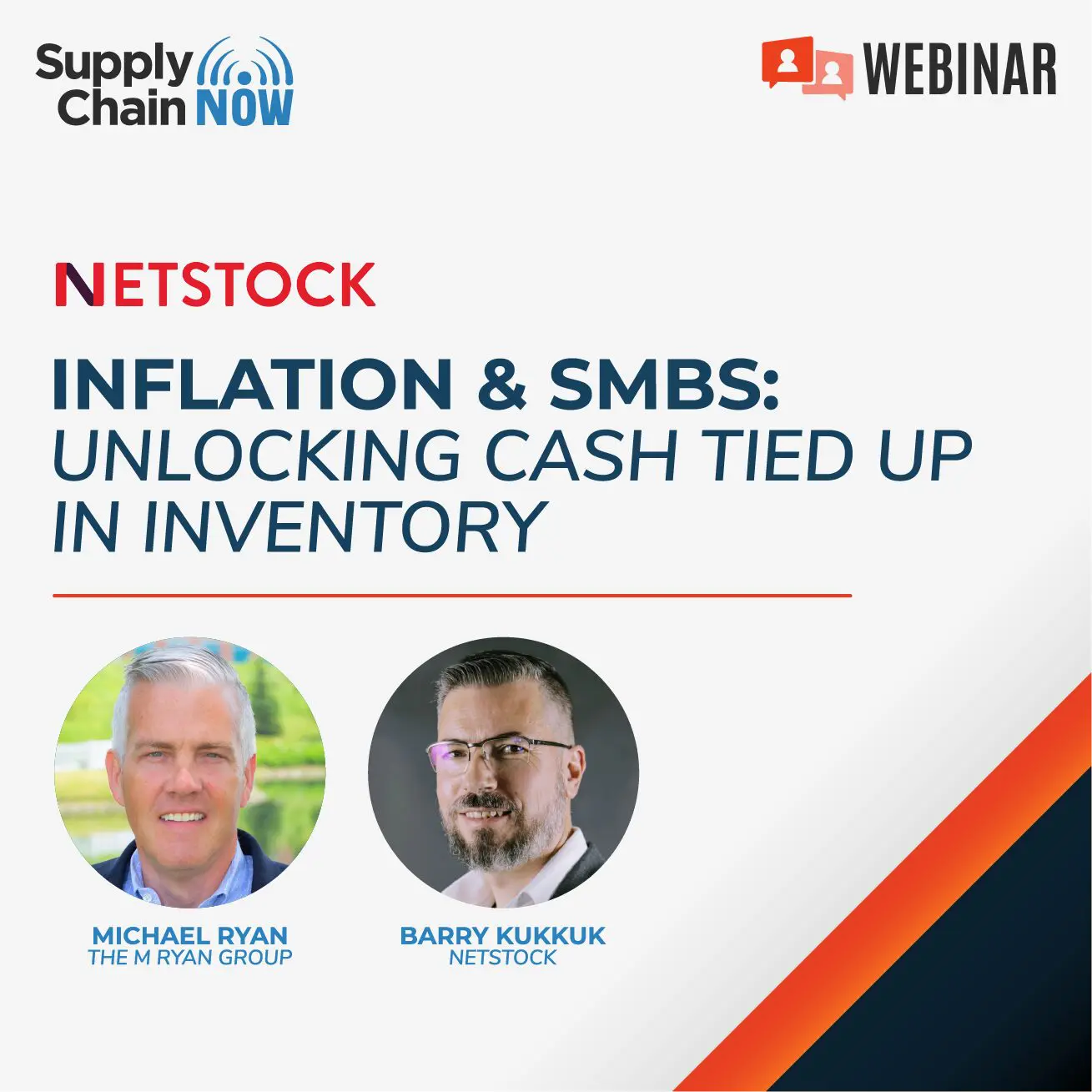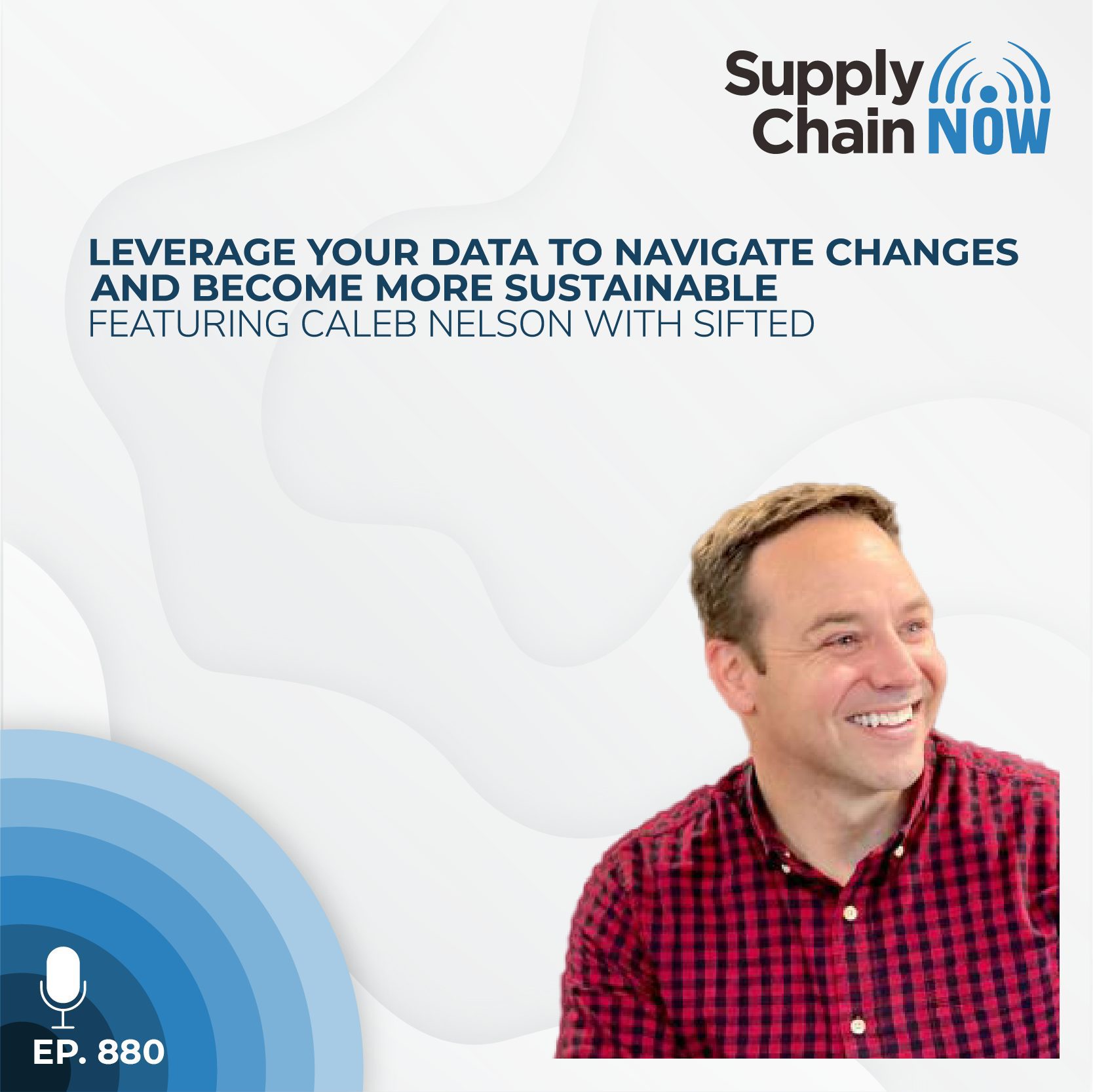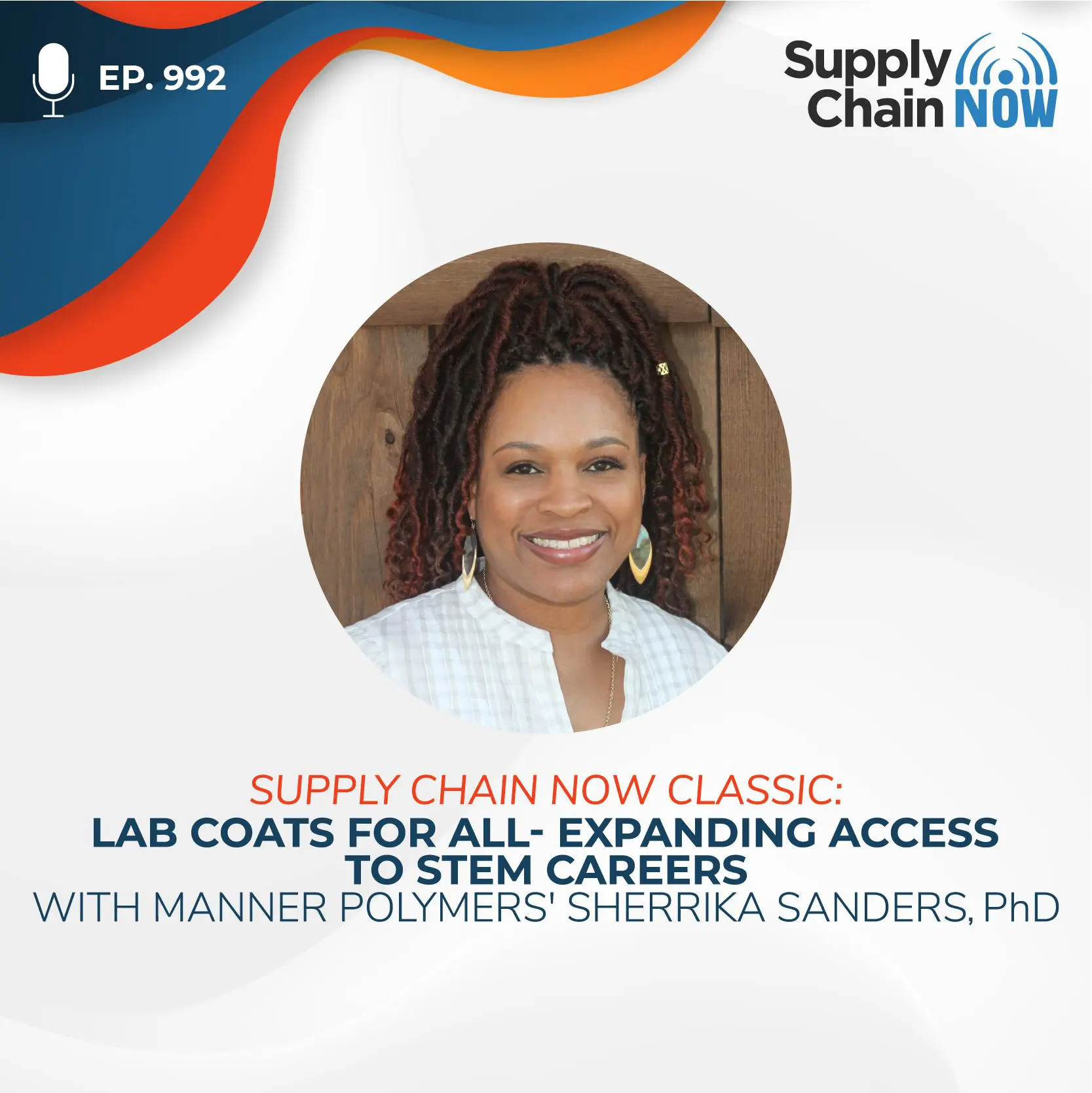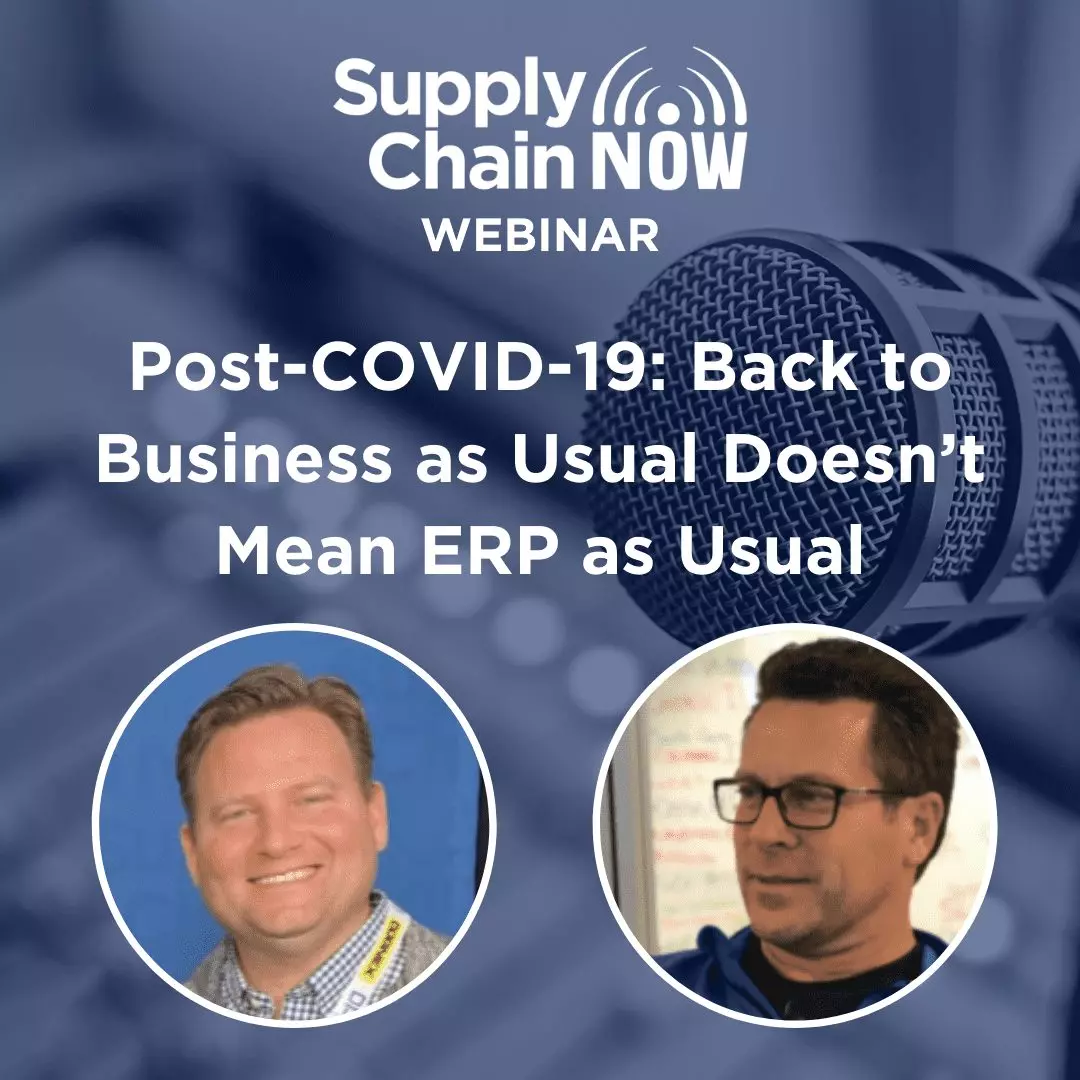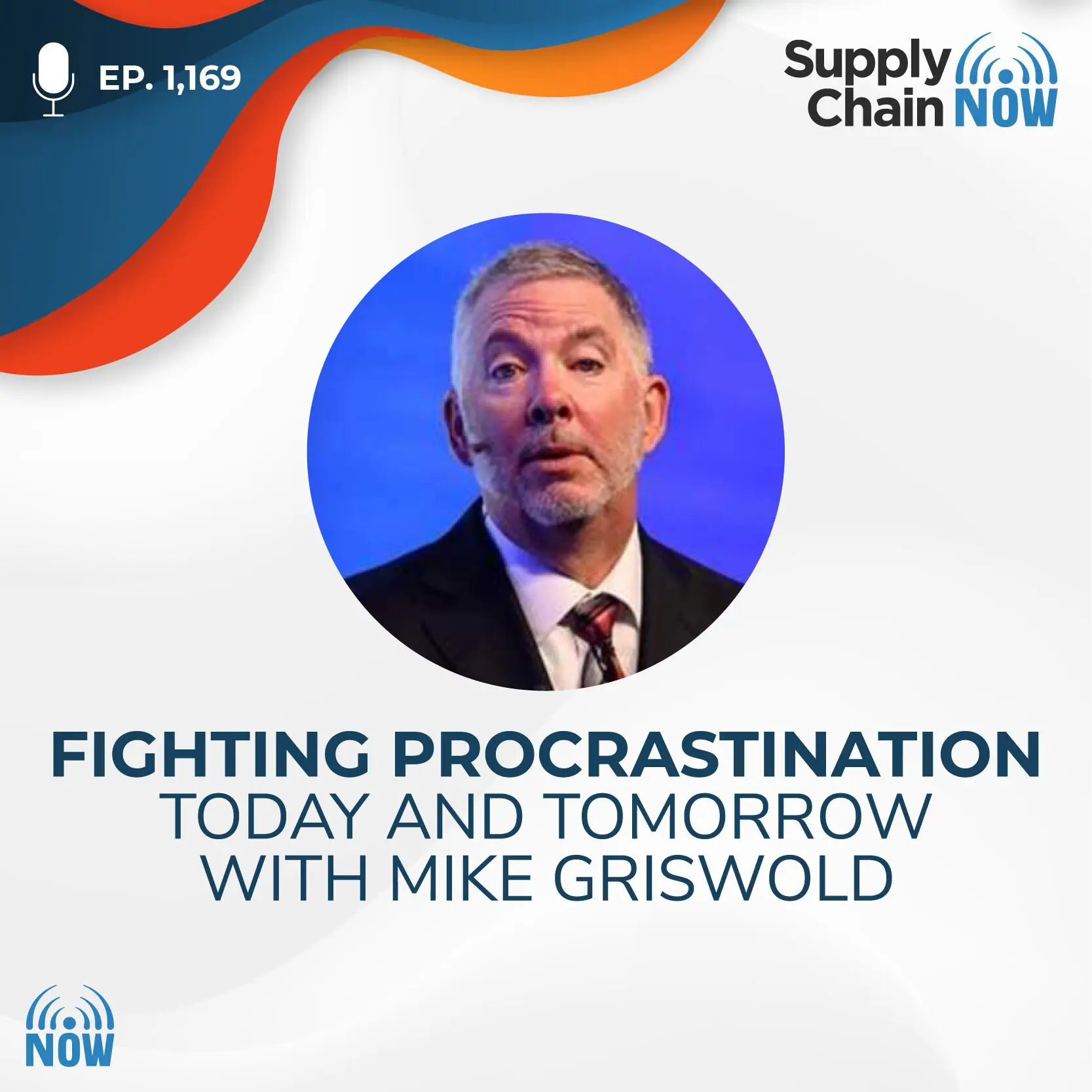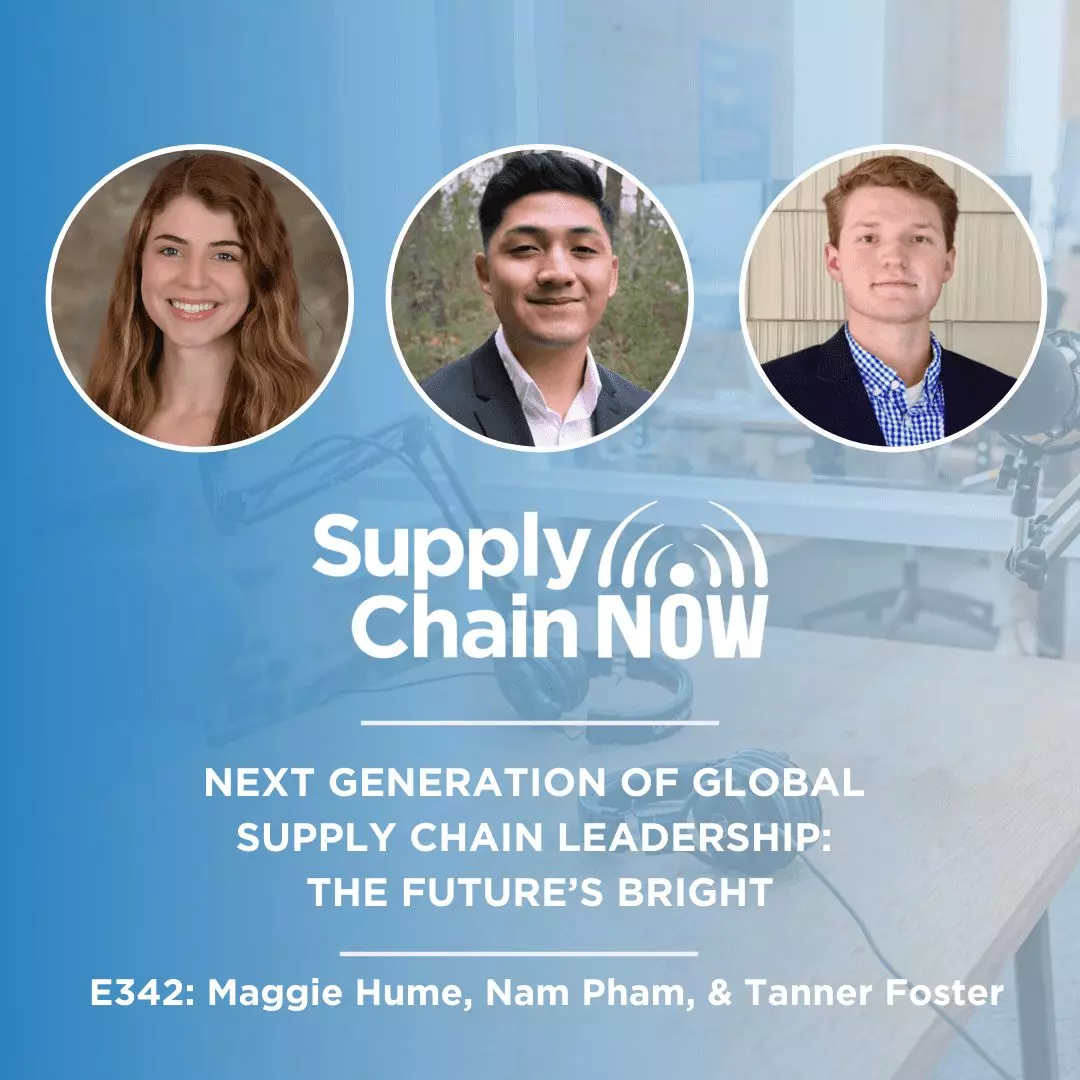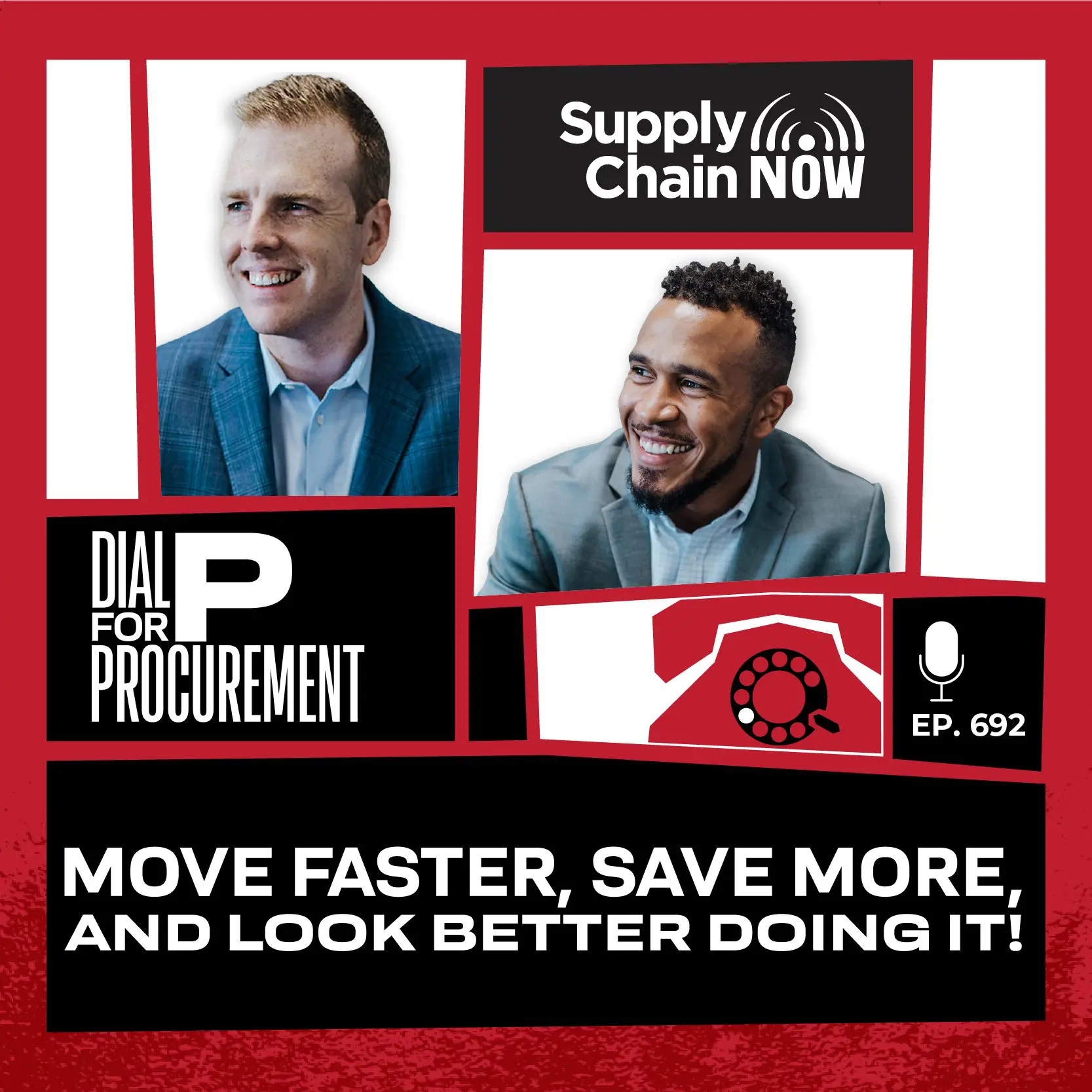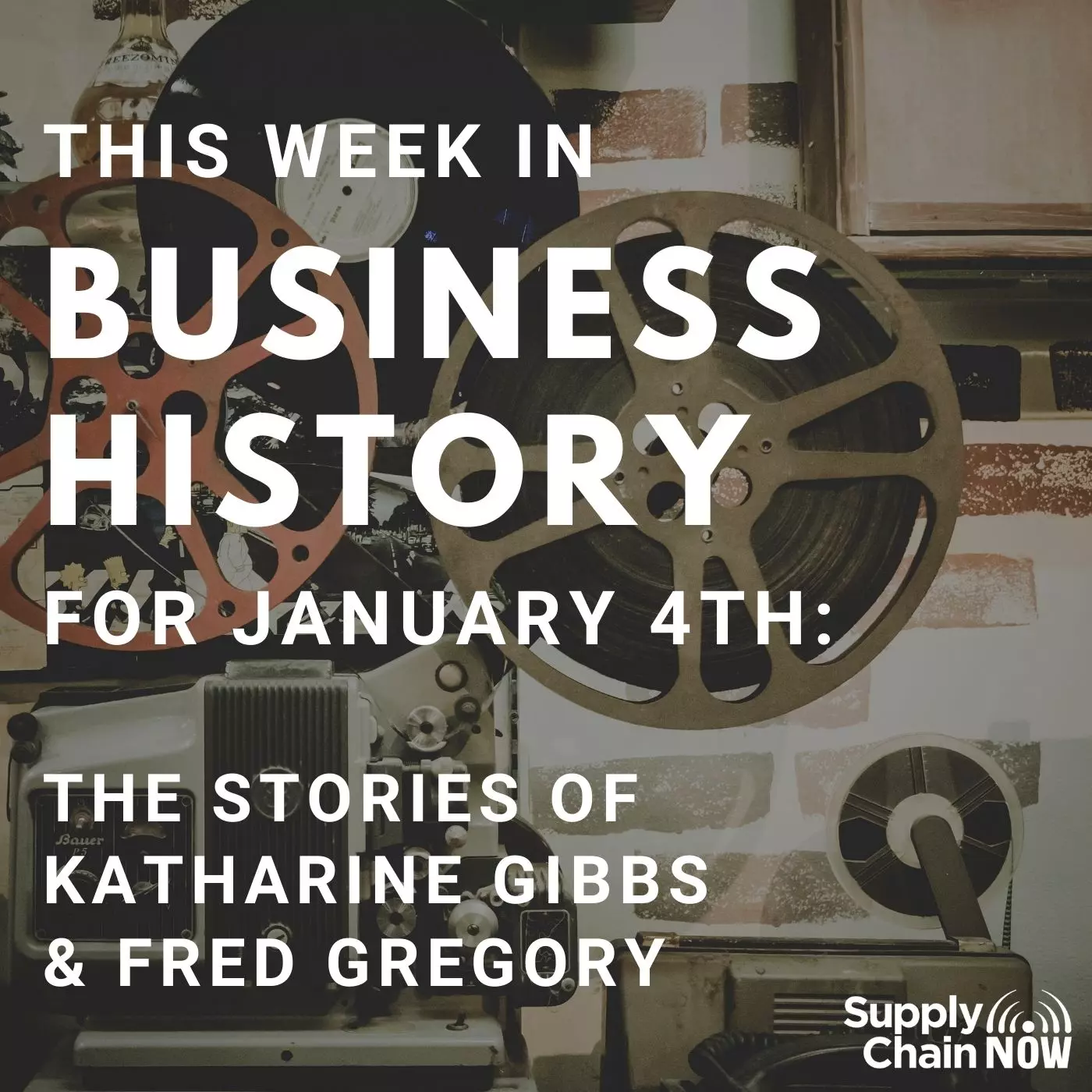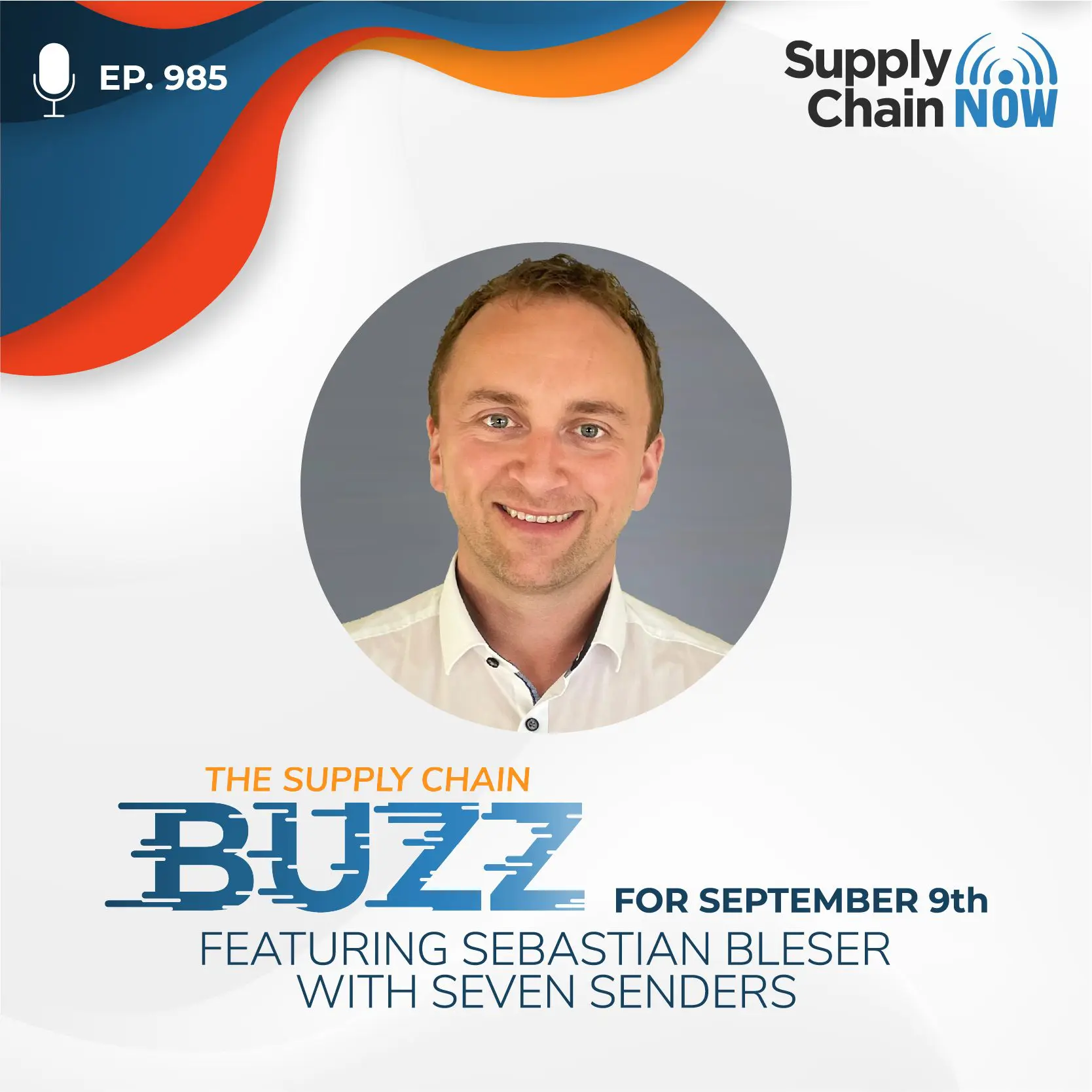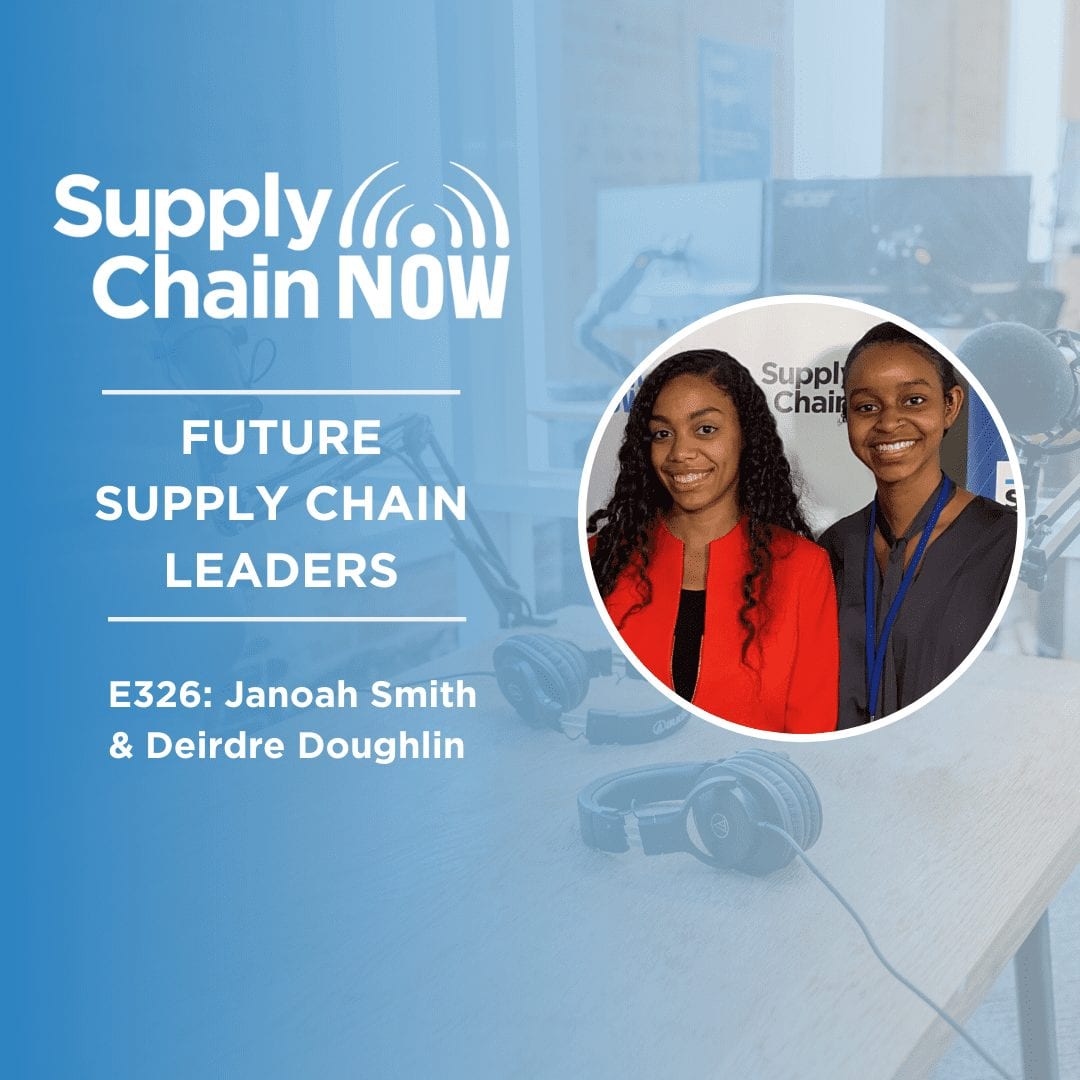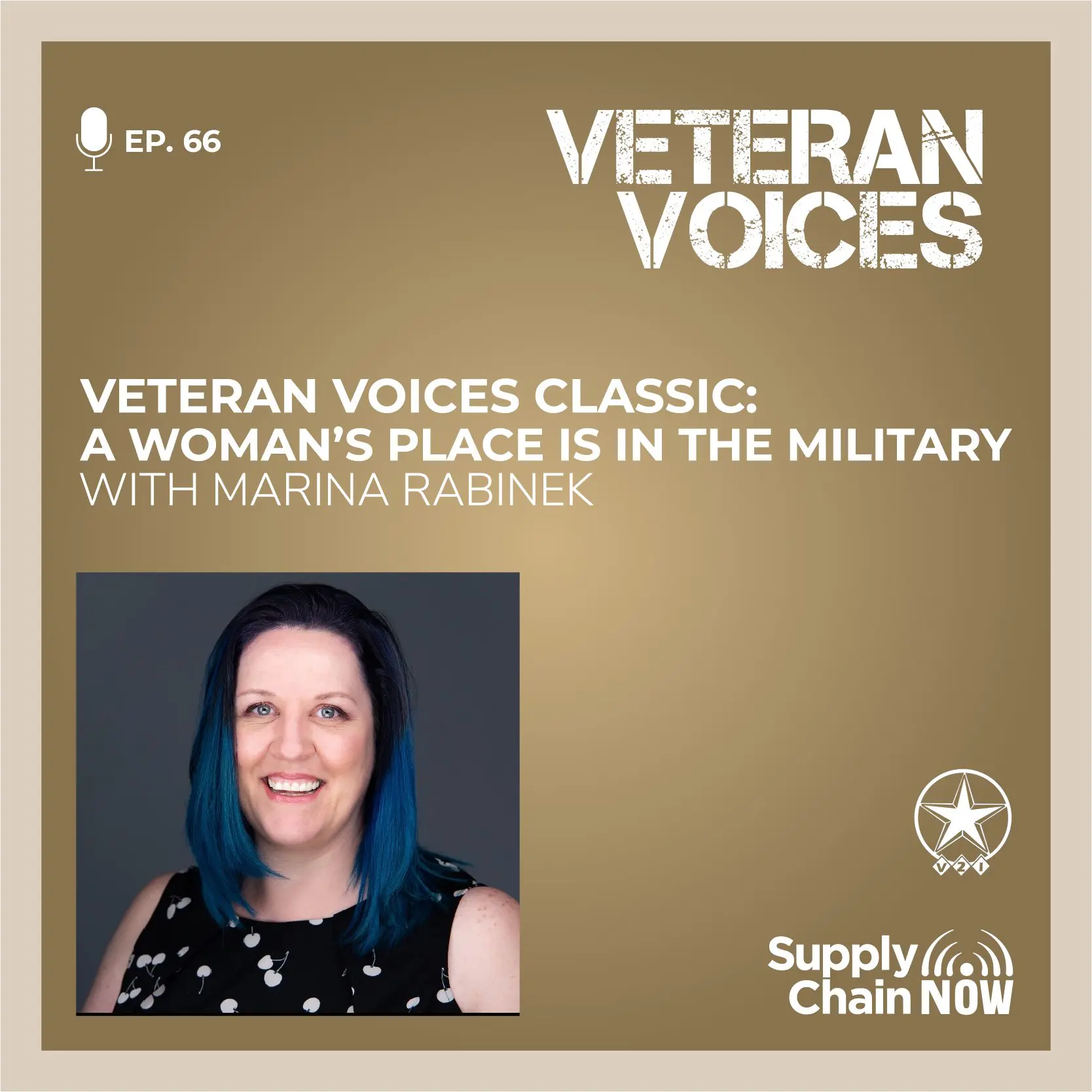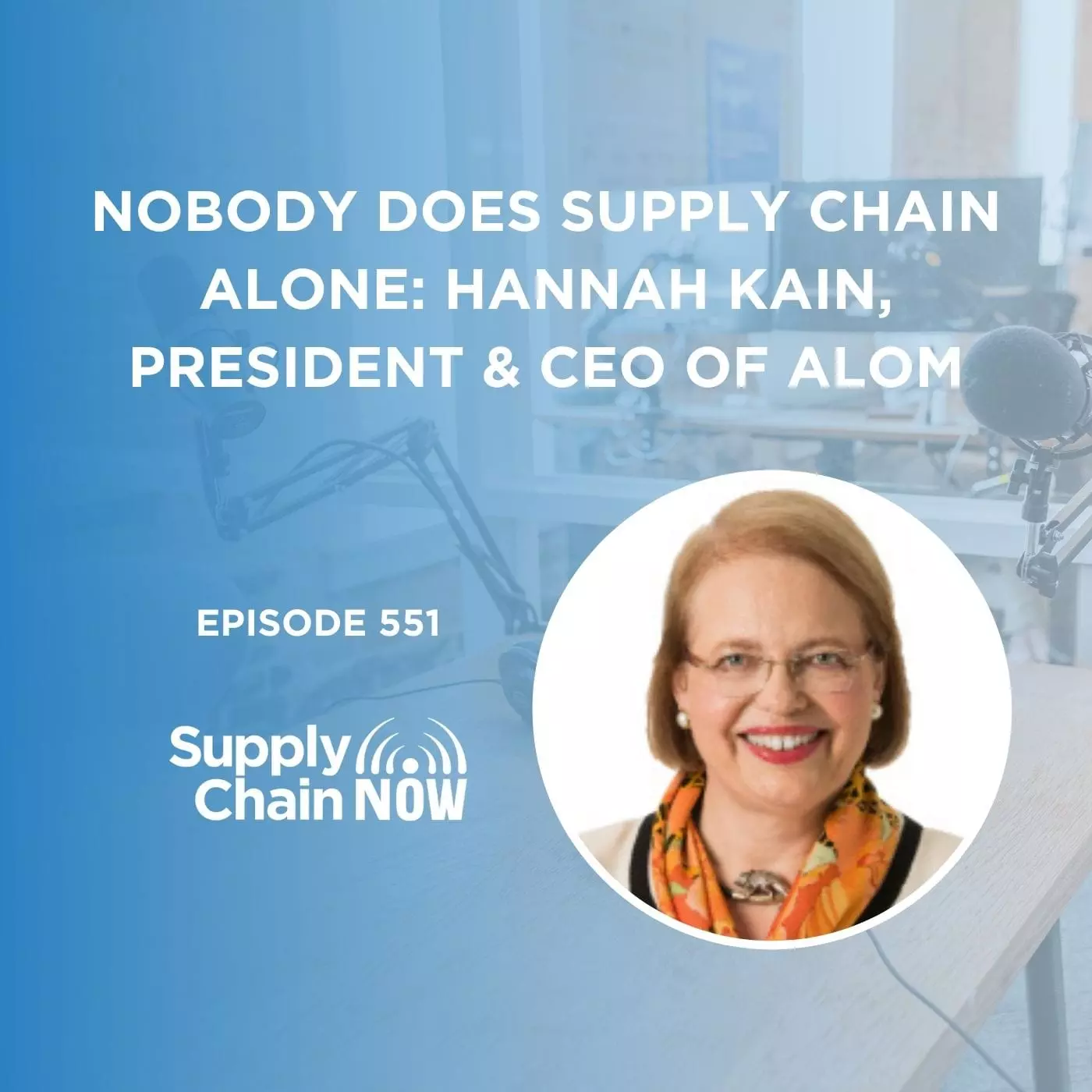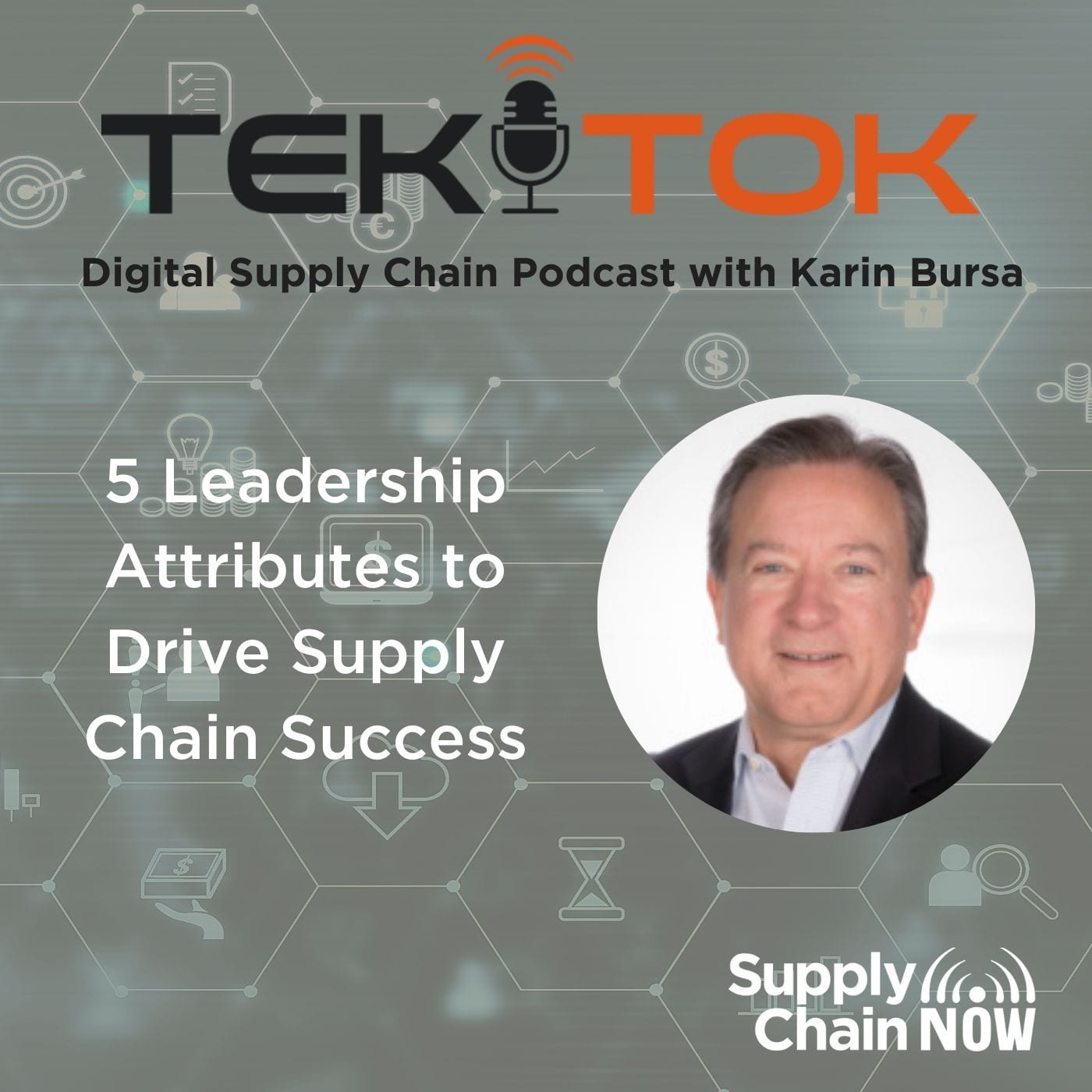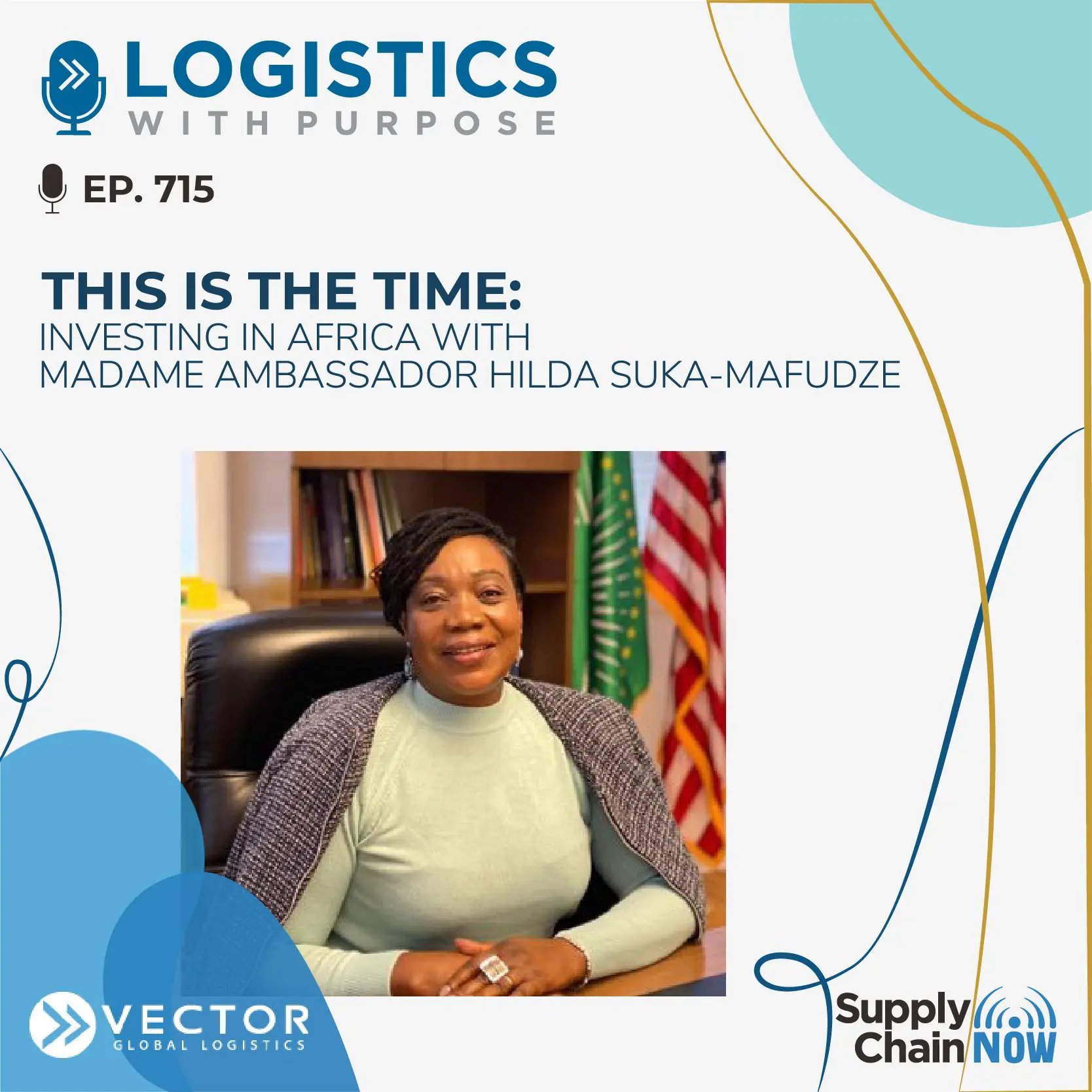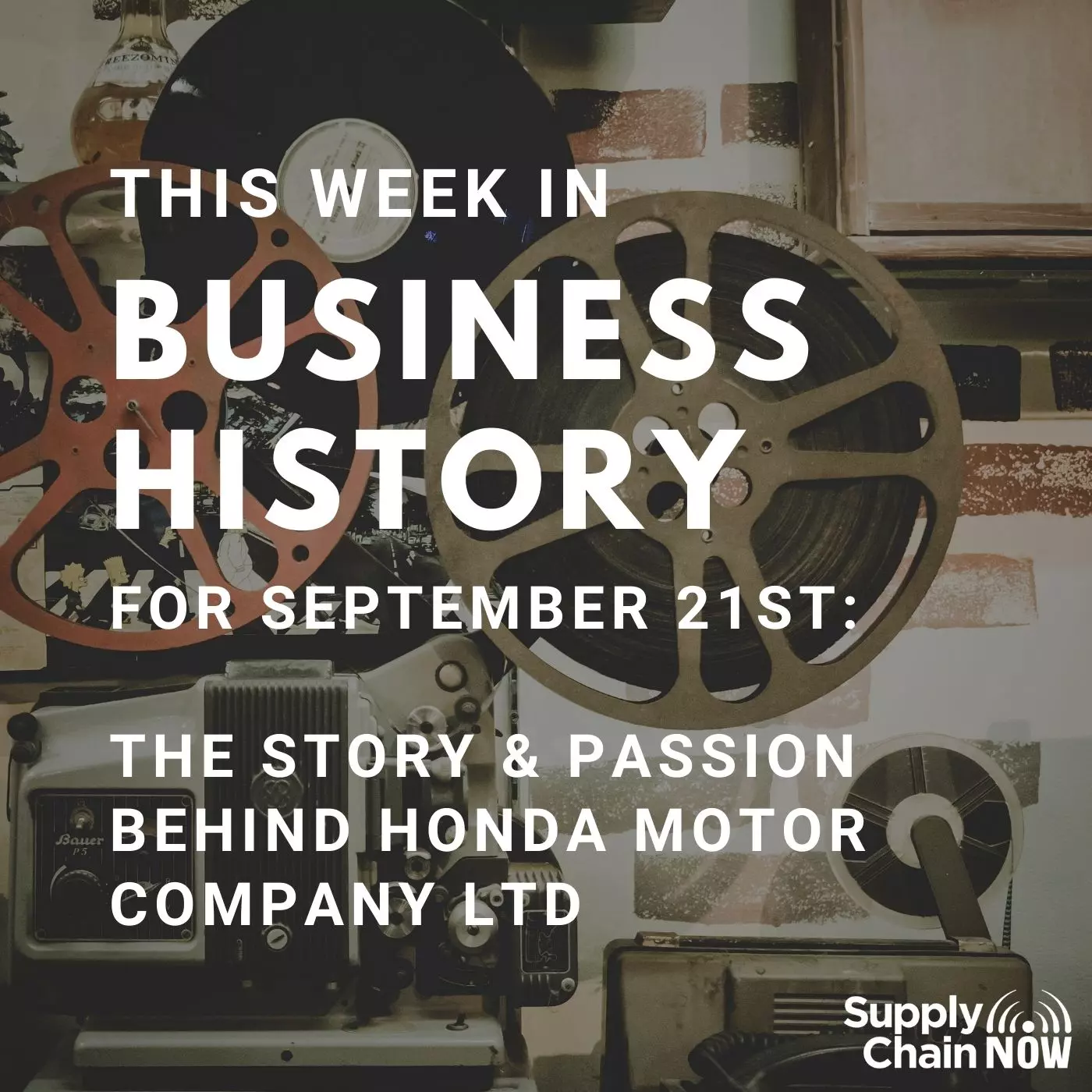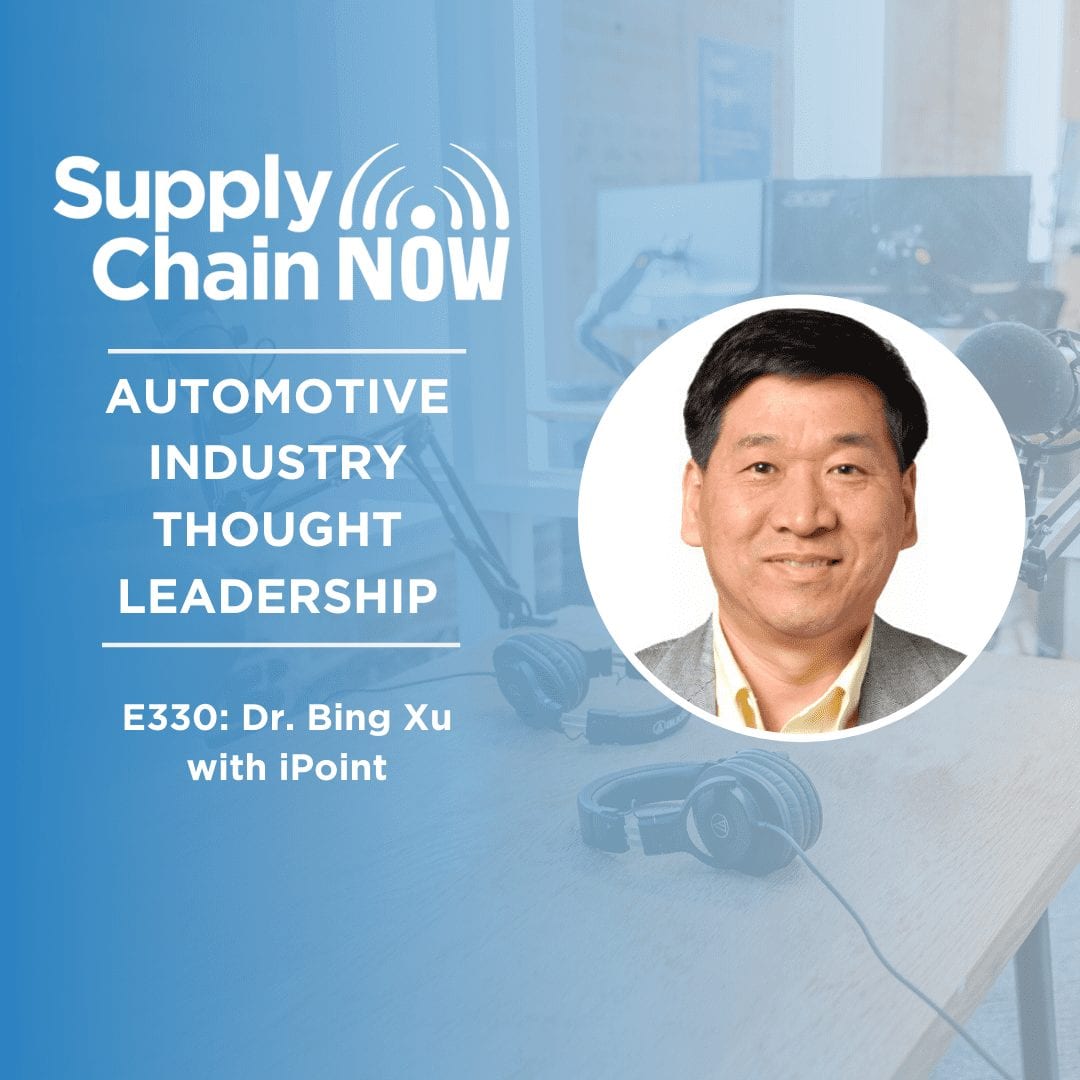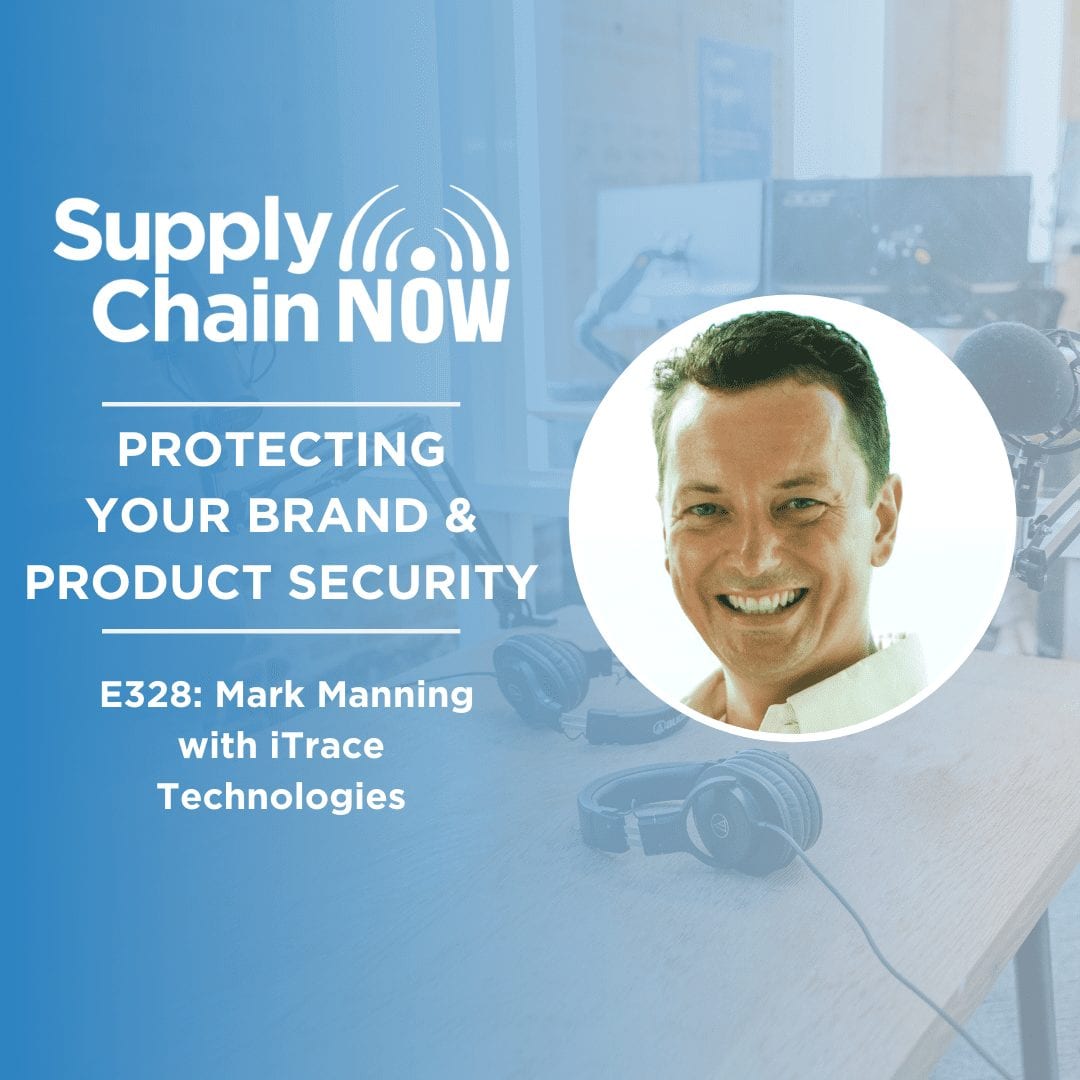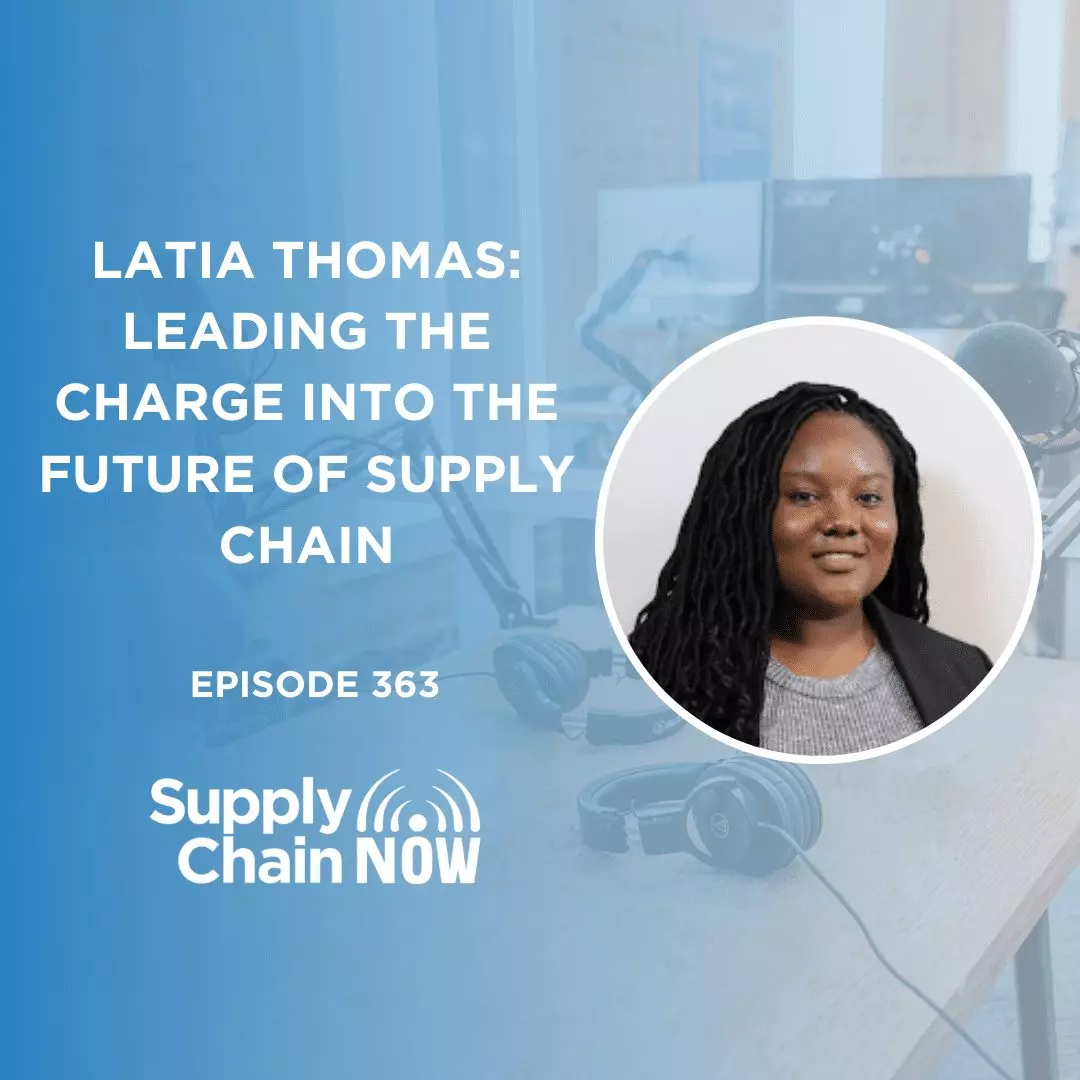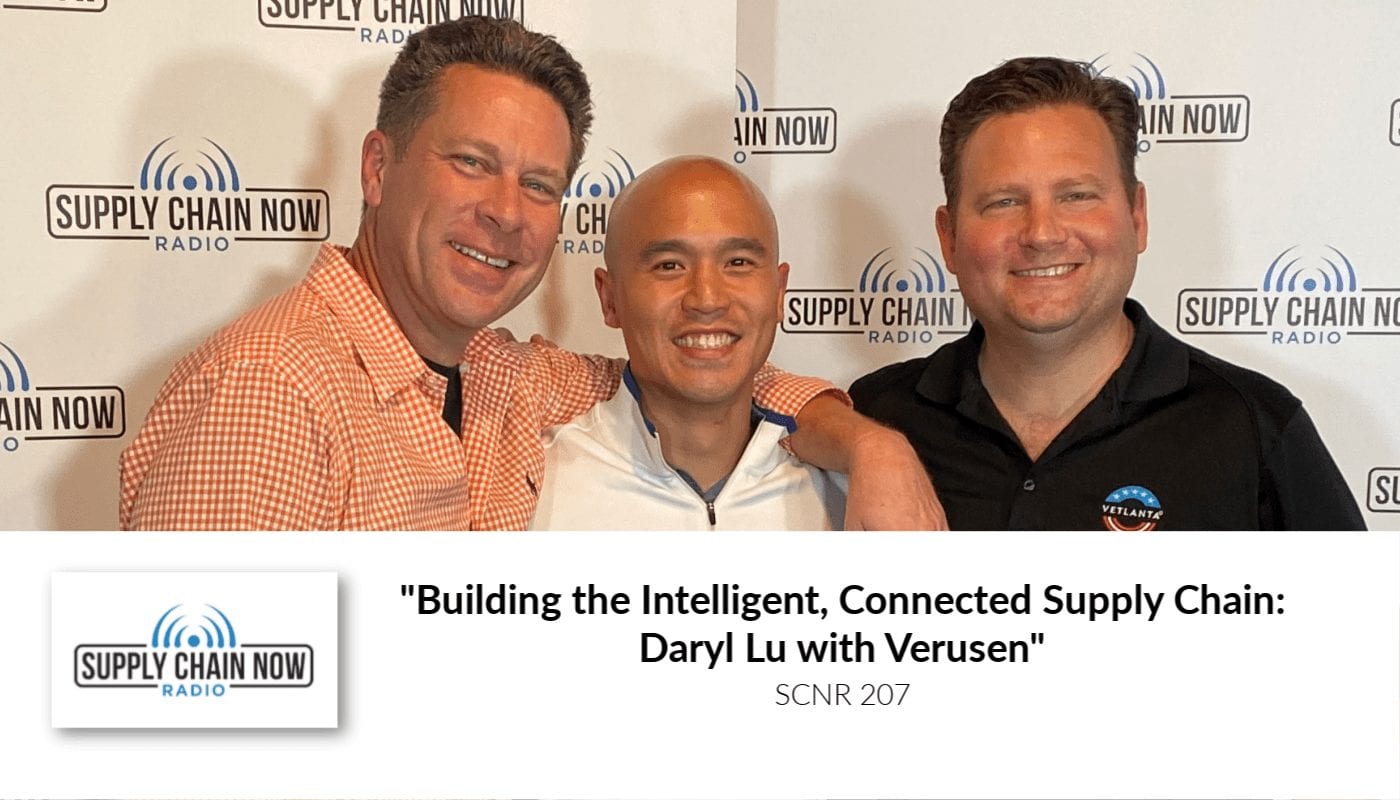
Episode Summary
“Some people are so happy and satisfied with the way that they’re doing things that they may resist change without truly understanding the greater impact to the enterprise.”
– Daryl Lu, Director of Solutions at Verusen
Talk of digital transformation is everywhere, and supply chain and logistics are no exception. But simply falling for the hype and being able to make an actionable difference based upon digitalization are two different things, as Daryl Lu, Director of Solutions at Verusen, discusses in this podcast.
Advancements in AI and digitalization are making it easier than ever for companies – especially asset intensive companies – to digitize their materials inventory management. Emerging technologies are making it possible to build intelligent, connected supply chains. Agile, well managed inventories mean high uptime rates, something all operations want to achieve.
In this interview, Daryl tells Supply Chain Now Radio co-hosts Greg White and Scott Luton about:
- How inventory management needs to connect operational priorities in the moment and on location while also preserving the objectives of the company as a whole.
- Why the greatest benefit to come from digitalization may be transparency.
- The cultural factors associated with successfully leading a digital transformation
Episode Transcript
[00:00:05] It’s time for a Supply chain Now radio broadcasting live from the Supply chain capital of the country, Atlanta, Georgia. Supply chain. Now radio spotlights the best in all things supply chain the people, the companies, the technologies, the best practices and the critical issues of the day. Now here are your hosts.
[00:00:36] Good afternoon, Scott Luton here with you live on Supply Chain Now Radio, welcome back to the show. Today we’re gonna be talking about one of the hottest topics in both the Supply chain and the general business world. The digitization. Stay tuned for insights and perspectives from one of the thought leaders in this space. Like all of our series on Supply Chain Now Radio, you can find our replays on a wide variety of channels Apple, podcasts, SoundCloud, YouTube, wherever you’re podcast from, as always. We’d love to have you subscribe to Doleman see thing. Let’s think a few of our sponsors that allow us to bring best practices and innovative ideas to you. Our audience. Apex Atlanta verusen. The Effective syndicate Vector Global Logistics. To name a few, many more. You can check out our sponsors in the show notes of this episode. Let’s welcome in my fearless co-host today Greg White Serial Supply chain tech entrepreneur, trusted advisor to many esteemed guru to some Heydar.
[00:01:31] Thank you very much. I love it when you say that. It makes me feel good. I’m doing well. Thank you. How are you?
[00:01:37] Doing great on a string of great shows. Yeah. We had a full day yesterday. We’re back with one of our favorite collaborators here today. Yep. Good to have sex. Yeah. Looking for any pre-announce? Well, we will. But you know, this this subject matter is above my pay grade, so I’ve got all 17 pages of my notes ready to go. Okay. As we diagram everything out, you know, let us take it. We are. Yes. This one for sure. But yeah. Let’s welcome in our featured guest today. Daryl Lu, director of solutions with Verusen Daryl. How are you doing? Doing well. Doing well. Great to have you back. The second time on the show, I believe the first time we’re getting right in mail from across the globe on your insights. Your agent probably told you about it. Maybe, but taglit, great to have you back and look forward to talking about really a hot topic. Yeah. Not just in Supply chain, but across the global business world, which is digitization. Yeah.
[00:02:29] I’m really proud of you. You’ve been fretting about that word for a while.
[00:02:33] Yeah. You notice I didn’t even attempt it. We’re gonna give you your shadow minister just a few minutes up. I’ll add it to the news. Yes. Well, you know, what is what is coming in hot from soulless?
[00:02:46] So I want to give a shout out to my our friend Steve Kievan, Ian and loyal listener who has encouraged us to put the news back in. We kind of took out the news for a few episodes and he put it back in. But today and Daryl can verify this, we did some searching of the news and there there’s literally no news today. It’s like every book, every news source is just advertising today and and decided to take in, you know, to take a investigative day off.
[00:03:13] Well, it is good to take it a breath of fresh air and just reset with a great guest and in how they’re helping companies fight the good fight in this hot space and in others, not just the digitisation, but but plenty of others.
[00:03:26] Can I give just one shout out? Yeah, please. Dair Daryl is a donut guru, right? He shared with that that with us pre-show. So not only can he share a lot of insights from digitization standpoint, and I’m not immune to try the other word, I’m let you handle it. But also the 3-D digitization. Democratization. Not bad.
[00:03:48] And donuts. They did pretty good. So seriously.
[00:03:53] Sheer. You want to shout out your 90 day project a little bit about the donuts?
[00:03:59] Yeah, it’s not 9 days. It’s uh, it’s it’s it’s on quicker than a still lifelong. Yeah. It’s, uh, you know we started it because I love donuts like these little halos of confectionery. Goodness. You know it’s called a there’s a site called Froome Donut. That’s three ends then donut. You can spell in any way. But I’ve got both. Yeah. Good. Donut. Dot com. And I’ve just been traveling all over the place and just trying out different donuts from different shops. And it’s it’s a lot of fun. Last week I was in Taipei in Taiwan. So I’ve got a couple donuts coming up for that. Great. And I rate the donuts on six, as I call them, to nodal dimensions, including things like the Sprinkel density quotient as the Q ever analytical Daryl. Yes. Yeah. Yeah. There’s the uh, here’s the fruitiness factor increases fruit on that chocoholics ism. Yeah. There’s there’s a lot you just can’t check it out and I’m glad, I’m glad that you’re doing that. Yeah. It’s because I digitized what I was thinking. Mean it’s true.
[00:05:05] It is. I mean yeah I mean it you know that is not something you could have done without digitization. Right. I mean it would be exceedingly difficult to communicate without that.
[00:05:15] Yeah. It would be like stuck in notebooks. Just use in my head and no one will see it. You write and have the democratization of of donut of donuts and the collaboration and even finding the places. I mean, that’s what happened. Yeah. You really went from Yellow Pages and that and you moved over to Yelp and all these other stores.
[00:05:34] You had a book this. Before. Right. I mean, if you wanted to find places in Taipei, you had to go through a book, this thing, and you might not even think of donuts in Taipei yet. Right.
[00:05:44] You thought about it so seriously. I mean, you know, we’re gonna call on. You guys are going to come around at that point eventually. Seriously? That’s. That’s.
[00:05:51] And we didn’t really prepare this. But that’s a great example of the value of digitization is to be able to share that information with people. Right.
[00:05:57] Right. So before we dove deeper, what let’s. We want to. This is a great subject. Start with because it gives it gives folks, our listeners, a chance to get in a Daryl a little bit better. Yeah. And so, you know, this isn’t your first rodeo. As we mentioned, you came on a month or two ago. Folks may remember that episode as well. But you’re an Atlanta native, right? And what part of town you grew up in?
[00:06:19] I grew up over in Alpharetta, which is actually my parents are now zoned in Johns Creek. So I haven’t been up there in a little while, but. Yeah.
[00:06:31] That’s common folk aren’t even allowed in John’s. Yeah. Yeah. You have to be a resident.
[00:06:36] I think it’s quite the trek up there actually with you know, you really got to make it like a weekend trip.
[00:06:43] It’s funny to say that about a metropolitan area, but true.
[00:06:46] The interesting thing about Alpharetta as is that there’s so much technology taking place and growing and changing industry here in metro Atlanta. But Alpharetta has been quite a technology corridor in recent years. Right.
[00:07:00] Yeah, absolutely. There’s, uh, there’s a lot of companies up there. I mean, you got the Microsoft and a U.P.S. supply chain. Solutions is right up there as well from Supply chain. Yeah. Yeah. There’s a lot of companies up there. I think McKesson’s got a got a spot in Cisco and the downtown area is getting transformed a bit.
[00:07:18] Some really great restaurants and business taking place. Main Street, Alpharetta. Yeah. So let’s talk about as we continue to kind of foreshadow and really illustrate who you are. Daryl what we’re growing up. What were some of your favorite hobbies?
[00:07:30] You know, I loved playing soccer. Soccer was and still is a big part of my life.
[00:07:38] And, you know, I used to so I went up. I was I grew up up in Alpharetta, but went to Santana High School in Roswell and in French class. You know, we always have some participation grades. And I remember Mizo was in danger or Miss W should always ask me, like, say something in French what you do yesterday.
[00:07:59] And I always said, yes, you would.
[00:08:03] So I always played soccer like that day, the day prior. And I’m sure that she was at some point not giving me any more participation points.
[00:08:11] Yeah, he was. You just kept going to the same thing.
[00:08:14] But, you know, soccer was a big part of my life scouting like Boy Scouts. I was an Eagle Scout, taught me a lot about preparing things and working as a team, analytics and analysis kind of stuff. You know, when you start thinking about like the broader scope of everything that well and you’ve got and you have to do that project.
[00:08:34] Right. So you really have to think about Logistics exact right now. So that that’s that’s interesting.
[00:08:40] And that really kind of led me to. Georgia Tech, what was your call? Well, your Eagle Scout project.
[00:08:49] It was a food and clothing drive. Working with North Fulton Charities. Outstanding. I don’t want to just build things right on like a bench or a bridge for a park. I felt like there was more opportunity, more impact if you were to help those who could really use the help. Yeah. That’s all. Especially food and clothing. Yeah, they’re nuts. Necessities are there.
[00:09:09] Yeah, that’s great. So Eagle Scout. You got it. I went to Georgia Tech. Yeah. Yeah.
[00:09:14] And would you major in industrial and systems engineering. My dad I came over with my mom from Taiwan last the Philippines and he went to Georgia Tech to get his masters and doubly and start up his own firm.
[00:09:30] And he said, Daryl, I think you’d be a good idea.
[00:09:35] I had no idea when I was. So I said, okay. I when I entered otherwise as undecided. Yeah. And then there was just like, all right, I you know, whatever that is.
[00:09:46] But soon learned that was all about making things more efficient. Yeah. And so I was like, that’s exactly me. I mean I used to walk around and I would keep carrying my trash just because I didn’t want to walk the 10 feet out of the way to get to the trash can. They said, you know what? I’m gonna run into one about like, you know, even if it’s five minutes down the road, I’m just not going to waste my time.
[00:10:06] Yeah. Don’t waste the steps. Back in our waste group. Pinch in there. Yeah.
[00:10:10] Well, you know, uh, for some folks may not know the Industrial ensuring school I whyI at Georgia Tech is the largest in the country and it’s at least as of a year or two ago, it was more than twice the size of its of the number two school, which was either Michigan or Michigan State. I’m not sure what. Michigan State. Michigan State. So huge. I mean, the tech is churning out a bunch of talented I’s and other engineers and they all go on to big things around the world, just like you are now.
[00:10:40] I’m so flattered. I don’t know if they would they would recognize me like that.
[00:10:46] Yeah, we do. I mean, we. They’ve been writing.
[00:10:49] What is the number one for the last 25 or so years in the world? So it’s it’s good to at least have that in the back pocket.
[00:10:58] Believe me, when you hit the news and they know you’ve made money, they’ll remember you.
[00:11:03] They call me every day. You’re pretty much for 4 8 9 4. Doesn’t matter what. We should have left the phone. Yeah. Yeah.
[00:11:11] All right. So we’re gonna talk about Verusen in a minute. But what did you do prior from the time you graduated? You know, in a nutshell, from time we graduated to when you joined the Verusen team.
[00:11:21] Yeah. Yeah. So, you know, I think I described last than that I am a recovering consultant.
[00:11:29] I worked at IBM Gold Business Services for for a little bit and then left there and worked for a great boss as a startup called Chain Ovations. And we did boutique supply chain. Mm hmm. Uh, consulting work. And so we were acquired by a company. Well, company here up in Marietta or Vinings or Smyrna. Like mining’s called channel lyrics. Spend a little bit of time out there before hopping out and getting my MBA and then falling in love with startups and making very little money and very hard working very hard and then making just about nothing. And. But. But just loving the game of startups. Yeah. And, uh, then I headed up sales and marketing for four one startup and the last one sold in October 2018. And during that time I was like, what am I going to do next? And found at the time Verusen was actually called audit. And they had just pitched at Venturer Atlanta. Right.
[00:12:33] They were a startup. They were in Supply chain space. And I looked him up on LinkedIn. You had three people. I was like. Sounds interesting. Like this is pretty much where that that everything meets for me. Yeah. The technology, the startups, the supply chain, all that experience that I have developed over the years have from coopting during school at U.P.S., Supply chain and the like. But being able to now say this could be really interesting. It’s such an early team. Mm hmm. And you’re doing something really, really interesting, something there. I had it on my little ideas sheet 10 years ago on the challenges that supply chains face and that they’re now addressing it.
[00:13:18] And I was just like, I got to get in on this. That’s very cool now.
[00:13:22] So it was Paul. And who else then? Oh, Paul. Paul Nobile, your CEO.
[00:13:28] And, you know, there is a there are a couple there, folks that he co-founded the company with, the technologists. And so aside from the co-founders, were you employee one? I was not, actually. It took me a little bit. I. Consulted with them as well. Oh, you did OK. Most everything for me starts from consulting. Everything in my past, it seems like. So I was actually think officially pulling over 7, OK. Lucky number seven, including including the three founders, co-founders itself.
[00:14:03] And so right before we ask you what Verusen does to make sure our audience knows how we’re spell that v e r u s e in. Yes. And you can learn more. Verusen dot com VRD. We used to have to practice that one as well. Right? Make sure we pronounced it a thousand times. And I said to the thousand tops I got there like digitization. Right. Yeah. But let’s talk about what the company does. It’s working with companies globally and you just got think you just got back. You said from I think building some global clients would tell us more about what the company does. Yeah. Yes.
[00:14:36] So we really help asset intensive companies be more capital efficient with artificial intelligence and supply chain really become more of an agile company. Mm hmm. All right. So we apply artificial intelligence and the other technology and folks who are digitizing some of their materials inventories and finding a better, better way. Our vision is really to build the intelligent, connected supply chain.
[00:15:03] Mm hmm. So when you talk about materials inventories, can you describe that a little bit for our listeners and viewers?
[00:15:08] Yeah. Yeah.
[00:15:08] So everything from your you know, when we talk about inventory, you’ve got your direct was just things that you might buy some your finished goods and then get things that you might, you know, used to make this water bottle Ryder example like the actual plastics and some the inks for the the labels and the like. But then we’re also specifically talking about materials or maintenance, repair and overhaul type of materials. And so those are the things that help keep the machines up and running. Right. So that build the stuff. That build the stuff. Right. So whether it’s a phone. But if we talk about asset intensive companies, this can also be aviation, where for them their assets are the planes. Right. So for every aircraft on ground, for every day, that’s, you know, potentially a million dollars loss in revenue. Yeah. Or for an oil rig owned fracking. Right. That’s also like a million or so a day for every day. That’s not working. So UPS time is critical.
[00:16:07] And and that’s where you guys are facilitating. Right. I mean, you’re using this A.I. to help them to manage their inventory.
[00:16:14] Yeah. Yeah. So that they don’t just hold a ton of materials just for the sake of insurance, right? Yeah. Knowing that they don’t want to go down. But there is a difference between, you know, you can still reliably have material available to service apart or a machine.
[00:16:33] And ninety eight percent reliability. Right. Yeah. Have to carry 20 through. Might just be it.
[00:16:39] Yeah. You know I heard a presentation once a couple years ago from a Industrial equipment manufacturer and one of their big channels of business was mining. Right. And in particular, gold mining. And the this executive was talking about some of the places where their equipment is and their equipment were to the large dump trucks with a 20 foot wheels. Right.
[00:17:02] The huge ones that my favorite. The tanker trucks. Yeah. Maybe, maybe I’m not missing any brands, but huge capacity. Right.
[00:17:11] Well, the thing is, he was talking about spare parts. And for each hour that these trucks it down have many routes, that was all about half a million dollars is what it cost out that operation. Yes. So obviously the Supply chain was focused on getting these spare parts out and they were looking at some things from from 3D printing, which I’m sure a couple years for now that maybe leveraging better. But at the time it was whatever spare parts were needed, get it out a sap so that they’d minimize any of that downtime. And that really for me, that was that was even being a airforce guy where we had to put a big emphasis on spare parts and keeping planes in mission capable. It still it helps put very tangible examples around hard costs. Yeah. The importance of law, what you’ll do well.
[00:18:01] I mean, it can be a big burden. So I come from the direct inventory marketplace and, you know, everybody talks about a couple types of inventory just in time. Right. Which is often the goal in a manufacturing and volume environment or just in case safety, stocks, things like that. And you’re dealing with the just in case type inventory and trying to minimize the impact on cash, but maximize the ability to eliminate or reduce downtime. Right. That’s a very delicate balance. Right. That is a very, very complex calculation that requires a lot of data and information.
[00:18:35] Yeah, absolutely. In line times, what we find is that procurement might be the ones that are. And finance, of course, are very focused on non-controlling. That capital right now working capital spend. But production otherwise is falling under a different umbrella under Supply chain. And so they they have different incentives. Right. So how do we. No, no, no. I want all these parts.
[00:18:59] I’m going to order 20. Because it doesn’t hit my books. I don’t care. Right. Because if this machine goes down, I’m all right. Yeah. Like heads roll. Yeah. So, you know, you have that tension, which is also a good thing.
[00:19:11] You want like a little bit tension because that’s what keeps you in check. Yeah. But you want that check to be balanced too. Yeah. So you don’t have too much holding.
[00:19:21] So I guess when you said talk I guess a tie first sells.
[00:19:24] Oh but talking makes toy. They don’t make big money. Yeah. You can say that. I was laughing. We got it. We’ve written them down the driveway. Right. Well, I had one. Are you serious? I’ll trade you for some really good donuts.
[00:19:42] So Daryl, let’s go back to the future bit because we want to define and talk about what is digitization. We’ve already kind of done some foreshadowing. Yeah. Before we take a deeper dove into that space, what is it to you?
[00:19:56] Yeah. So digitization is you know, we talk about moving from analog to digital, but it’s also like the it’s not just, you know, moving from sheets of paper to spreadsheets, but it’s also the entire we’re even hopefully beyond that, to be honest with you. Yeah, but it’s also the processes. Right. So eliminating most of the manual redundant kind of tasks.
[00:20:22] And how do you get more automated and things that are more transparent and things that are more repeatable? Right. So if someone leaves, then it’s OK. Like things don’t stop because things are digital digitized things from now more automated.
[00:20:39] In terms of data, you know, there’s I don’t think there’s ever been a far greater demand for transparency and access. And do you see with digitization and especially successful digitization, that becomes one the advantages, right?
[00:20:57] Absolutely. Absolutely. Transparency visible is is so key to it. I mean, we want to talk about like some some examples of digitization. I mean, it’s. Go for it. Yeah. It’s everything from your back in the day. I’m I’m kind of a hoarder. I like to take notes as well. So, you know, back in the day, I used to just take notes and notes, notes the notes on sheets, paper and then later on. Yeah. As you point the sky.
[00:21:23] Yeah. Yeah. But then taking a note about that don’t you.
[00:21:29] So the problem is that like later on when I want to look back through those notes. Yeah. Well if I’m consulting and I’m I’m traveling I’m not going to hold on to these piles of notebooks with me everywhere. And so you know, I had to be agile. Yeah. But I couldn’t just hit control EFT and look for that one phrase to figure out like what page up I talked about what notebook, what page exactly whether you had it with you, example of that. Right. So so now so being able to like move towards, you know, one note or Evernote and being able to actually have this repository of notes. That’s that’s digitization. Right. The ability to quickly now hit control EFT and find what I was looking for. Fine. By the name or the person or wherever I took notes on that. Is the realisation because now that is offering me insights that I can use. Right. It’s the same thing that happens like how I got here today. Right. Right. With you got to tell that story. Yeah. So. Right. So. So I took left because I left I I wrote Almada today in a town. So I took lift’s coming over here and lift is a is a great example of digitization. Yeah. Oh no doubt.
[00:22:36] Real quick, for folks that may not know, Marda is a public transit system here in Atlanta. So it’s like in Chicago was the equivalent when that train is. Yes. L train. Right. Yeah. Chicago’s it’s LTL here in Atlanta. It’s it’s all different cause it’s like a if you’re going back and forth to the airport, if you’re going to key places downtown is perfect. But they’ll train man.
[00:22:59] That is so functional. Goes all around the city. Really? Yes. But in San Francisco. Oh, yeah. It’s meant to connect the dots. So you took Marta into the office of that?
[00:23:09] Yeah. And I took Lyft here. But Lyft is really in a lot of ways it’s a it’s it’s an example of digitization. Right. Where are your analog was taxis? Right. Right. And how do you get a taxi? You got like kind of phone it in. You talk to an operator. Yes. I try to figure out of one way on by waiting. Which. Good luck. Yeah. Unless you’re in Taipei, which works. But. But Lyft and Uber. Right. They really digitized transportation are democratized transportation. Right. So now I can actually pull up an app I can find and I can. MALE 1 Real quick. I can paid. I’m doing everything right there in the app. But as I was coming here, right, it’s it’s pouring right now and yeah, that’s what just as winter in Atlanta is rain. Yeah. Yeah, it’s just it’s just pouring. And so as as we’re driving over here on this narrow road and there’s some pedestrian on the side and well as you can imagine, lots of rain, you’ve got big puddles. And you just see this. What’s about to happen in this car in front of us? Just like jerai see this one puddle and just just soaks this pedestrian. Like it’s just like like a waterfall turned sideways at this person. And then we’re about to head this this puddle to my driver looks to his left. He can’t move to the other lane because there’s someone there and he’s just like gritting his teeth and he can’t stop because there’s traffic behind you.
[00:24:35] He can’t stop. And like, he partially closed his eyes, which, you know, is a failure. Then you just you just hit that highway. He hit that puddle. And this this pedestrian poor guy just gets soaked again. I shouldn’t laugh at that, but. Well, we’ve all been on both sides of that. It seems like a go.
[00:24:54] Going back to the example and the point you’re making. I think that’s a great I’ve never thought about that example, that traditional taxi. Right. Where everything’s analog, everything’s a physical transaction from the from the need to the payment to lift an Uber and those types of systems where everything can be communicated and completed digitally. Yeah. You know, we’re you literally are just popping into the car and it’s just in time. Right. You poppin into the car and then you’re walking out. Everything is just right there like you. To your point in the app. That’s a yes. I’m still that example and use it. And we’ll give you a dollar for every time we.
[00:25:31] I think the cook example is great, too. And so natural.
[00:25:34] Yeah. Yeah. True. Right. So you’re saying I’m all analog? I’d say that’s a bad thing. I mean, you make it work, right?
[00:25:40] But we know when you’re when you’re a consultant, you’re traveling all the time. You’re taking notes all the time. You either have to carry all of those binders with you, I guess, or.
[00:25:52] Right. That’s good.
[00:25:54] Or or you’ve got to figure out a way to catalog that stuff. So that and think about how how you might use it before you get on the on the plane. That’s what you’ve always got it with you no matter where you are. Right. And this is and that’s so natural with what you guys do. Right. I mean, you’re basically taking the notes, master data. Right. This is what this item is and this is what this division calls it versus this is what this item is and this is what that division or recently acquired company calls it. And and and sort of synchronizing it. Right. Right.
[00:26:28] And there’s the harmonization aspect. But yeah, I love that word. Harmonization, democratization.
[00:26:35] You say you guys got all the isation. Yeah. Yeah. I’m glad you had the realization that you are digital. But yeah, I mean, that’s that’s what the opportunity is.
[00:26:45] Right. And so as much as the pains that we experience as people, as, you know, general civilians, but also as now businesses, now you get about all the different transactions that happens.
[00:26:56] And digitization can be everything from, you know, where right now most customers, when you buy a material or part A, whether it’s an engine or it’s a filter or whatever it is, you’re getting the physical good, but they’re not getting the digital good.
[00:27:10] Right. And so there’s a lot of manual processes that now, eh, me as a customer or someone on my team, whether it’s master data manager or someone else that has no input, this data. Right. Yeah. So how do we help facilitate that? Or and, you know, payments. Right. Being able to digitize largely young sometimes and trucking and transportation. You have actual piece of the paper for bills of lading or contracts and you can speed up the time the contracts are receiving or signing it. Right. With companies like darkey Sinar and the like. Then it’s just finding it. Yeah, just finding us. Finding it. It’s faster to cash. Right. Right. And so there’s a lot of there’s a lot of benefits when you start thinking about digitization.
[00:28:01] You know, we were reading and reporting on a was a Supply chain D&B article weeker the last few days. Actually, I was talking about the impact of 5G on SUPPLY CHAIN, some of the major things. And one of the things you want to touch on something you you’ve you’ve spoken to visibility in tracking. And one of the benefits of 5G is going to offer is, you know, oftentimes right now with how we’re tracking packages, you can just track the truck. It’s own oftentimes with 4G and some of the other technologies that it’s going to empower, we’re gonna be able to track on the product that the SKU level based on the package within that truck and the level of visibility that this is going to offer. It’s going to. It’s just going to be transformative in many ways.
[00:28:49] What’s so fascinating about that is that we have those kind of technologies and still when the hand a handoff of this electronically tracked product happens, it still happens on paper. There’s still somebody standing on the dock with with a receiver going, oh yeah, we’ve got twenty six of those. All right. Yeah. So you’re right. I mean and that. And that is. There are all these gaps in the supply chain, and I think that. You know what, one of the things that I think you guys are doing. I mean, you could tell us, but I think you guys are doing. But I know a lot of companies are working towards is trying to close those gaps because we’ve got this great digital tracking here. We’ve got a gap here. More great digital. More gap. Right. That sort of thing. You guys are closing the gap. And from what I’ve seen, I mean, I’ve only done just a little bit of research on on you guys and talked Paul and you about it. But because companies are more acquisitive, almost more acquisitive than ever. I don’t know if I can say that because I don’t know for sure, but because there is a lot of acquisition going on, there’s a lot of opportunity for deep harmonisation of data. Right. This company we just acquired calls it a bolt. This company, which we already own, calls it a screw, whatever. Right. And we’ve got a. And they their number is 6:31 and their numbers 0 7 8 or whatever. We’ve got to harmonize that. Right. Which is identifying the same thing with the same language. Mm hmm. So that becomes a big part of of the value that you present.
[00:30:22] Is that a fair estimation? Yeah, absolutely. Because once you start being able to align materials and understanding that, hey, what I might call read, you’re calling like dark pink Ryder. Maureen or what? I’m calling some moder at 15:00 our APM and 200 HP. And you’re calling it 200 horsepower and like raid’s is the fact.
[00:30:49] The matter is that a lot of the systems that companies used today were invented prior to the Internet because you have large, large companies. And so they’ve been using these systems for so long, whether they’re ERP. And a lot of the capabilities to do even things like as simple as fuzzy search or the like. Right. So when you end up happening is you’re going to carry 20 materials of this red item and someone else is looking for dark pink and they’re carrying now 15. And now you’ve got duplicates. So. So but that’s that’s what happens when you don’t when you’re a it’s they’re trying to do the digitization aspect. Right. And that makes total sense because of all the different value and opportunities that we just talked about with visibility, transparency and the like. But there’s also the the greater the other opportunity, which, you know, once you start digitizing, you’ve got a lot of manual processes that you could also be creating some other downstream, you know, unwanted results. Right.
[00:31:58] And so that’s where we also fit in and being able to help that, not to be too much of a of a pitch.
[00:32:03] Well, no, it’s linking in whatever formulation is. Right. It just happens to be yours that you know the best.
[00:32:08] Heard what? What I heard you speak to Greg White a second ago, I think is also one of the benefits of getting digital digitization. Right. Is the additional metrics and measurements that an operation can really glean because you’re tracking that you’re able to track things differently and more accurately. Is this kind of what? And really my hunch and tell me if I’m wrong. But as you all engage as you all engage organizations or as as companies move to digitize, you know, anytime you can measure things more accurately and more visibly, the whole operation is going to benefit. Is this kind of what some of things you’re saying?
[00:32:49] Yeah. So digitization really leads into and it’s digitization. It’s people want it because of what it can enable. Right. People really are businesses really are looking to be more agile through looking for ways to cut costs, but also increase revenue. And part of that strategy means that they are looking for things like, hey, how do we better anticipate demand? Right. How do I do more predictive demand if we’re going to also do that? How do we make sure that we’ve aligned our operations to be made in manufacturing? You know, the 20, they’re actually going to be bought and not the 50. And then someone else. And then they only sell 20. Right. So part of that then, you know, you continue looking down the line or upstream to me how you want to look at it. What are they doing to do the digitization? Right. You talked about metrics and the like. Well, this is. Pretty much what otey supposed to also help with. Right. I otey an asset tracking on materials, whether it’s during shipments or even just within. Honestly, my four walls, but within my enterprise. Where’s that critical piece that I need? Right. So that this machine and my my plant doesn’t go down. How do I also get visibility for this piece? That may not be in my plant or even one of my sister plants, but it’s actually my cousin like another company that we acquired. It just happens to be in their system that we don’t see it. Right. Right. But also where Io T comes in, it’s being able to put sensors on things like conveyor belts, not like just conveyor belts, but like things like machines, ray machines running too hot. Are they starting to vibrate too much? So how do you also now do the preventative maintenance side? So as he starts seeing some of the some of the data. Right. Yeah. And that’s what the the digitization really provides us the insights onto what’s happening that you can actually start doing diagnoses. Right. And it’s not just doing diagnoses that is reactionary, right? It’s preemptive. It’s preemptive. Yeah, right.
[00:34:59] And then you’re able to continue to have a more agile supply chain where you’re not shutting down or, you know, different plants or because you have to now do this one repair that you weren’t planning for.
[00:35:11] Yeah. Or even even just avoiding fading productivity. Because if we’re talking about a machine, let’s say it’s a conveyor as the bearings where that inherently will slow a conveyor, let’s say. Right. So that could actually slow you by a little bit, a little bit of production each day. So if you can detect that, then you can you can start to fix it as soon as it has an impact before it has a catastrophic impact.
[00:35:37] On that note. Yes. And got into our audience, we’re talking with Daryl Lu, director of solutions with VeriSign. Speak to speed and how digitisation A, that this this transformation, how that allows organizations and management teams to make this better decisions faster.
[00:35:58] Well, it’s really, you know, digitization. As we talked about earlier. Right.
[00:36:04] A lot of the processes that are existing in a lot of large enterprises, it’s still very analog, it’s a lot of spreadsheets or a lot of loose papers.
[00:36:13] The contracts were otherwise by with digitization, you can actually search, right? You can actually see trends. But with that also comes a treasure trove of data. And a lot of times folks will just say, you know what, let’s just go and just slap a whole bunch IAPT sensors on these machines. And while you’re just gonna keep getting all this data and we’re gonna we’ll make sense of it later. Right. Because we don’t Nesi know what to do with it. But we know that the data is likely good. Right. And that’s where some of the artificial intelligence also starts kicking in, because as you can imagine, with just how much data that’s now coming in. Right. Or that’s now available. Well, you you still need to be able to process it. Right. So artificial intelligence enables more speed, accuracy and scale to able to do the processes to be able to provide you with insights, whether it’s even in the cybersecurity world. Right. To be able to detect intrusions or anomalies that you wouldn’t necessarily be able to do because it takes so much fine tune, just like you just focus to actually see it. Right.
[00:37:23] But if you’re linear programing to do that, you have to ask for that specific thing. Mm hmm. Right. And and where if you’re using A.I., A.I. can learn that even if it’s just to alert you, it can learn that, hey, this is an anomaly, throw an alert. Somebody ought to look at this or it can identify what that potential issue can be.
[00:37:43] Right. Or, you know, with with all this data. Right. Digitalization of even the weather. Right. So I forget the statistics, but the Weather Channel, for example, now owned by IBM, the number of data that they gather right through all of their sensors throughout the world is incredible. Yes. And now that’s digitization of that information. And now companies can also now bring in more information. Couple it with some of their data. Right. If it’s if it’s the open tables or the Yelp’s and the like to be able to know correlate. Right. Looking at somewhere like that, data and search correlating traffic in terms of how many people come in based on things like sporting events or weather. And start bringing in more contextual data. And now with that contextual data, you have greater speed to now either offer certain coupons to be able to bring in. If it’s gonna be a lower traffic or whatever it is, you can start doing some really, really interesting things, right? Logistics y you can you can start or wise you can start looking at routing. Mm hmm. Right. And so how do you better route your your trucks and everything? Right. So you just bring in more, more and more contacts and just makes you react or move towards things much faster and active routing, you know, rather than stick to the plan that might have been devised at 5:00 a.m. that morning, too.
[00:39:12] As we all know, traffic changes minute by minute right now. And we’re starting to see some of the some of the active Rod. And that takes place with some of the logistics and transportation firms and some of the other folks out there, or just ways or just.
[00:39:25] Yeah, I mean, if you’ve ever used Waze, it can direct on.
[00:39:28] I don’t think Waze even uses A.I. Technical. But but it can still direct you around a major traffic tie up right then there. Yeah. Right. And you know, if you the more data, the data that you have, the more learning that your techniques can do. And then the more problems that it can solve. And and the less precise your questions have to be because it can help you identify answers to questions you didn’t think to ask yet. Right. Right. Right. And that’s that’s the important part, because today, without A.I., without digitization, you have to know that the precise location of the precise data that has the answer to the precise question that you want to ask and you might not be asking the right questions right here on Pavitt, if you could find if you can find the data in your notes.
[00:40:19] You may not be asking the right question. Right. Right, right. So. So but but therein lies some like some of the steps. Right. Some of the maturity curve. Right. Is very now if you’ve got too much, that’s an analog. You don’t have great visibility is everything. You know, if everything is siloed and individual spreadsheets, if you’re not connecting data sources. Right. You’ve got to be able to first digitize that information to even get to the point where you can ask any question. Right. Other than where is this? Right. But you can start asking smarter and smarter. Postions. Right. And Scott, when you’re talking about speed, like even thinking about, you know, in a nontraditional kind of data sense. But also like imaging. Right. So how how can you how can conveyer systems like at at a U.P.S. facility or some other sorting facility.
[00:41:13] Right. To be able to recognize the damaged labels or the objects and everything else and start being able to route them in still the right way. Right. Or even handwritings. And that’s the stuff for mail.
[00:41:27] Right. To be able to do sorting. So it it offers a ton of speed. But then you can actually start asking some of the other questions that gets you to a more desirable state. Mm hmm.
[00:41:41] That’s cool. Well, as we wrap up this this hour, start to wrap up this episode there. I’m curious, in your experience as you’re out there, you know, working with organizations that are leading these these these big projects will big or small and everywhere ever in between. What have you seen from from a change management, especially related to digitization projects? What would you speak to as some of the best practices for companies that really handle that change? Well, handle these projects well, handle this process well. Speaking of your talent, the maturity curve. There’s probably organizations at the bottom and organizations at the top and all points in between. What are a couple of best practices that you’ve seen organizations lean on to make these things more successful?
[00:42:26] Yes. So, you know, I was reading an article today, I think from material handling Logistics was talking about, you know, maybe the managers and executives, like 70 percent of them were actually they were pursuing and they were open to digitalization and transformation Trident. However, they also found that their boards and their shareholders also put unrealistic expectations on our ally on that. Whether it’s not necessarily, you know, that there would be an R Y, but also potentially the speed of Varro. Why it is it is a change. It is a transformation. All right. And it’s not just some easy. Let me just flick on a switch and everything. Let’s just go and scan everything. Everything works. Right. Right. Yeah. So a lot of it has to be again. It’s it’s a lot of managing the expectations of what is that aura. Why? Right. But also understanding that it does take time. Right. And then the cultural aspect of it always kind of lean into. And you when you talk about change manager, I don’t think you can ever talk about change manager without addressing cultural changes, too. Right.
[00:43:40] Because you are moving people potentially away from things that are very easy or at least comfortable or uncomfortable because, you know, right now, as you’re taking notes, you’re still using paper. Right. So for you. Like, what would it be to move towards that? Right. Does that mean that you also potentially have to get an i-Pad write with a pencil or a surface was with this pen? Right. How comfortable are you that there’s a cost associated with that? As you can imagine? Habbits chat the chain. Yeah, exactly. Habits have to change that.
[00:44:15] You you start stopping a lot of folks who want to just keep doing things on spreadsheets and keeping it to themselves. Kind of like back in the day. Rolodexes. Right. Rolodexes was. That’s my thing. And how do you now move away from the hey, the Rolodex is my value and towards I’m going to put this information, what I did, who I talked to, what we talked about into our CRM. Right. So that the rest of my team has as it has, has visibility to that. And so now we’re moving from this. Hey, I’m the one with the value. You have to keep me because of my relationships, too. I never wanted to want to keep me because we work really great as a team. Right. So is that collaborative aspect of the culture. So you’ve got to be able to understand what is the value of it and make sure that you dispel some of the potential owners. I’m losing the word right now, which is terrible for this type of.
[00:45:19] But it’s you know, it’s it’s the it’s the habits is the things that people do all the time.
[00:45:24] And they are so happy and satisfied with the way that they’re doing things without truly understanding the greater impact to the enterprise. Yeah. Right. Because let’s face it, socialization and these transformations you’re going to have to focus on on the ground for who some of them definitely want it. But it’s sometimes there there’s just so deep in the weeds knowing some of the other troubles and some of the other change that they have to do, whether it’s like on a plant for otherwise. Yeah. But the people at the corporate level who are up in the in the control tower, who can actually see what’s happening on a more map. Grayscale, they can see the bigger impact. Yes, and they need to be able to sell and be able to get everyone on board to say, yes, we want to pursue digitization because this is going to materially help us. And it’s not just us, as in you and me or us as in just me. Right. It’s us as a team. Yeah, right. It’s got to be an encompassing thing. And that’s one of the reasons why more and more companies are moving towards is why digitisation is a bigger topic, why A.I. is a bigger topic, because there’s just a wealth of more information. And we talk about democratization. That’s what it’s about. Yeah.
[00:46:39] You know what? What I heard you speak to part of that there is, you know, sometimes you just don’t know what you don’t know. All of us don’t know. We don’t know. Right. When it comes to how there are better ways, because we’re really comfortable in knowing what we know. Going back to doing it, kind of like with folks that get their donuts from the local grocery store because that’s what they’ve always known. Maybe it’s convenient, whatever. And then they have their first Krispy Kreme right off the the hot. Yeah. You’ve had the hot Krispy Kremes, right? Of course. Hopefully that ranks up high as you are evaluating donuts. Right. Or Esmie. They’re pretty good.
[00:47:13] You know that the one down here off Ponts. Yes. Oh, yeah. And by Shaq, Shaq really had no idea that that was his first Krispy Kreme investment. Yeah.
[00:47:24] Now, now, you know, you see it tune into supply chain now and you get a wealth of wealth right around today. No, but a D.A., a well rounded and just delicious. Yes. Yes. Well, this is this is fast.
[00:47:41] This is such a hot topic. It can get complex in a in a skinny minute. But you think you know, I think there’s some folks we’ve had on show that can just bring a layer of simplicity. Yeah. These types of conversations, much like Daryl has done this last.
[00:48:00] And it’s really necessary in this because digitization is a is a catchphrase. Right?
[00:48:05] A-i its glitches also is a catchphrase.
[00:48:09] Right. I o.t. all of those things. I think so many people have their own understanding of what those are. And I think it’s good to get real life or even analogies as examples to understand what these things mean to us normal people. Right. Because if you’re not buried in it all day long, all you really care about is what does it mean to me? Yeah. So I think you did a great job. Read of of making it simple for us dummies.
[00:48:38] Well, and then no wonder Verusen continues to help more and more organization. I mean, you know, this is these are topics that organizations are struggling with. And a lot of we’re looking for resources. Right. And it’ll be interesting to see, you know, as we have you back on the show, things move so fast. Yeah. What will we the next batch of observations you bring to the table. So we’ll look forward to that. Daryl. In the meantime, how can folks.
[00:49:03] We mentioned your donut blog, but kidding aside, hey, that’s a great place to get all the apps for you. Talk about more than just supply chain is ordering just a..
[00:49:12] But for various. So how can folks plugging with you and learn more about what what they were they’ve been hearing about?
[00:49:18] Of course, there’s our Web site, verusen dot com and that’s v e r u as E and dot com. You can also connect with us on LinkedIn, Twitter as Verusen underscore a-I where you can also connect with me directly at Daryl djr y out at various income or my Twitter handles.
[00:49:39] Let’s hear it. The D Lu d Lu. Yeah, the d Lu. So happy to connect. Happy to talk about artificial intelligence. That’s probably a topic that we’ll want to explore and dove deeper into because digitization, you know, again, it it’s it’s bringing all of this information in a more automated, more transparent way. But with it does bring a treasure trove of data that a lot of times folks don’t need.
[00:50:06] So how or not as a need, sorry if they feel they don’t know how you got to do something with pleasure.
[00:50:14] Right. Right. And so but at least they get to that point. Yeah. The next step is now they’ve got all this. How do I now apply? How do I do things? And that’s where I think a eyer next discussion. Maybe Paul will be the one to jump in and be able to share how I can really lean into and glean a lot of insights and then start enabling companies to be more agile. I think that’s a really no building building that connect the supply chain. Yeah.
[00:50:41] Yeah. Well and I think it’s important for people to recognize that you don’t just as you said, flip on A.I.. Right. It takes this foundational layer, this digitalization does that, right? No, it’s not. Sorry. Not yet. There are those. But, you know, you have to have this foundational layer of this vast collection of data. And and you have to harmonize. I love that. I love music. So I guess that’s why you have to harmonize that data and make it useful throughout the entire enterprise. Then you can apply these advance concept concepts like IAPT and A.I..
[00:51:15] Right. Right. So data links aren’t aren’t enough. In LA times, it’s it’s just a data lake. You don’t be a little murky. Yeah. And you can also drown in it.
[00:51:24] Right. Oh we got it all covered. Yeah. A little Halloween in there. So. So yeah.
[00:51:31] And that’s where the A.I. is.
[00:51:32] The one that’s gonna be able to especially of course selfishly or bias is how we apply and to really drive some of those decisions. And like I said, help companies be more capital efficient.
[00:51:44] Yeah. Love it. Yeah. Fantastic.
[00:51:46] Folks can learn more at Verusen dot com. And of course, we’ll have all the links that Daryl mentioned in the interview as part of the show. Not so. Daryl. Lu. Thanks again for joining us. We really appreciate that. Stick around for just a minute. As we’re going to walk through some of the events, we’re going to be a hot dog that I’m sure digitisation is gonna be part of this discussion.
[00:52:06] You make it.
[00:52:07] You are making me hungry, man. Donuts now. All right. So let’s talk about we always invite feed people. Great. Come out and check out Supply Chain Now Radio in person. Let’s talk about what’s. Yeah. Up in Austin. Just around the corner.
[00:52:20] Yeah. Next week. Right. We’re going to this CFT. Now Reuters events. Congratulations to them on the acquisition by Reuters. 2019 Logistics CIO Forum in Austin. I’m gonna say it. You ready? I’m ready. We’re gonna help him keep Austin weird, right?
[00:52:40] I get it.
[00:52:41] And every time and I got to between barbecue and great music, it’s one of the best places to go. That’s November 7th and 8th. We’ve got a number of interviews lined up. There’s gonna be two.
[00:52:52] Three hundred senior executives at Sciarrotta. Karan Agrawal. Logistics.
[00:52:57] The next trucking. A lot of leading firms. I mean, you know that the whole two day conference is about Logistics tech, supply chain tech, great tech, whatever you call it all. It’s as much attention as digitization is getting. It is getting attention is getting dollars. So it looks. Forward to learning a lot over those two days with our friends from EAFE, which has Greg mentioned, part of the Reuters Worldwide Organization now. And then we’re going to fast forward we’re work. We got a couple of things still percolating late November, December. But if you look at January, we’re partnering with our friends at SC Competes Lintott roundtable radicals. Got to love spending time with that cat. Yes. Knowledgeable. And they’re going to be hosting one of the leaders from Narced Track. And we are talking about a lot of the regulations and what it means if you’re a transportation provider. That’s an open event. You can go to CSC MP Atlanta’s Web site and sign up right for that event right here in Atlanta. And then one of our also one of our favorite organizations in February, Tony Sciarrotta and the RLA. Yeah. Tell us more.
[00:54:01] Reverse Logistics Association. That’s in Vegas, baby, in February. We’ve been spent a lot of time talking to he and Felicia PRZYBYLA about that about that group. Look, that’s a big issue. E-commerce thanks to us consumers. Right? We have made reversal as joysticks, a part of retail that is unquestionably impactful, impactful, impactful.
[00:54:27] See why I don’t want to try these big word. But Anna.
[00:54:30] And growing right now. And, you know, I got to tell you, one of the things that I really admire about Tony is because he’s been in the industry so long. He’s not just accepting returns at and handling returns the status quo. He has this great, great understanding that we need to do things to help eliminate returns. And it’s not eliminating options for the for the consumer, by the way. It is providing more education and knowledge to consumer when you receive the goods that allow you to go, oh, that’s what I’m supposed to do. Not just it didn’t work and return it.
[00:55:03] And that group’s doing a great job getting these best practices out. That’s what all the organizations are craving, how to handle reversal, just Logistics better, how to handle returns more effectively and successfully. Listeners, you can go to RLA or learn a lot more about this global organization that happens to be headquartered right here in Atlanta. And then finally, mode X twenty twenty one of the largest supply chain trade shows in the country coming back to Atlanta every two years. You know, X is here the off years yet paramount up in Chicago. We’re gonna be broadcasting throughout the four days, 35000 of all of our close friends and neighbors are coming here to Atlanta and they’re hosting our 2020 Atlanta Supply chain Awards and our keynote there, Greg.
[00:55:47] Sorry. Sorry.
[00:55:48] Christian from the c_t_s_ from from Georgia-Pacific and then SHANN. I’m sorry. I was focused on SHANN there for a second. And SHANN Cooper’s going to E.M.S. or m.c for us there. Absolutely. Yeah.
[00:56:01] What a great you know. That’s our second year event. The first year that took place in March. Twenty nineteen sold out. We were able to recognize and spotlight roughly 15 different supply chain stories from the large companies to the small companies, all points in between. And one of our favorite parts is as as these business leaders and owners stood up to set the recognition recognition they were sharing some of their stories. And that is just, you know, the stories from the trenches. The stories from the successes and the stories from some of the challenges you had to fight through the day. I kobuk these days and in the end, supply chain n._c._a._a. So looking forward to building on that. Go a little bit bigger, a little bit better in year two with not only the keynote E.M.S. there, but our our partners at at Mode X and Léna Supply chain and Werder brought to you by Supply Chain Now Radio CSC MP Atlanta Roundtable, the Metro Atlanta Chamber and Apex, Atlanta. Learn more at apical.
[00:56:56] Atlanta. Yeah. Supply chain in a sort of chain of words dot com. That’s ok. We both tripped with so as we know, we’re human.
[00:57:03] Throughout the throughout the hour.
[00:57:04] But hey, mutex is free to attend and that’s important. Madox is for you can outstanding networking ideas sharing best practice gathering market intel gathering mode x showed com to learn more about that event and register for free. OK, so big. Thanks. Really enjoyed this commerce Southwire with Daryl. Yeah, that’s right. Always learn something. 17 pages full next time. I’m not just for you and bring in like a couple of those pads. I might be working double pencils and everything’s going digital.
[00:57:36] Everything’s quilt show. No kidding. Aside Daryl. I’m just thinking like next time you gotta at least show up with some donor. That’s a dance, Skip. Why should we show up with donuts? I’d feel bad, man, if if we picked the wrong ones. We’re very good at a host. Yes, I’m. I’m. Check out your rankings. Taught the body and I’m a pig. Ryder. That’s good idea.
[00:57:55] But Daryl Lu Director Solutions with various and really enjoyed and learned a ton is always listeners Verusen dot com to learn more and also be sure to check out other upcoming events, replays of interviews, other resources at Supply Chain Now Radio dot com. Get that one right there and you can find us an Apple podcast, soundcloud, youtube, all elate leading sites where podcast can be found. Be sure to subscribe. So don’t miss a thing.
[00:58:20] On behalf of the entire Supply Chain Now Radio team, this is Scott Luton wishing you a wonderful week ahead and we will see you next time on Supply Chain Now Radio. Thanks everybody. Thank you.
Featured Guests
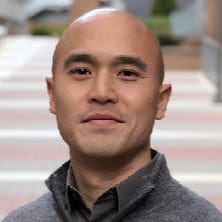
Daryl Lu serves as Director of Solutions at Verusen. Daryl has delivered supply chain transformation strategies for Fortune 500 enterprises as a consultant and solutions provider. He couples his technology and early-stage company experience to help deliver innovative solutions with high return on investment for clients. Daryl has a customer-focused, data-driven approach to solving real-world challenges when designing and delivering solutions. His energy has led him to leading teams throughout a customer engagement from marketing to sales to solutions services and to customer success. Learn more about Verusen: www.Verusen.com
